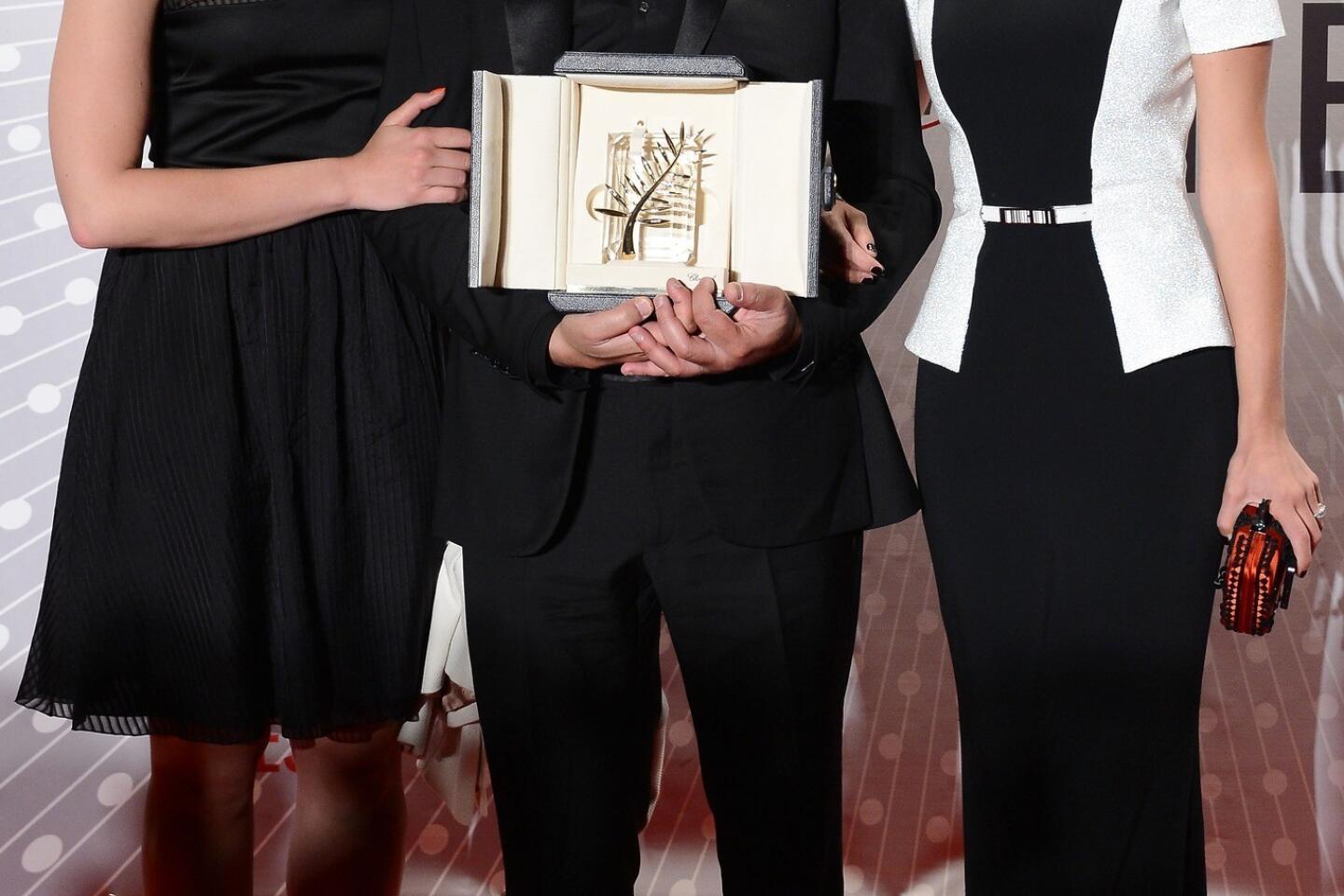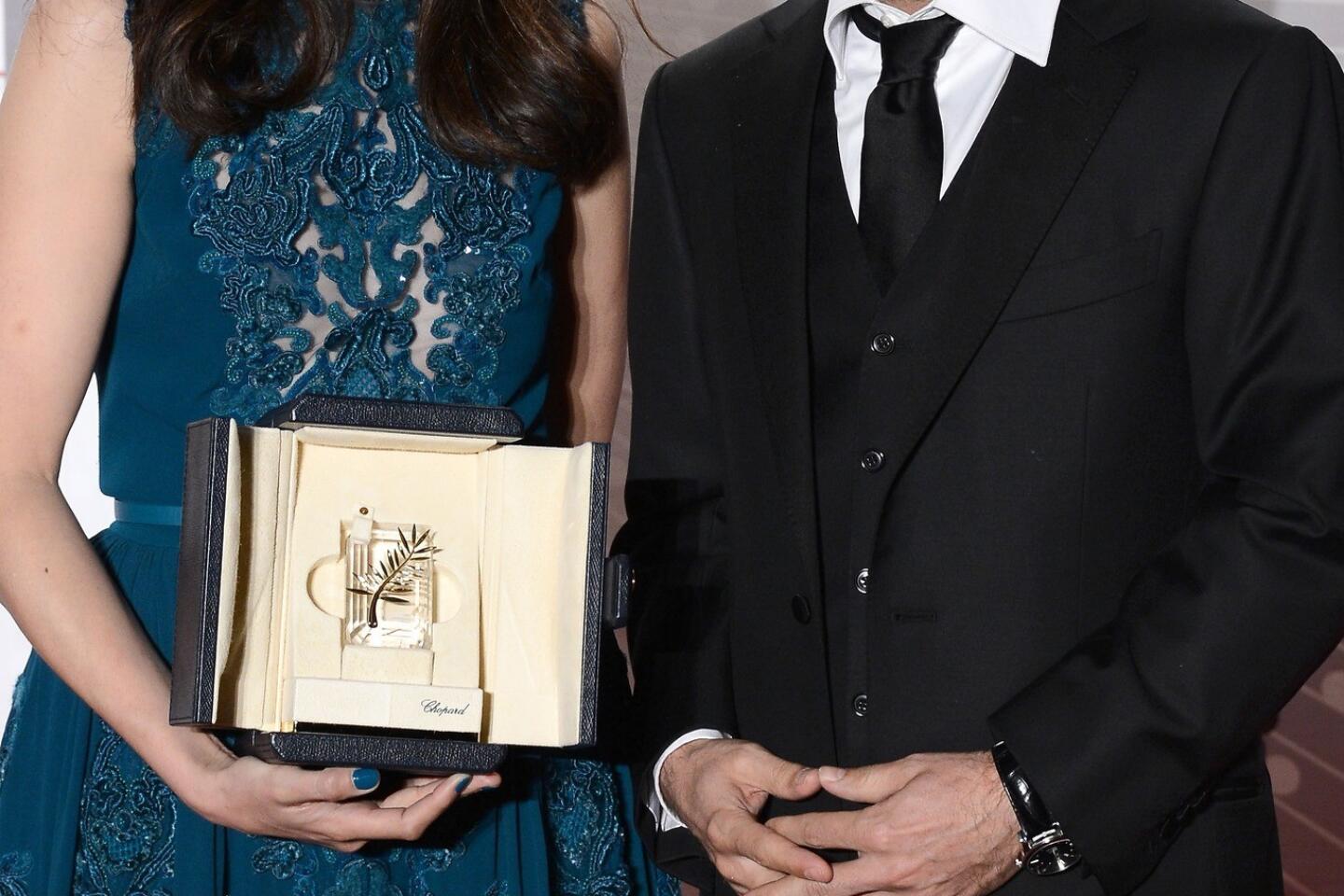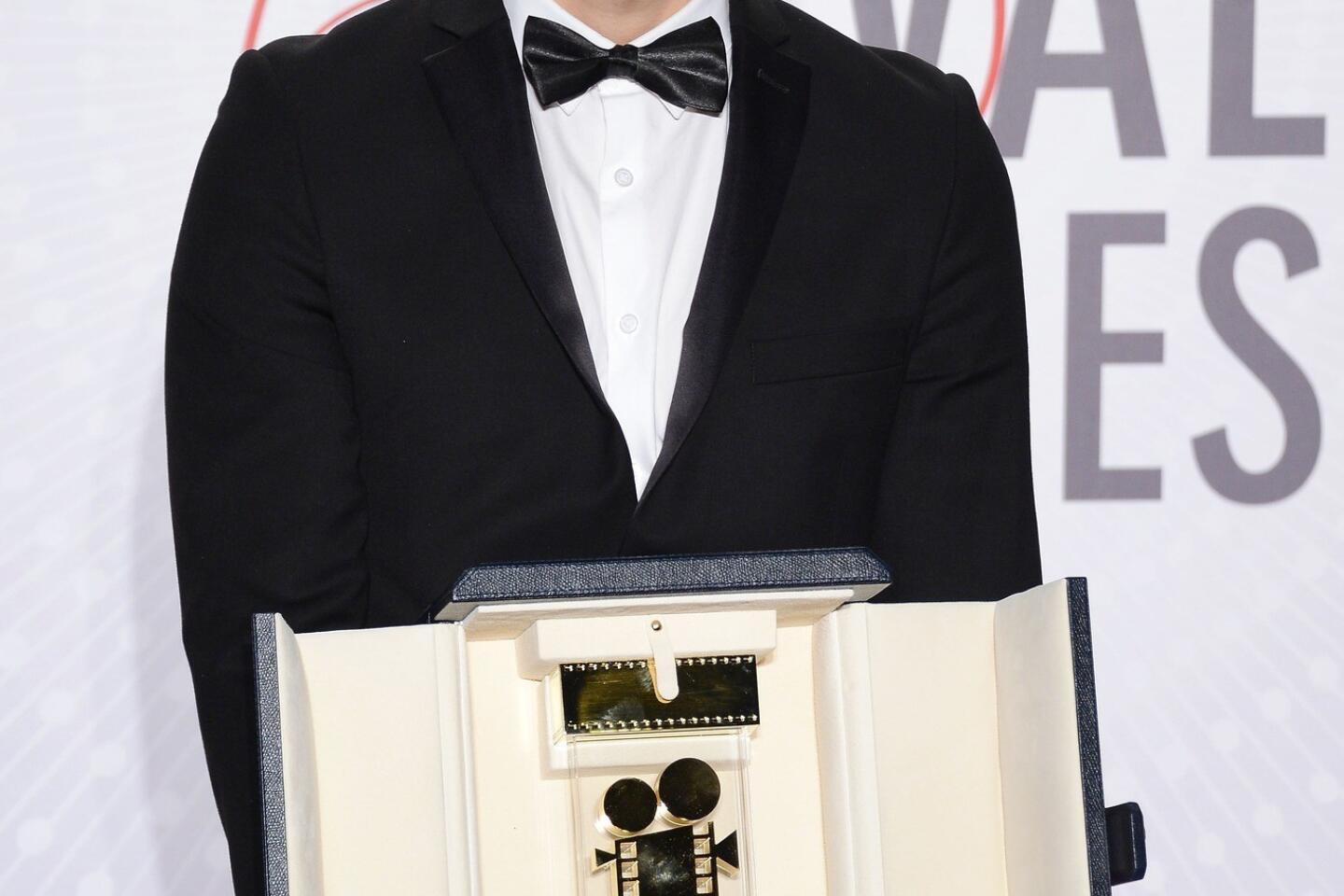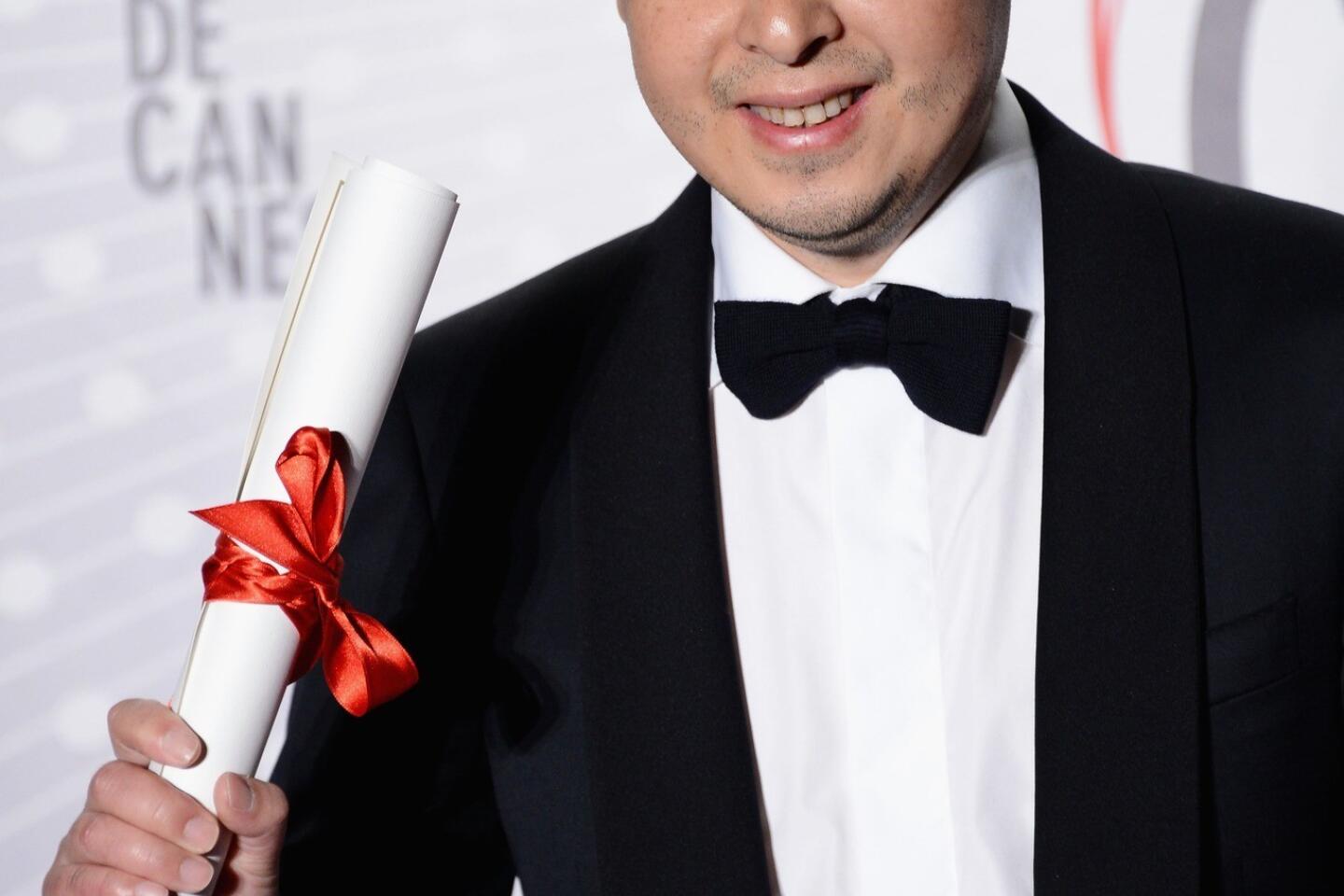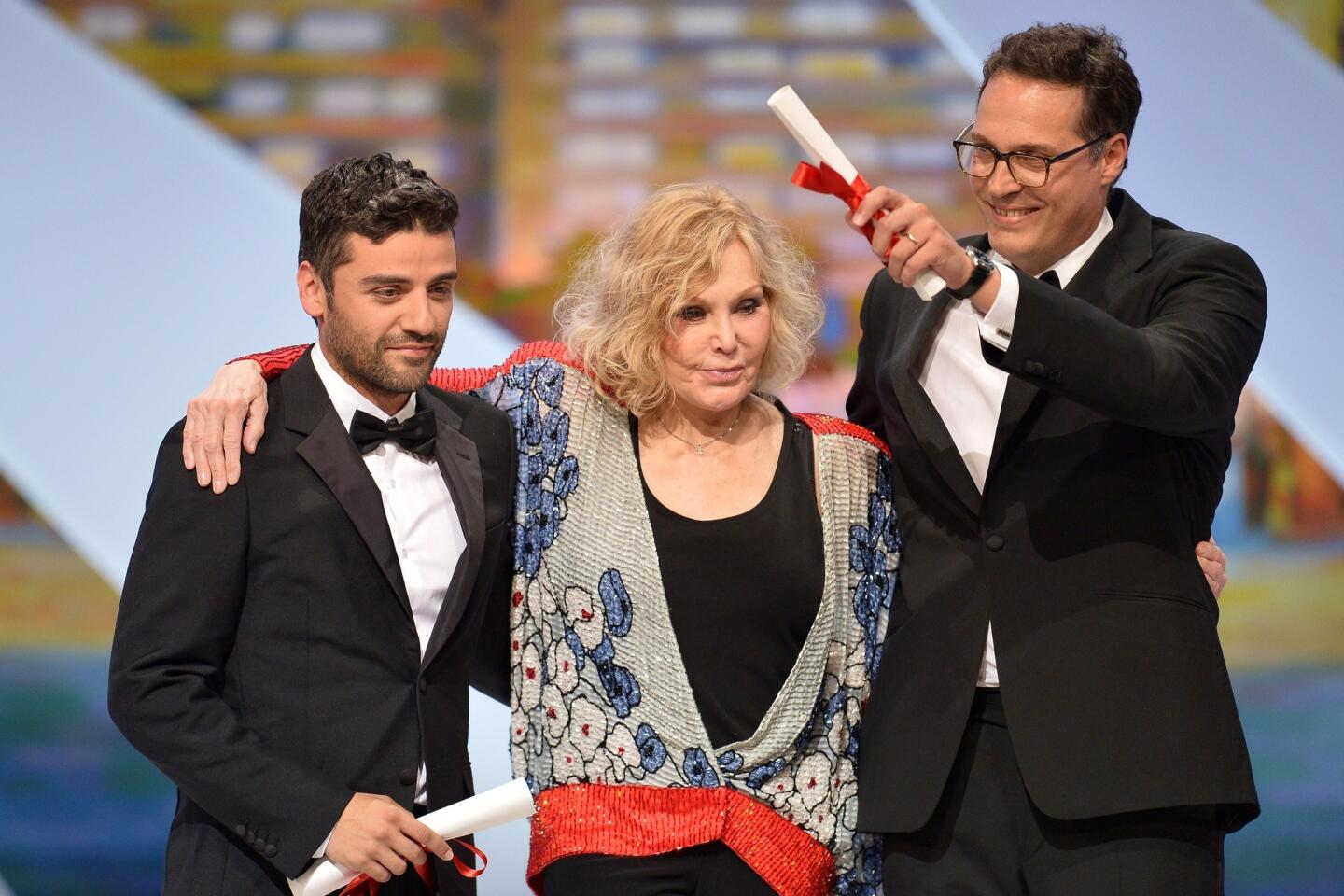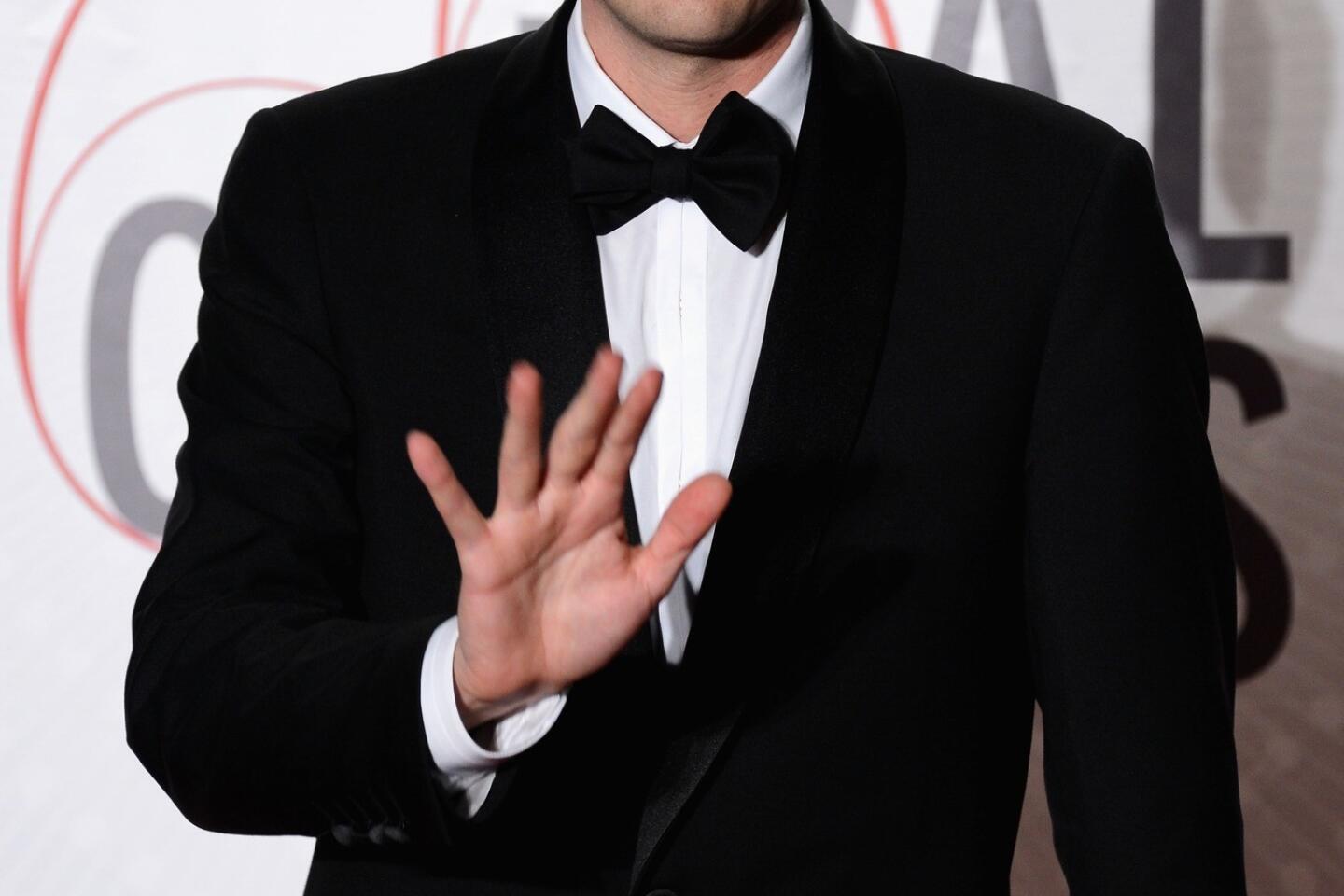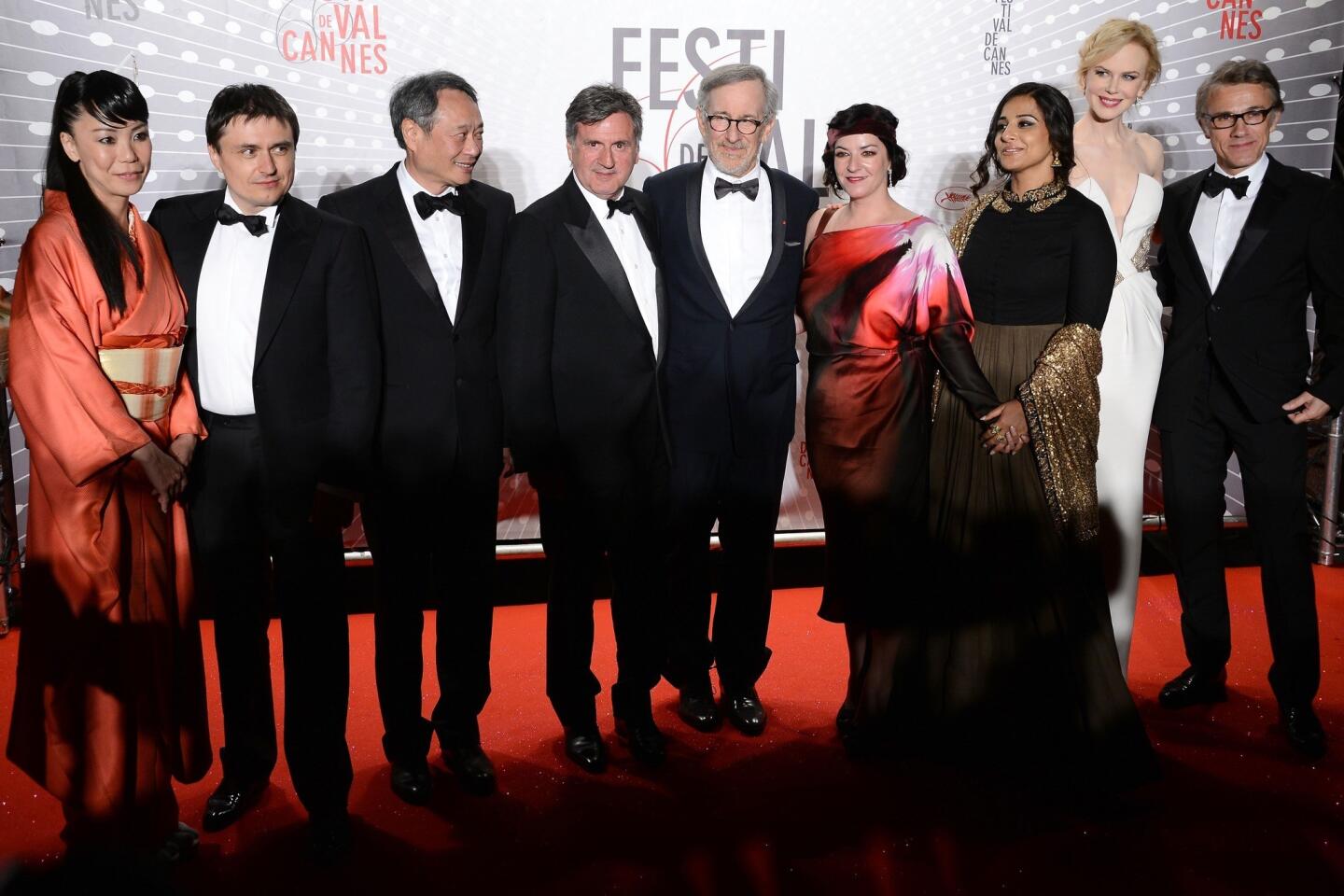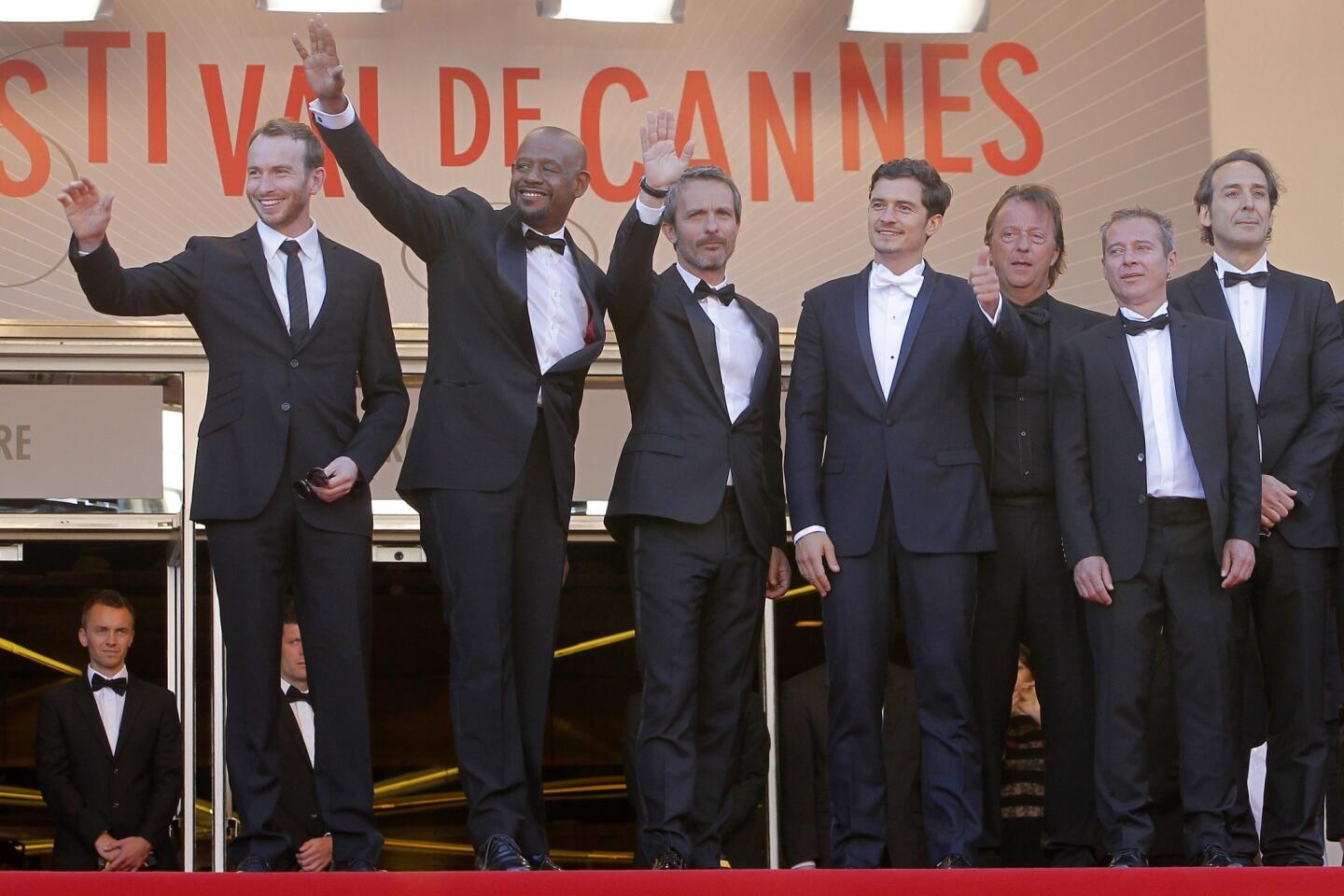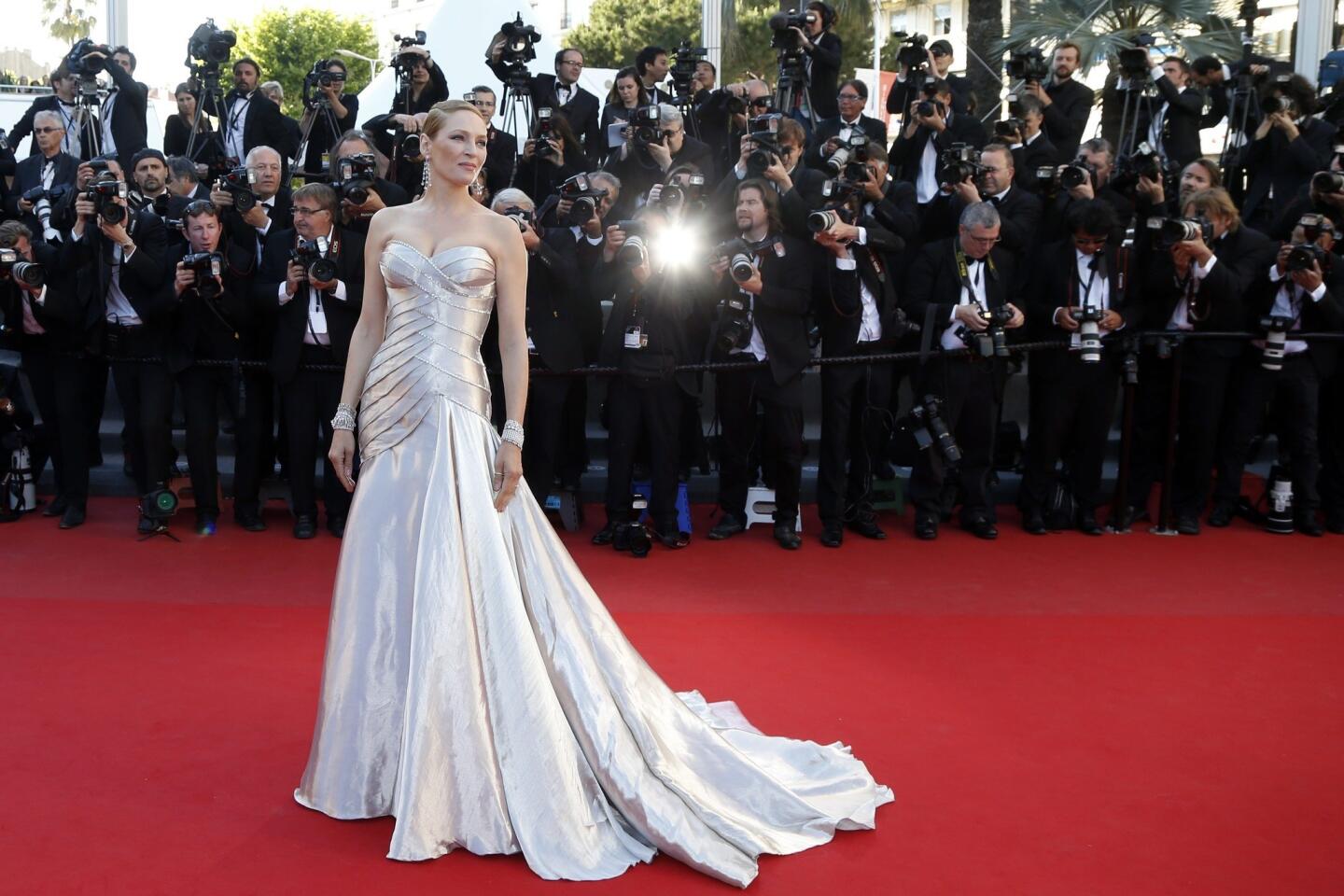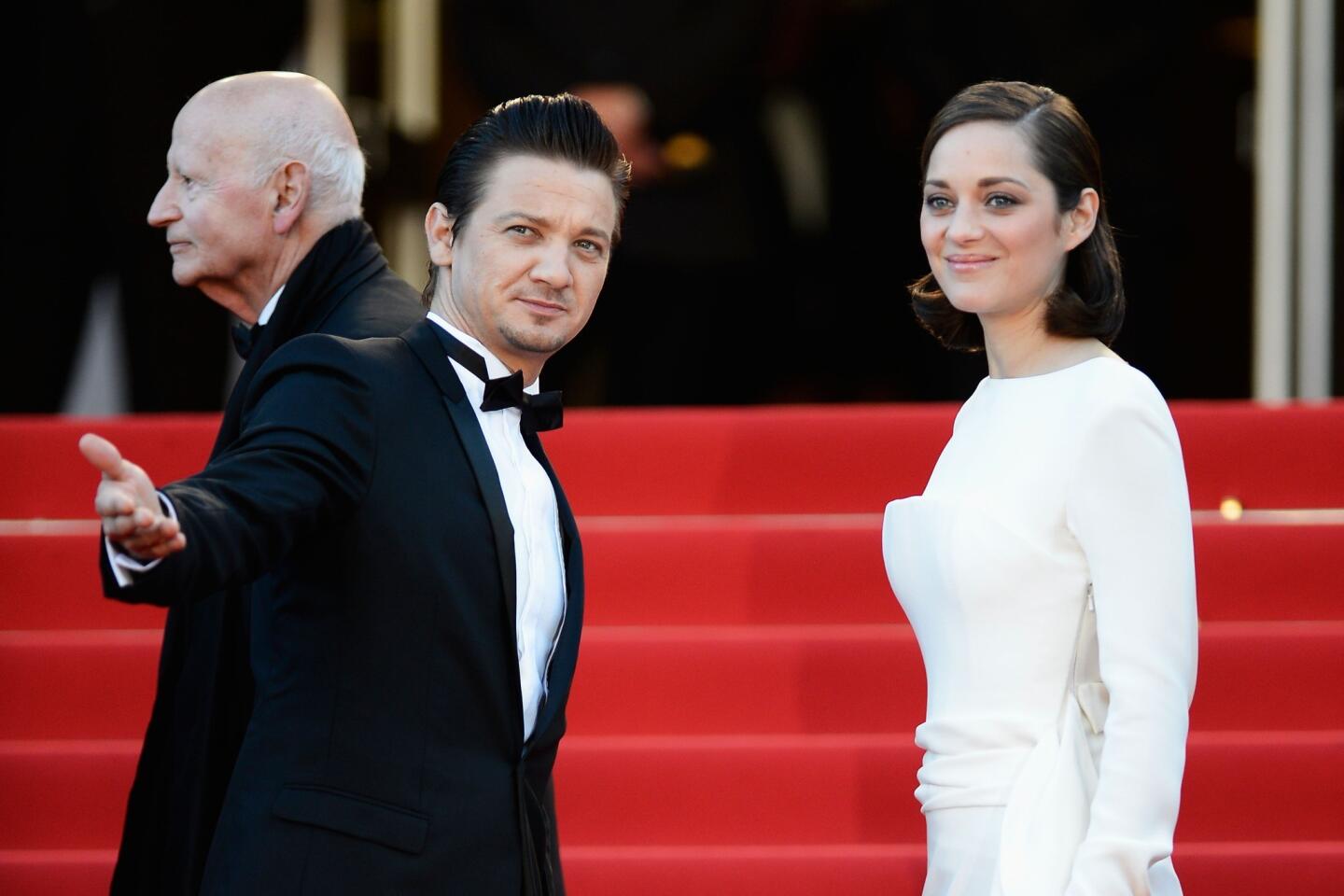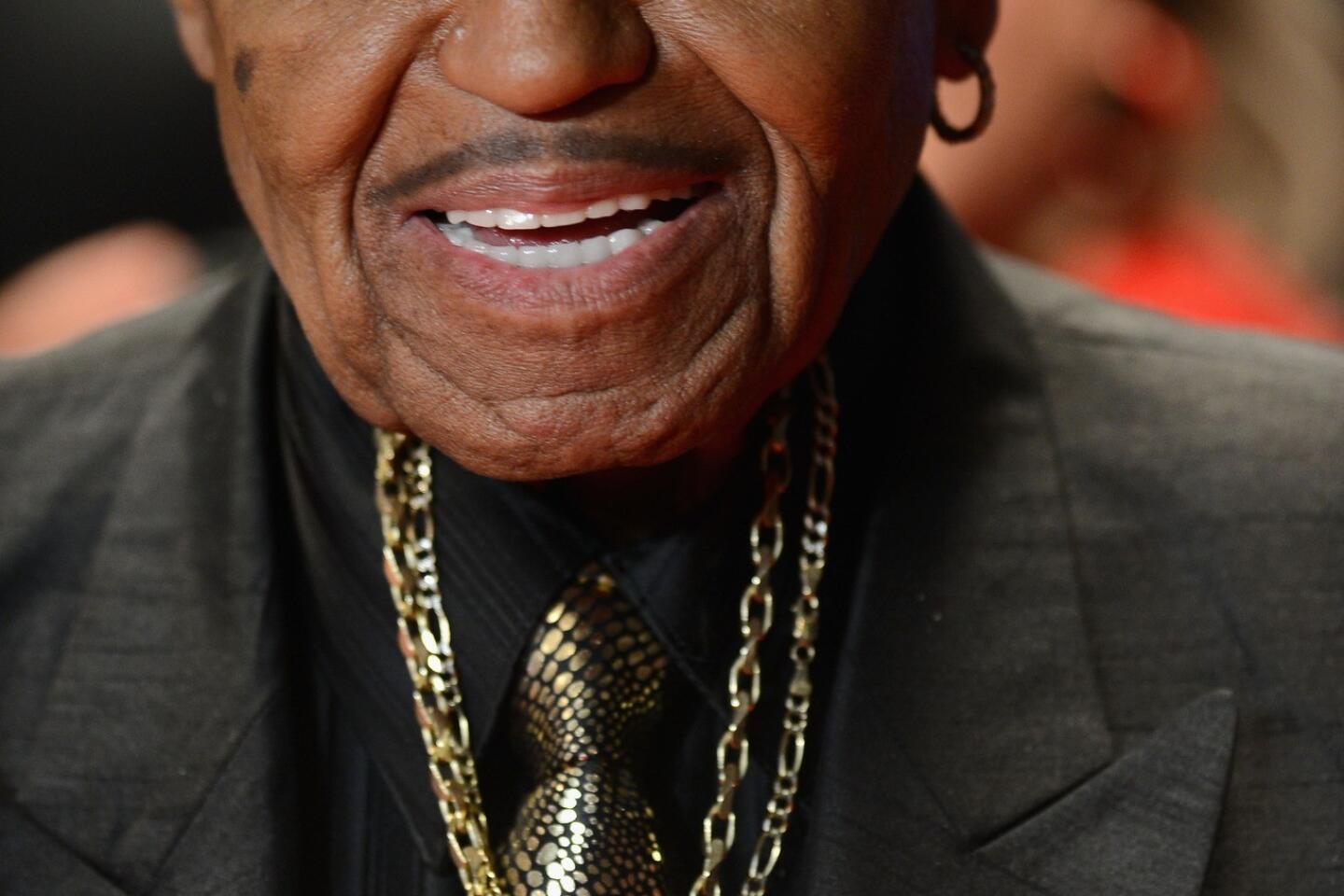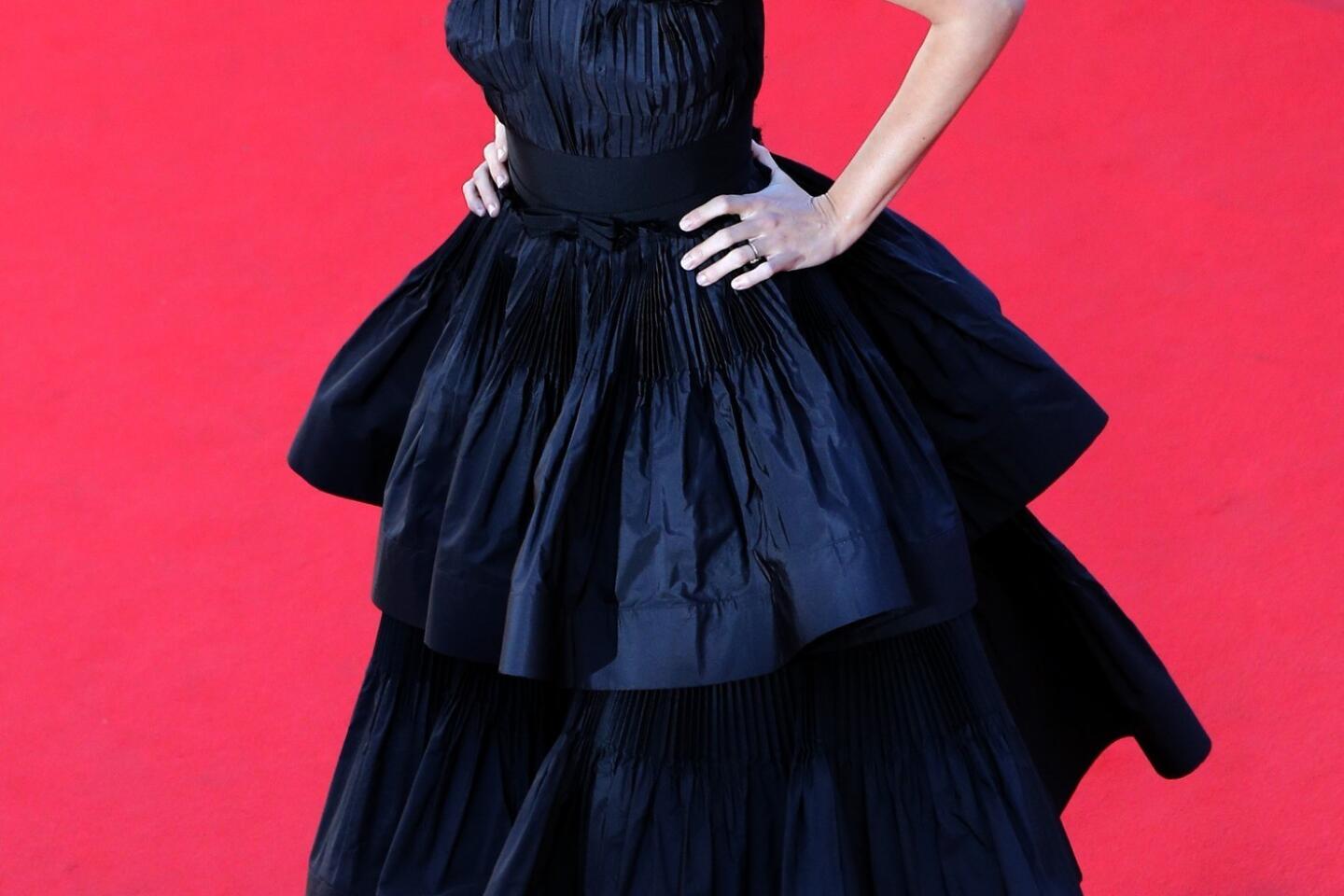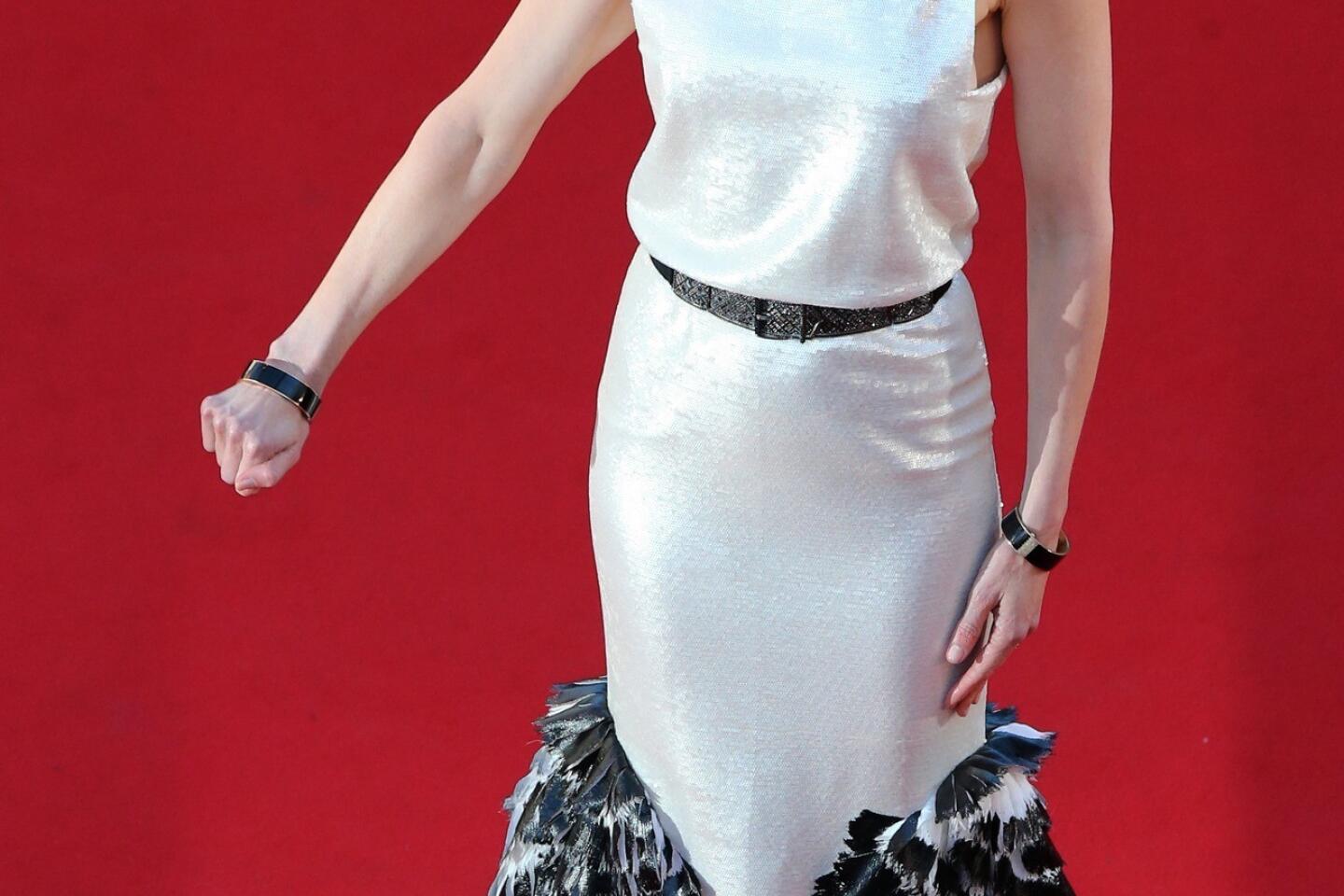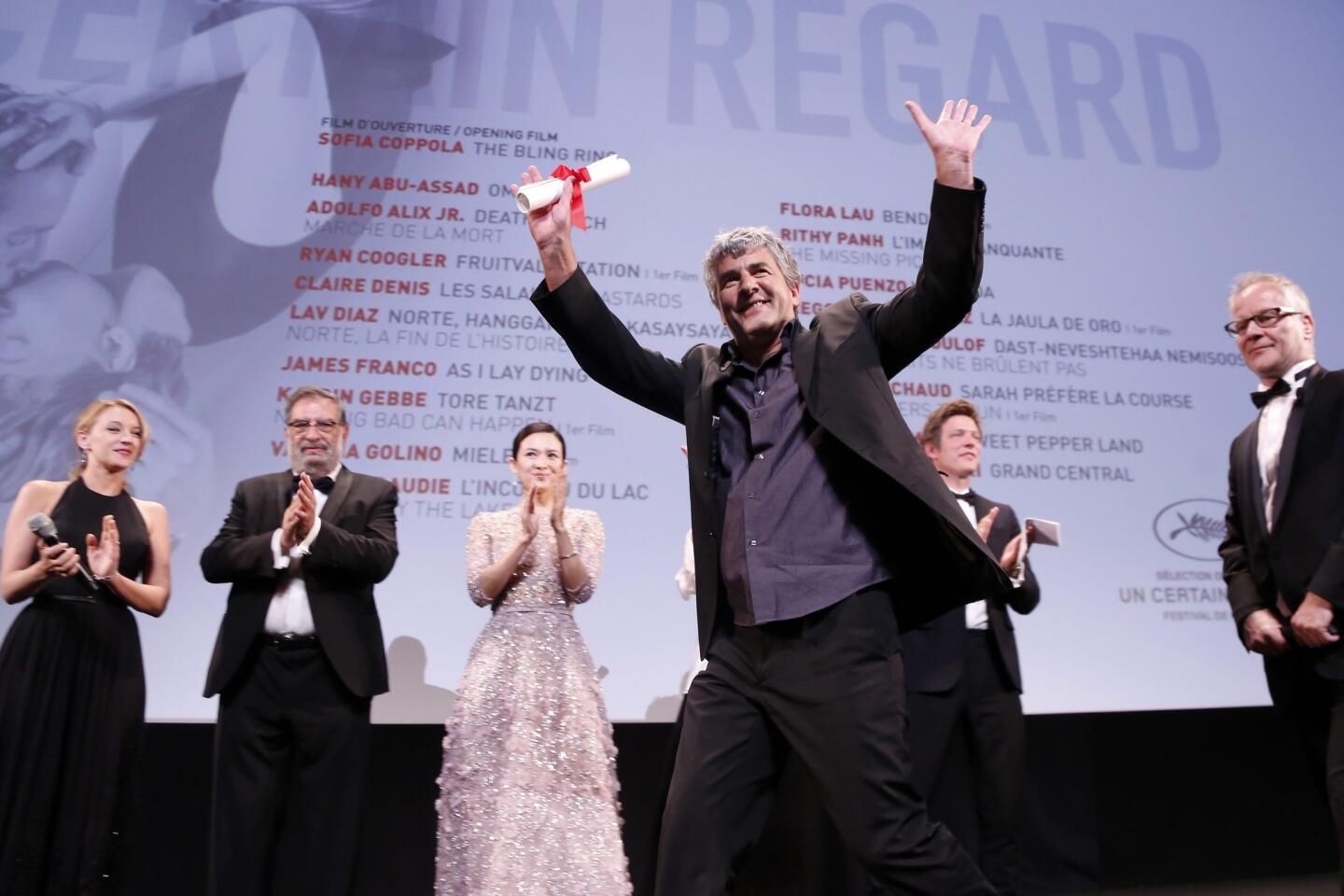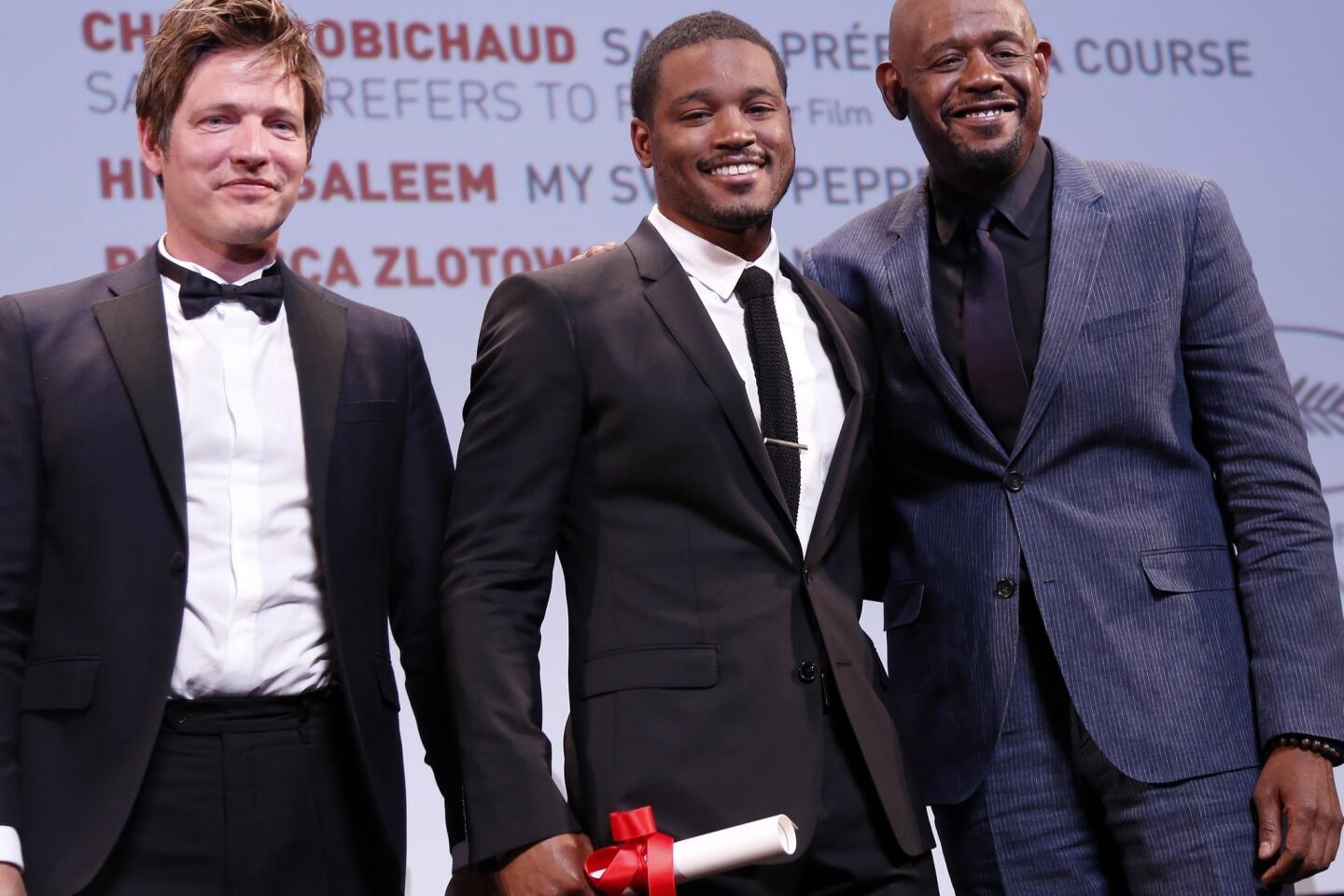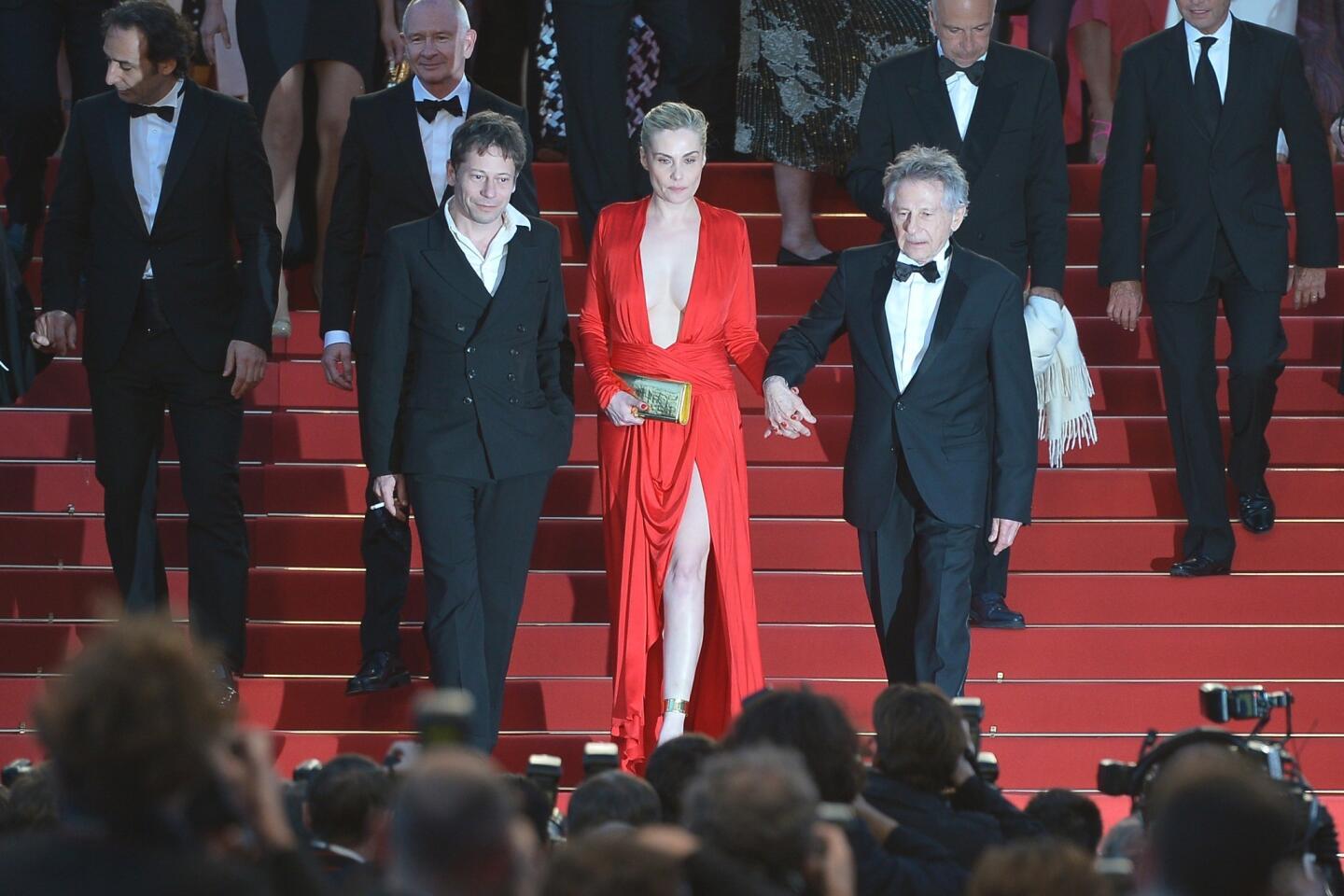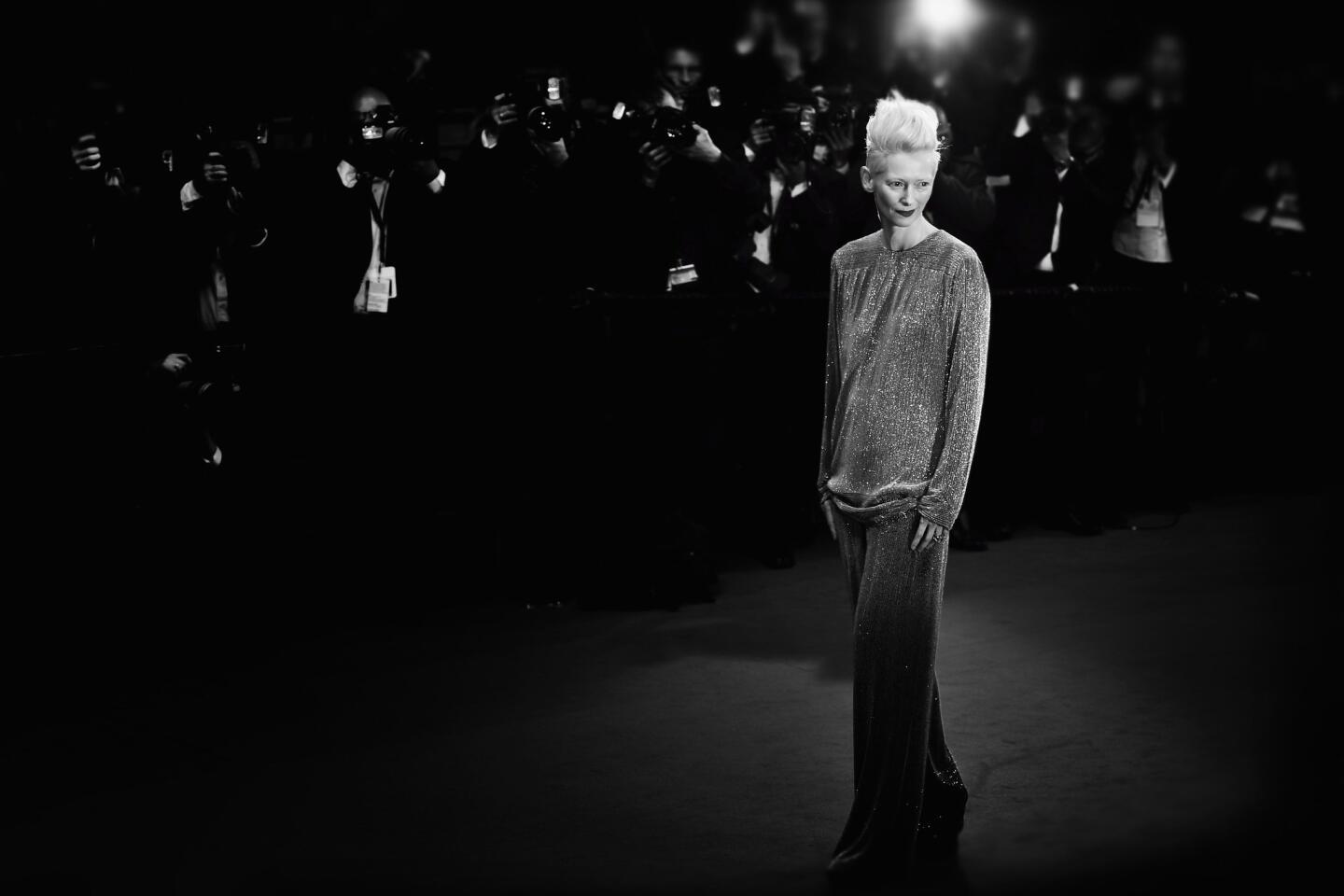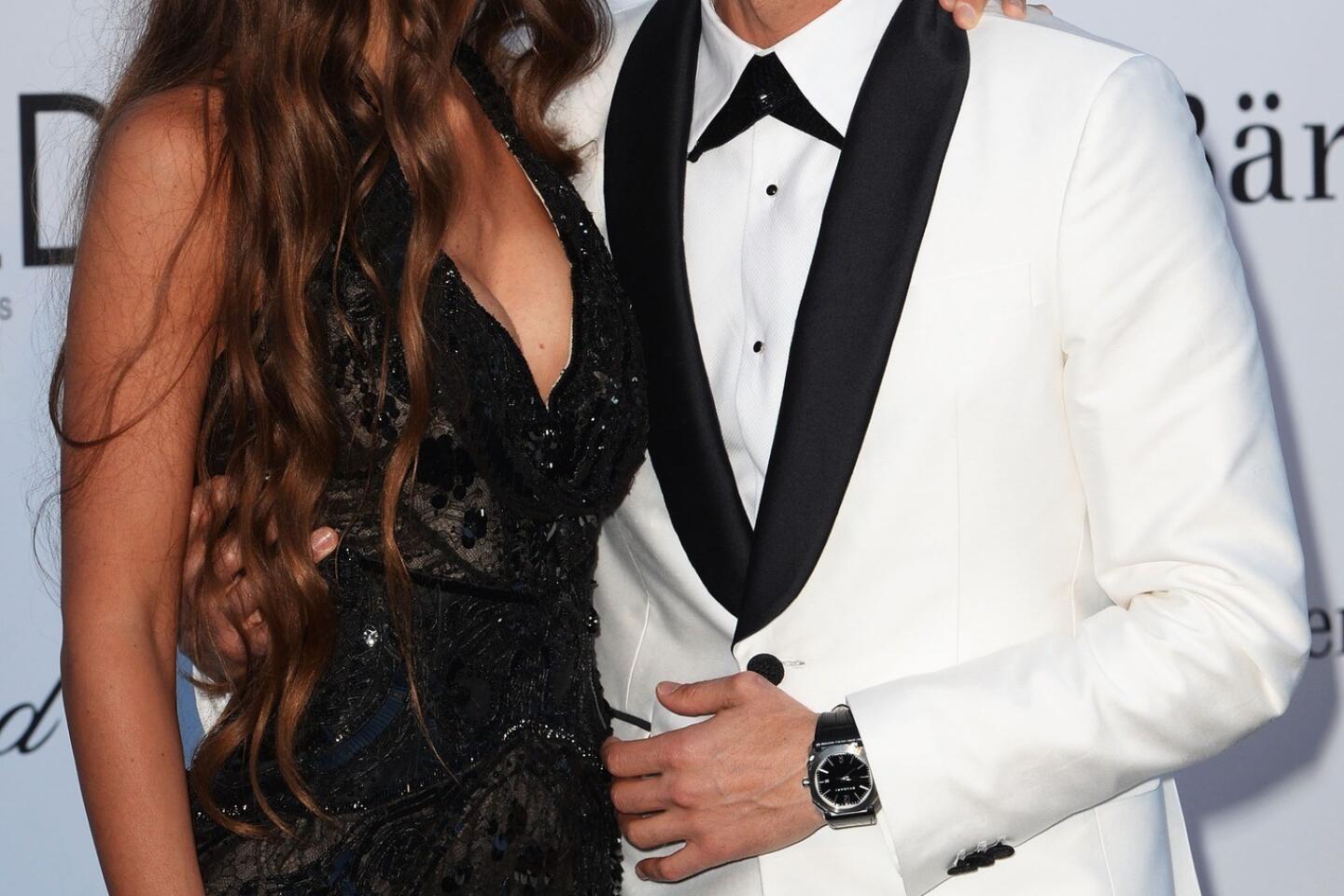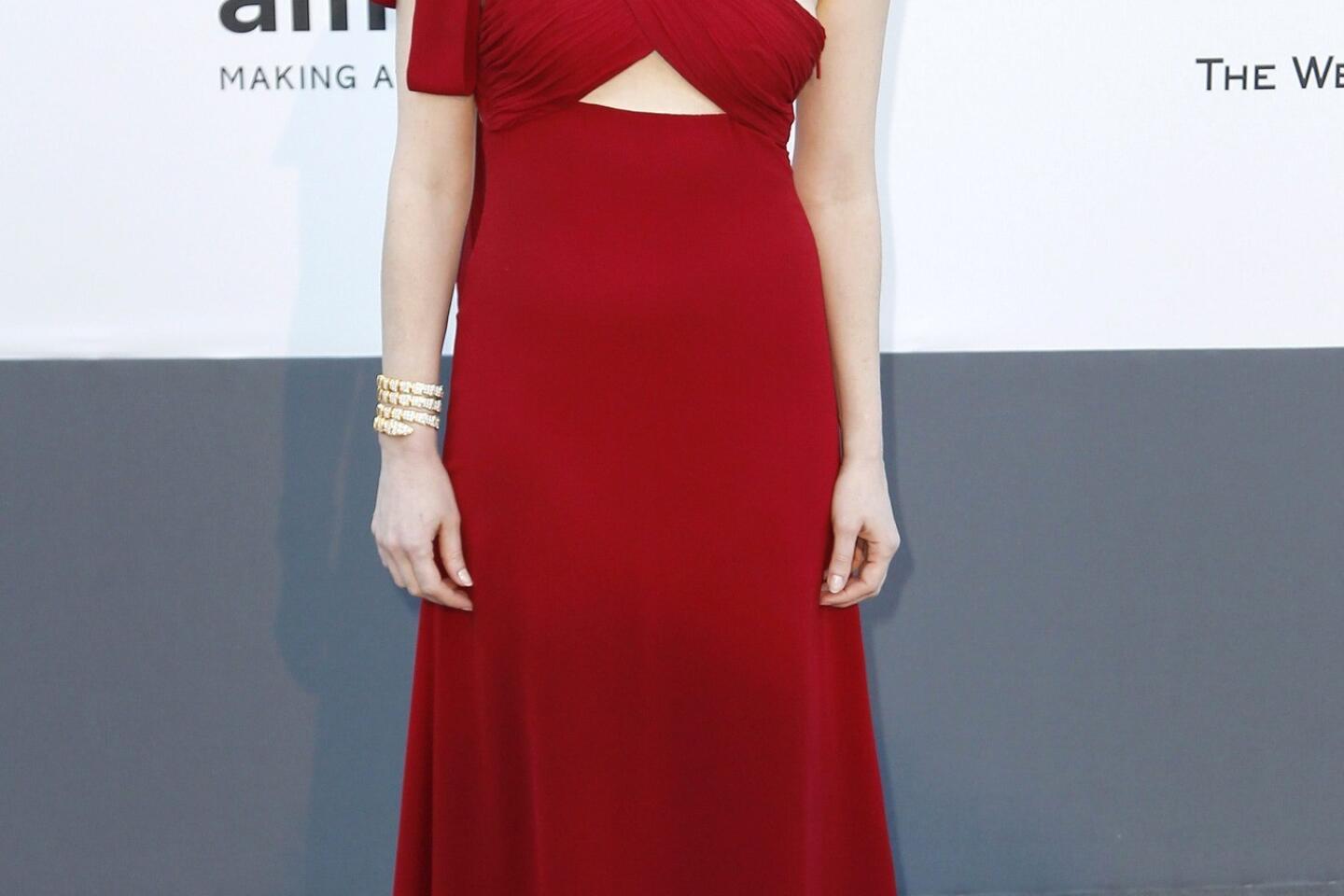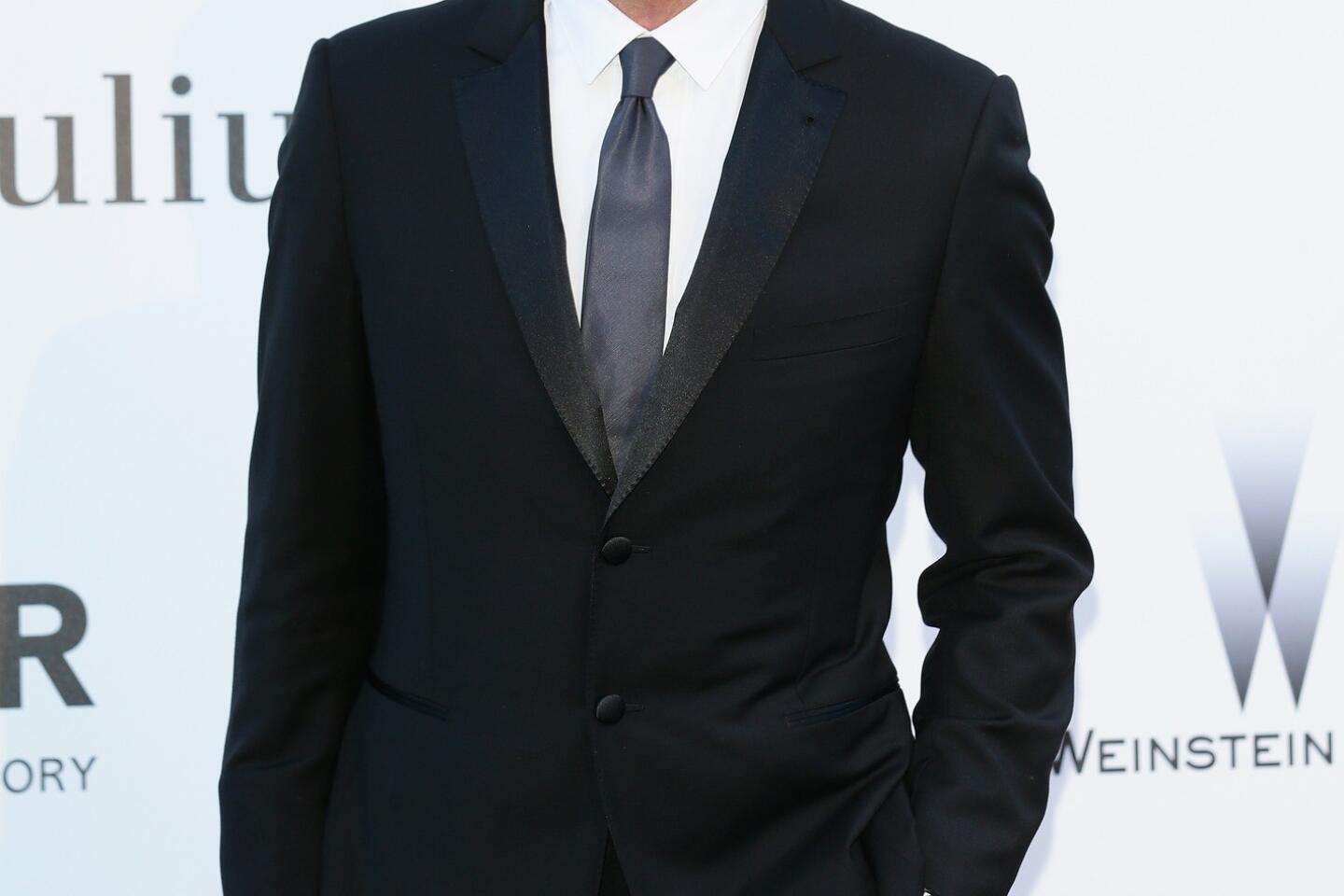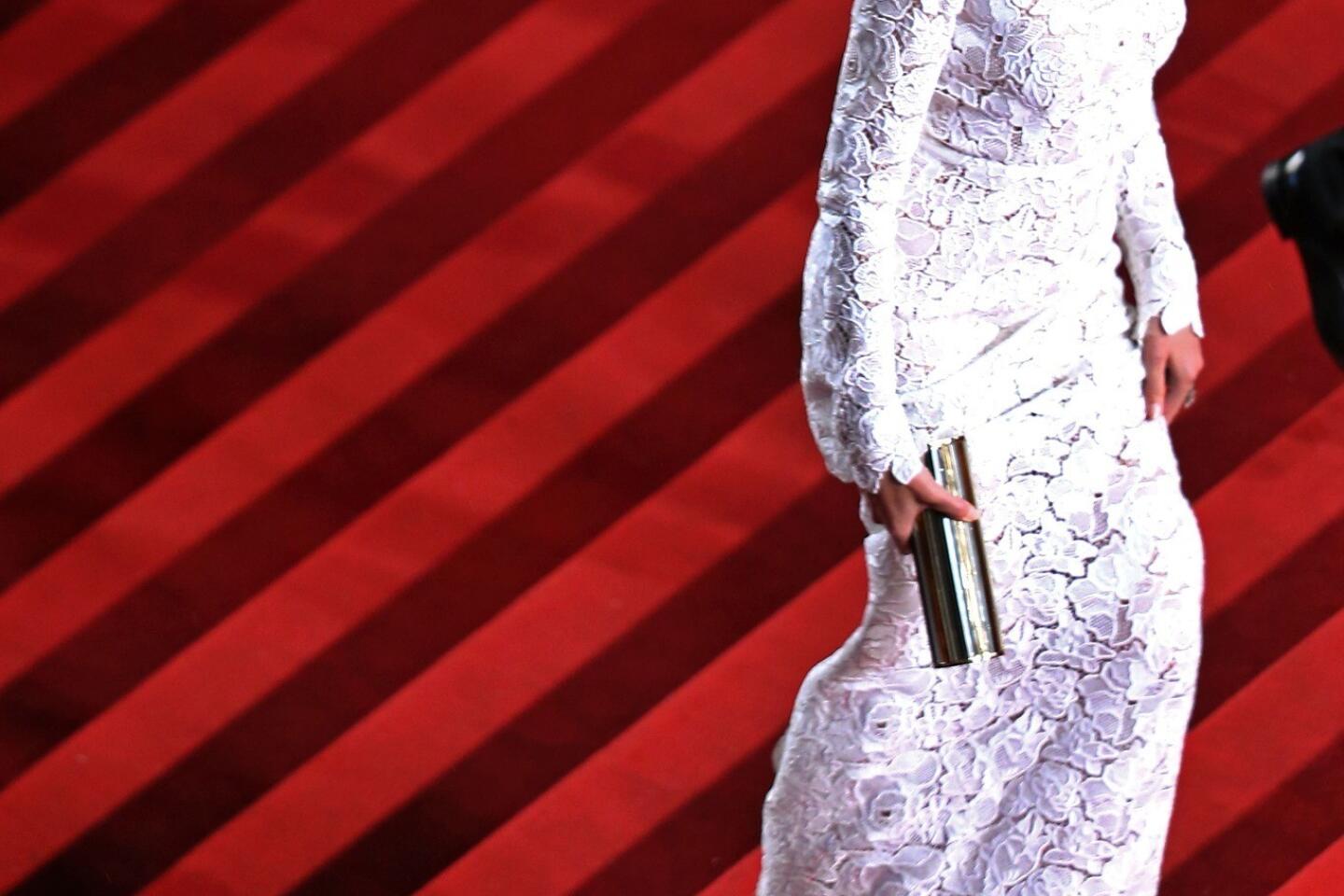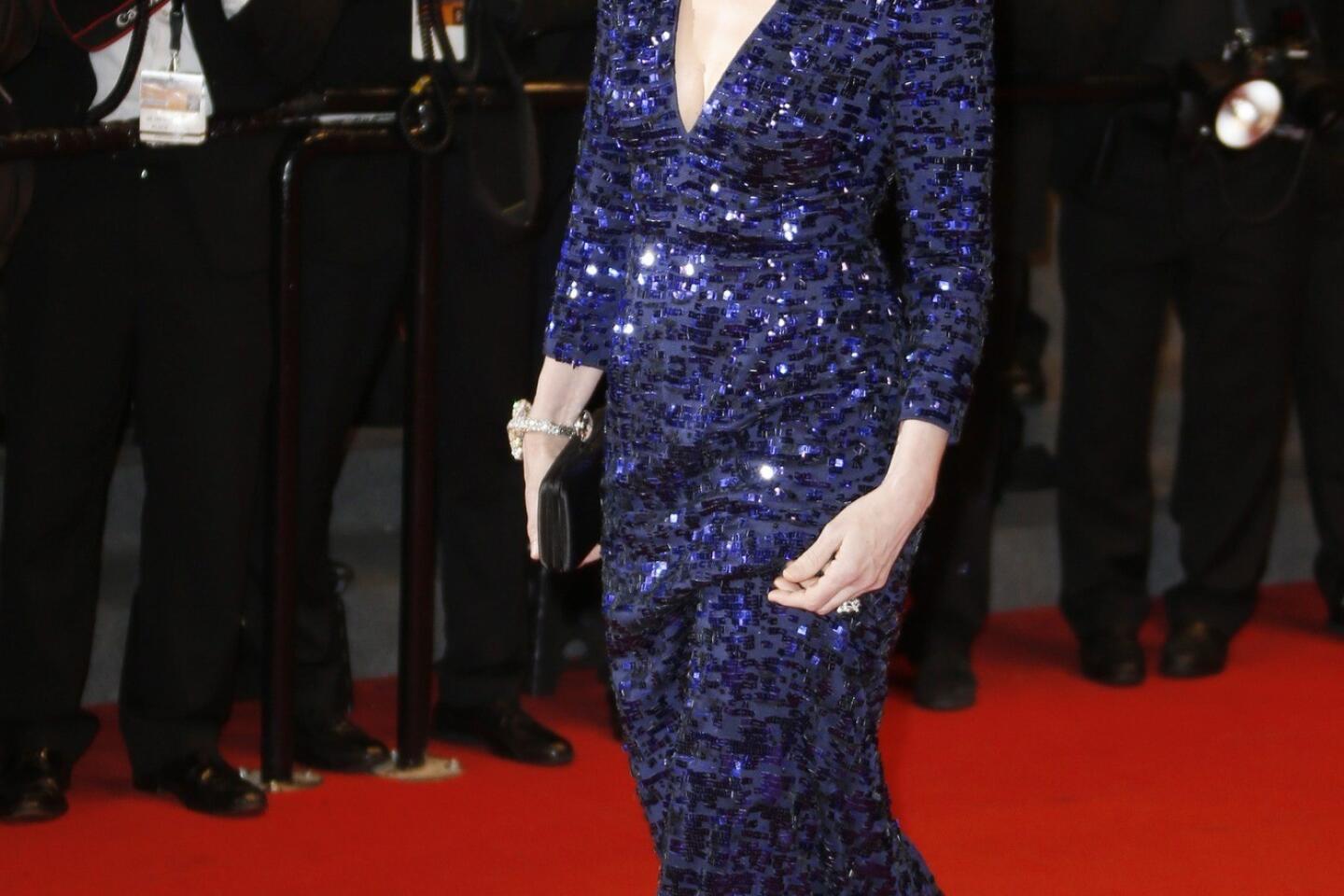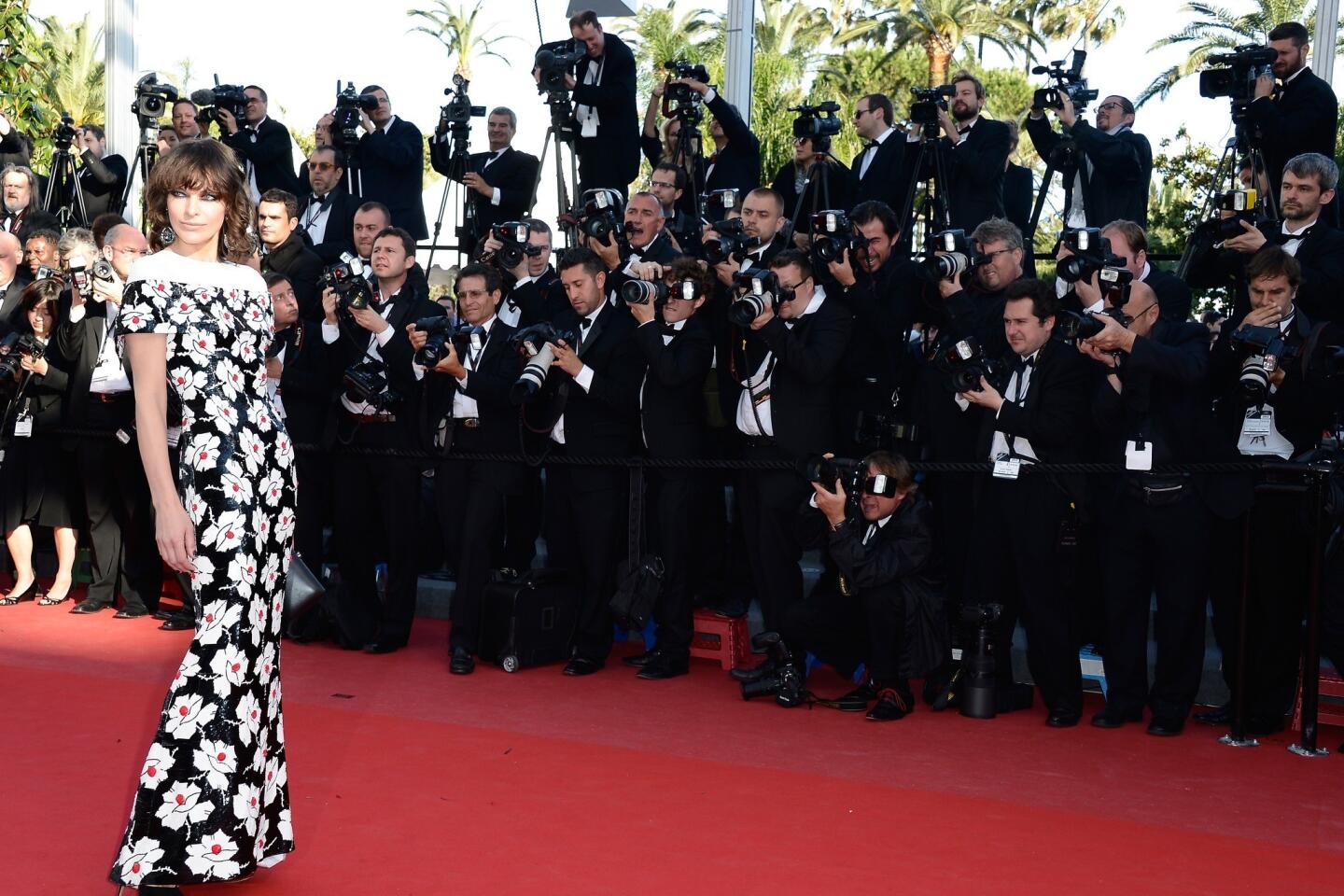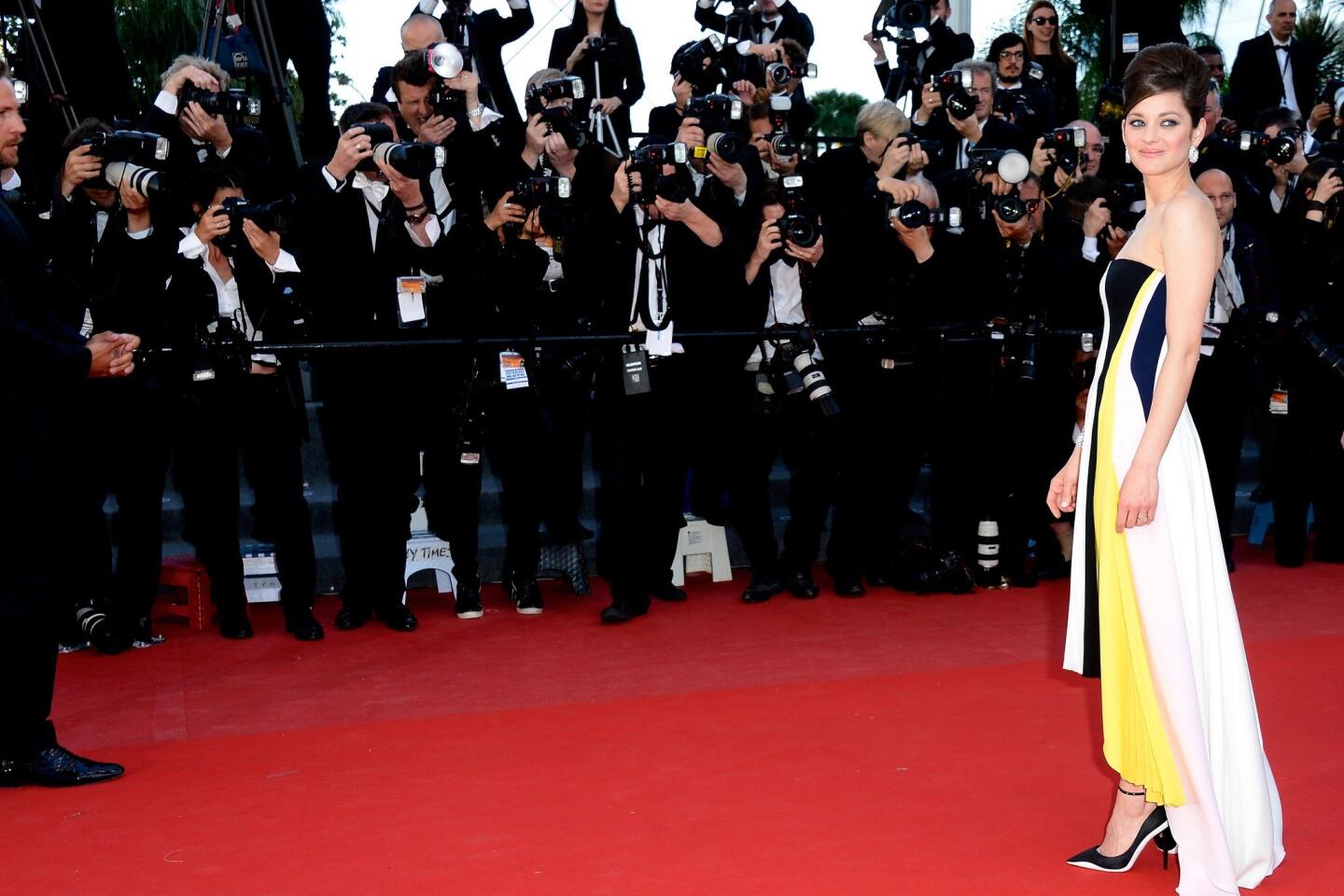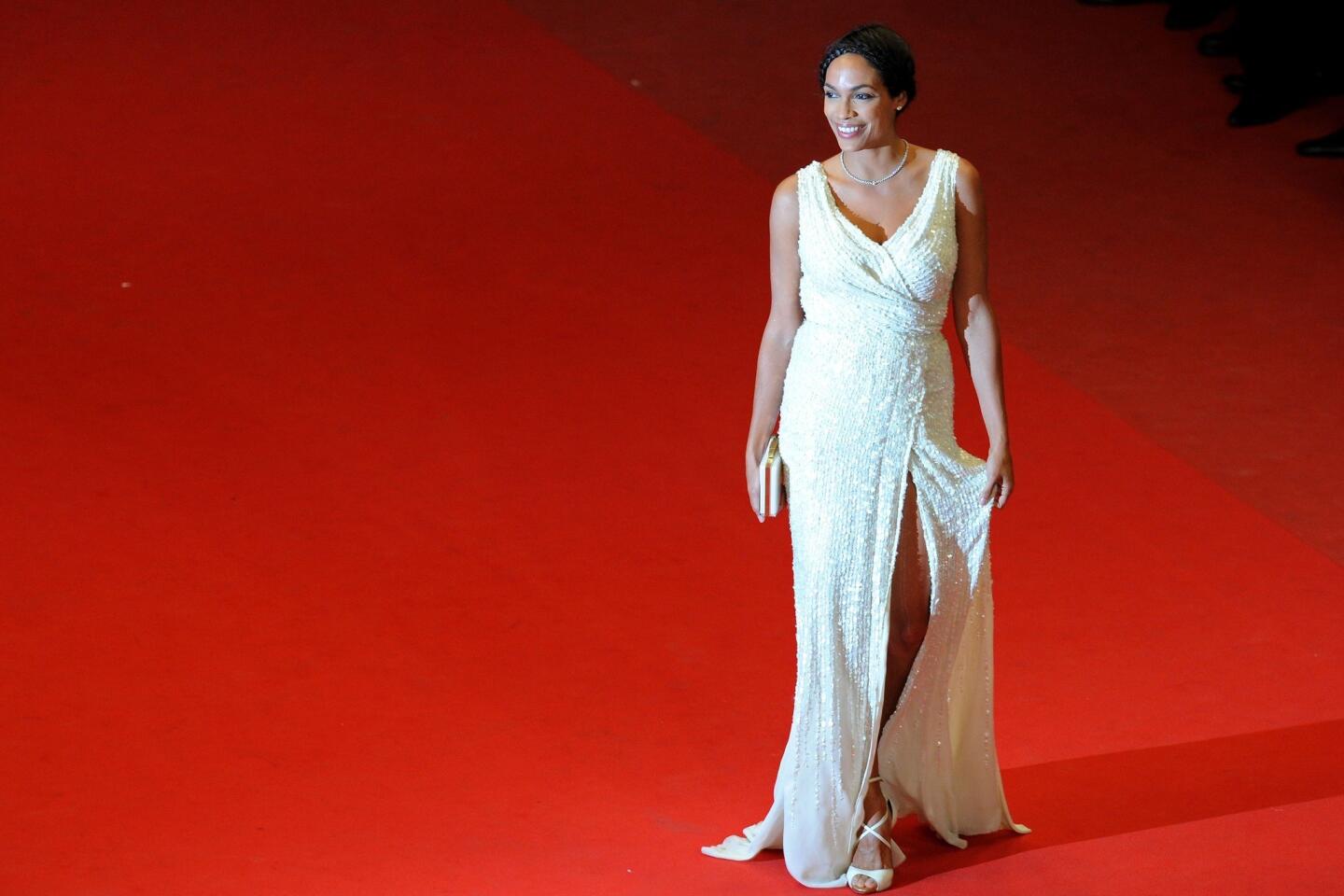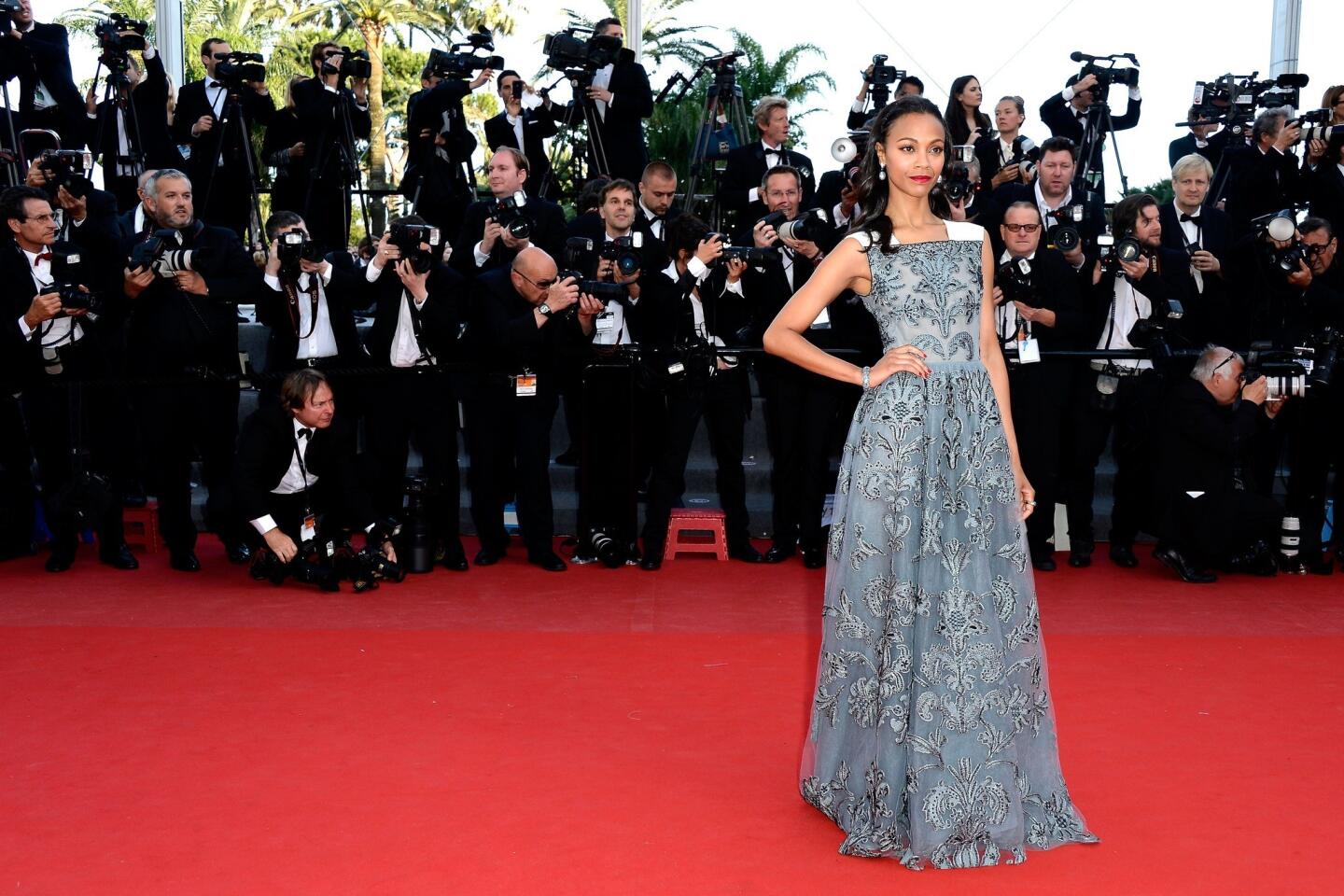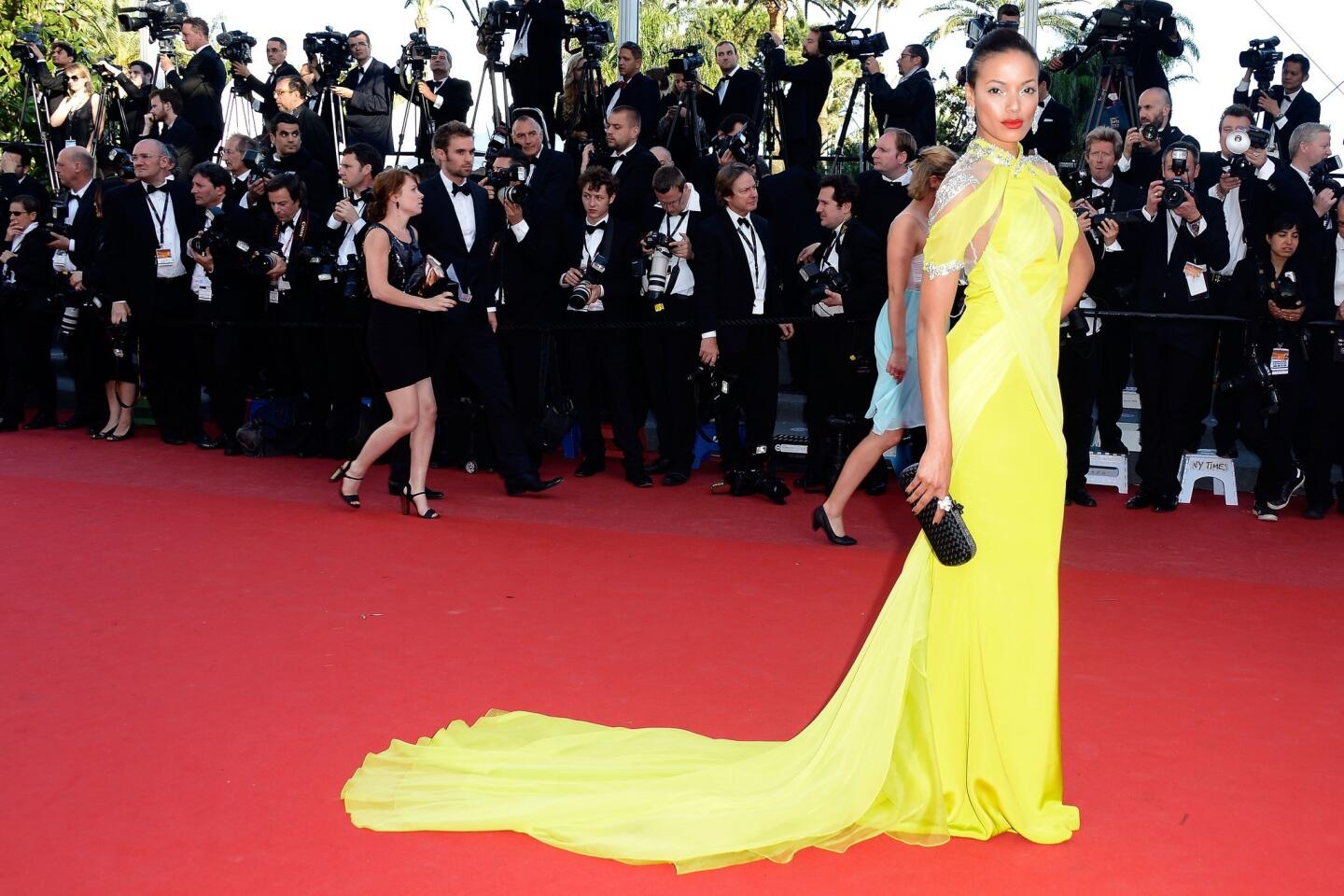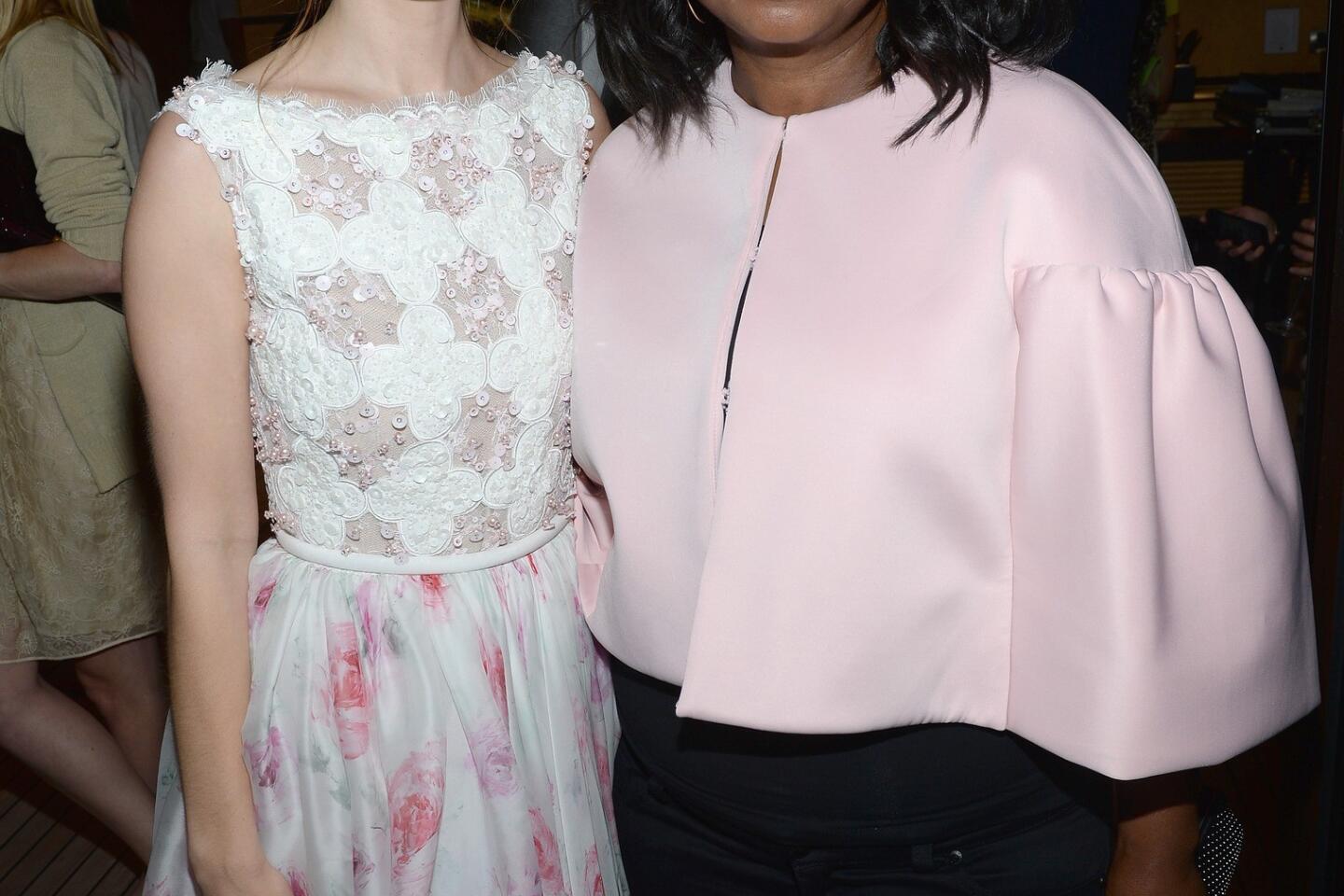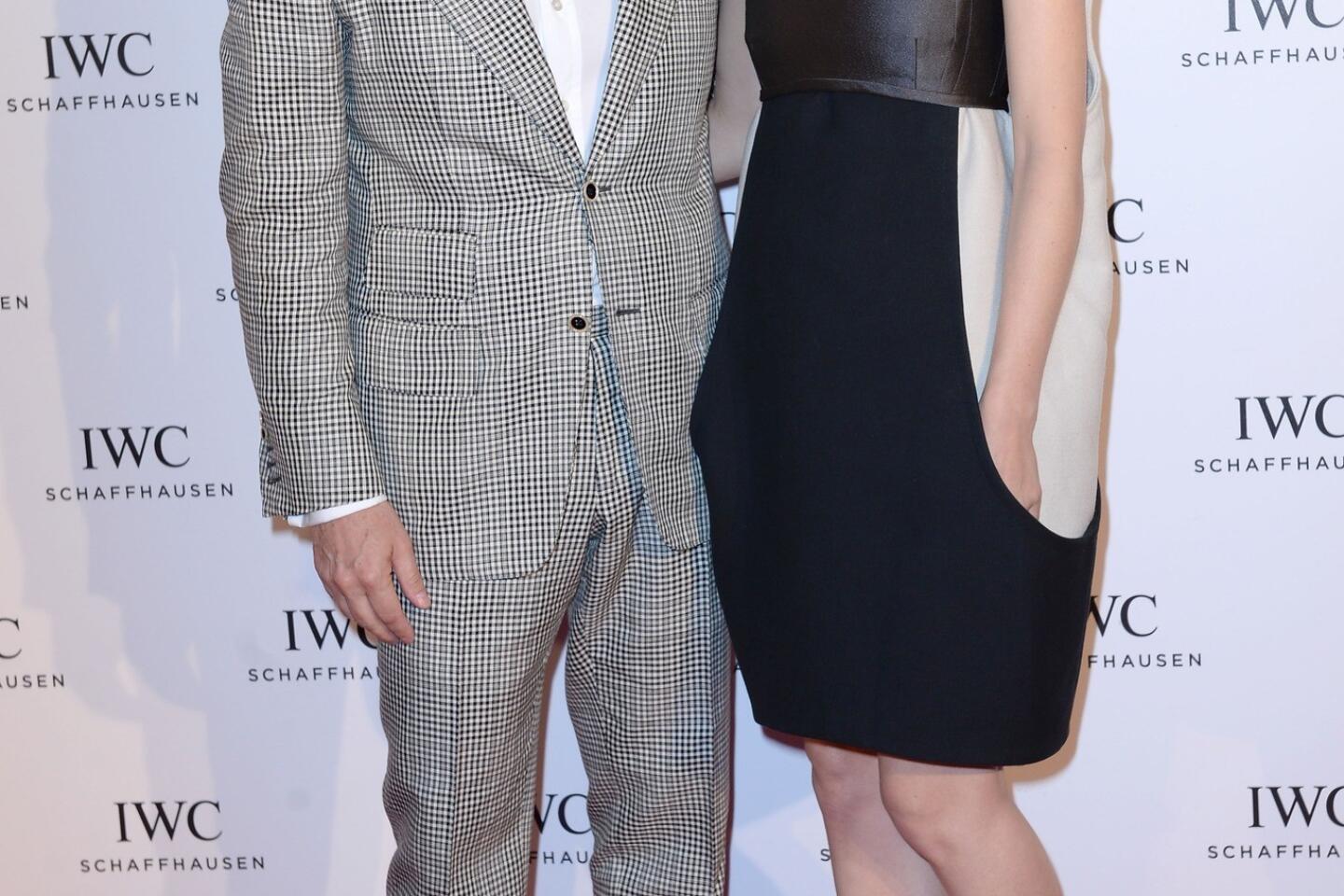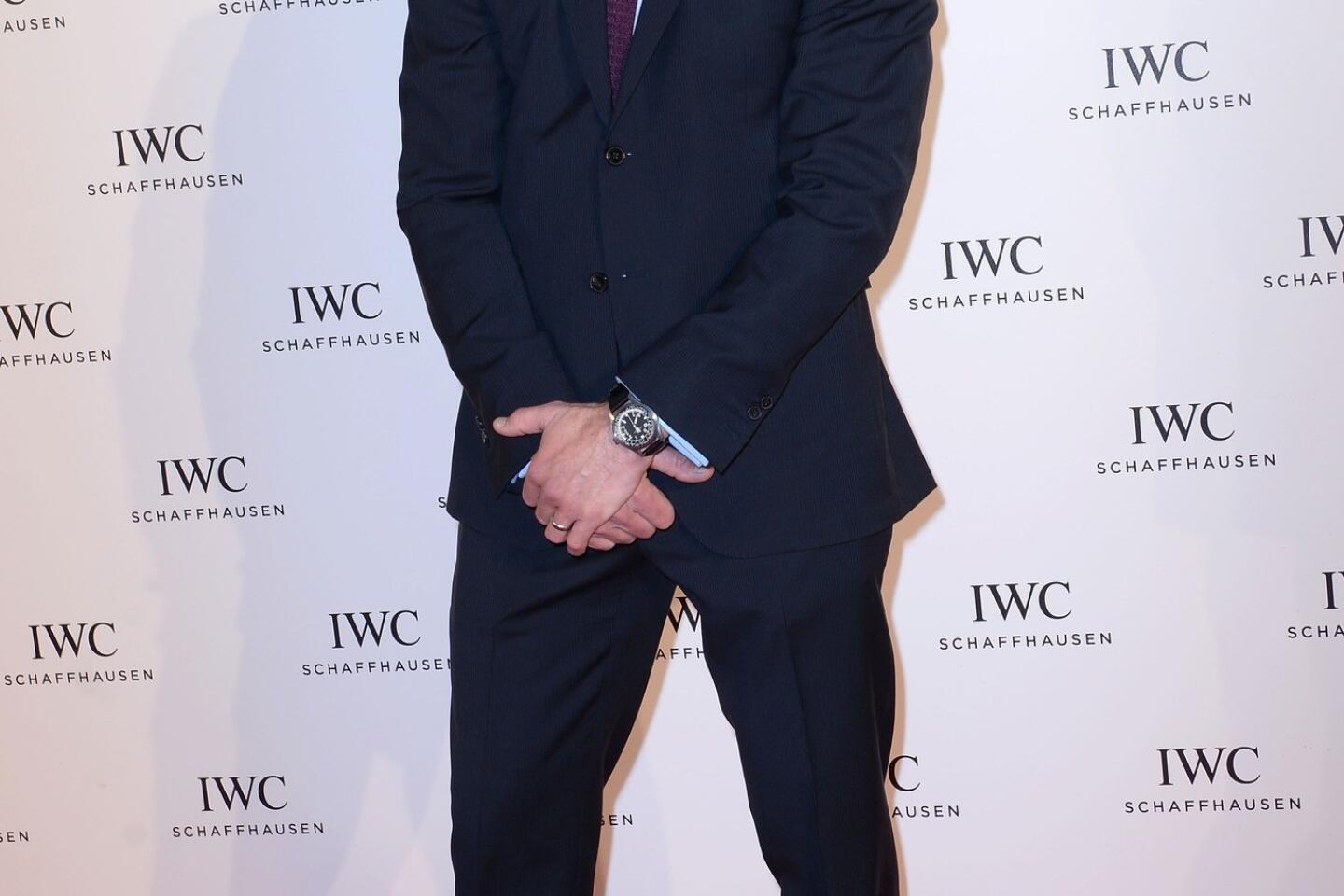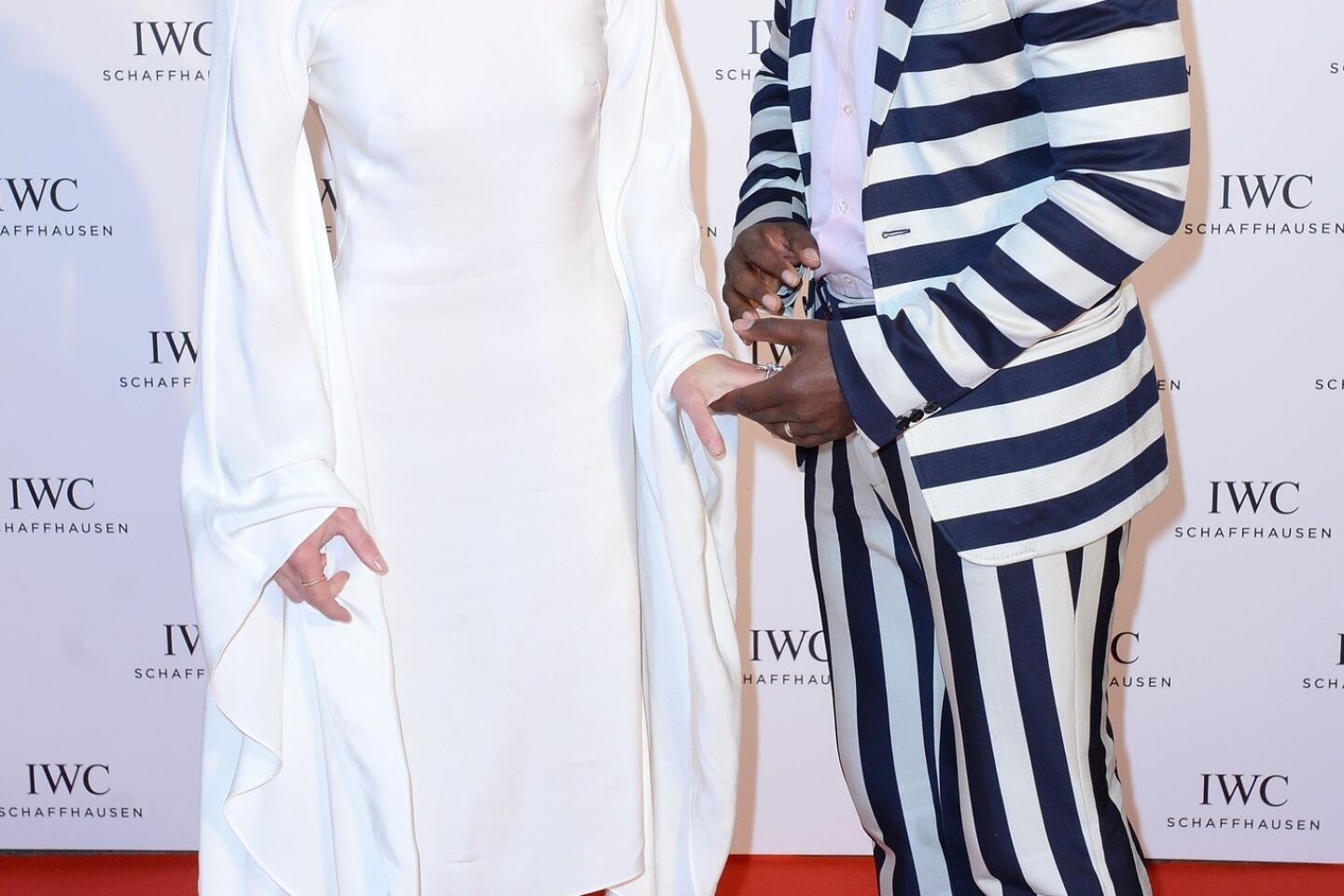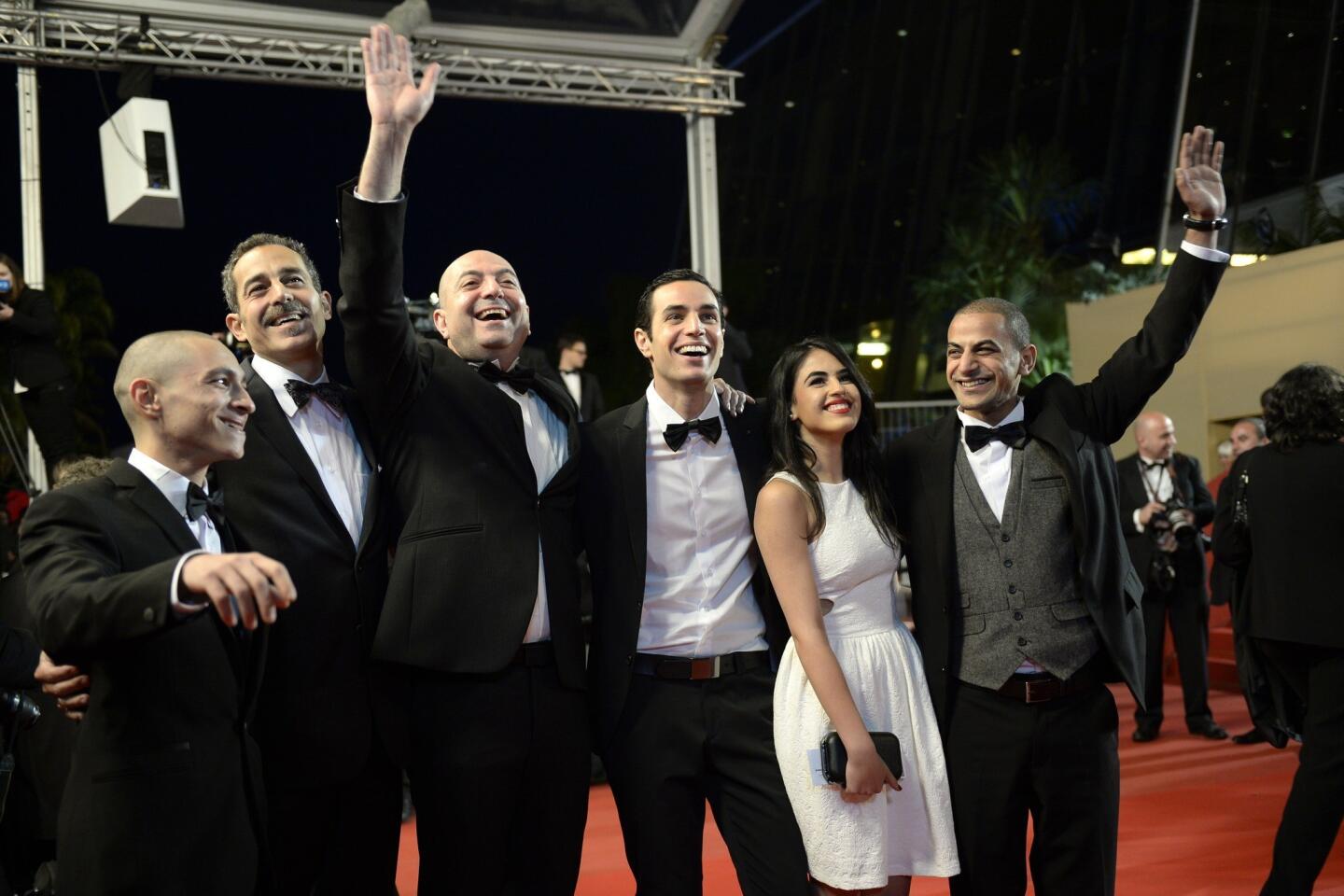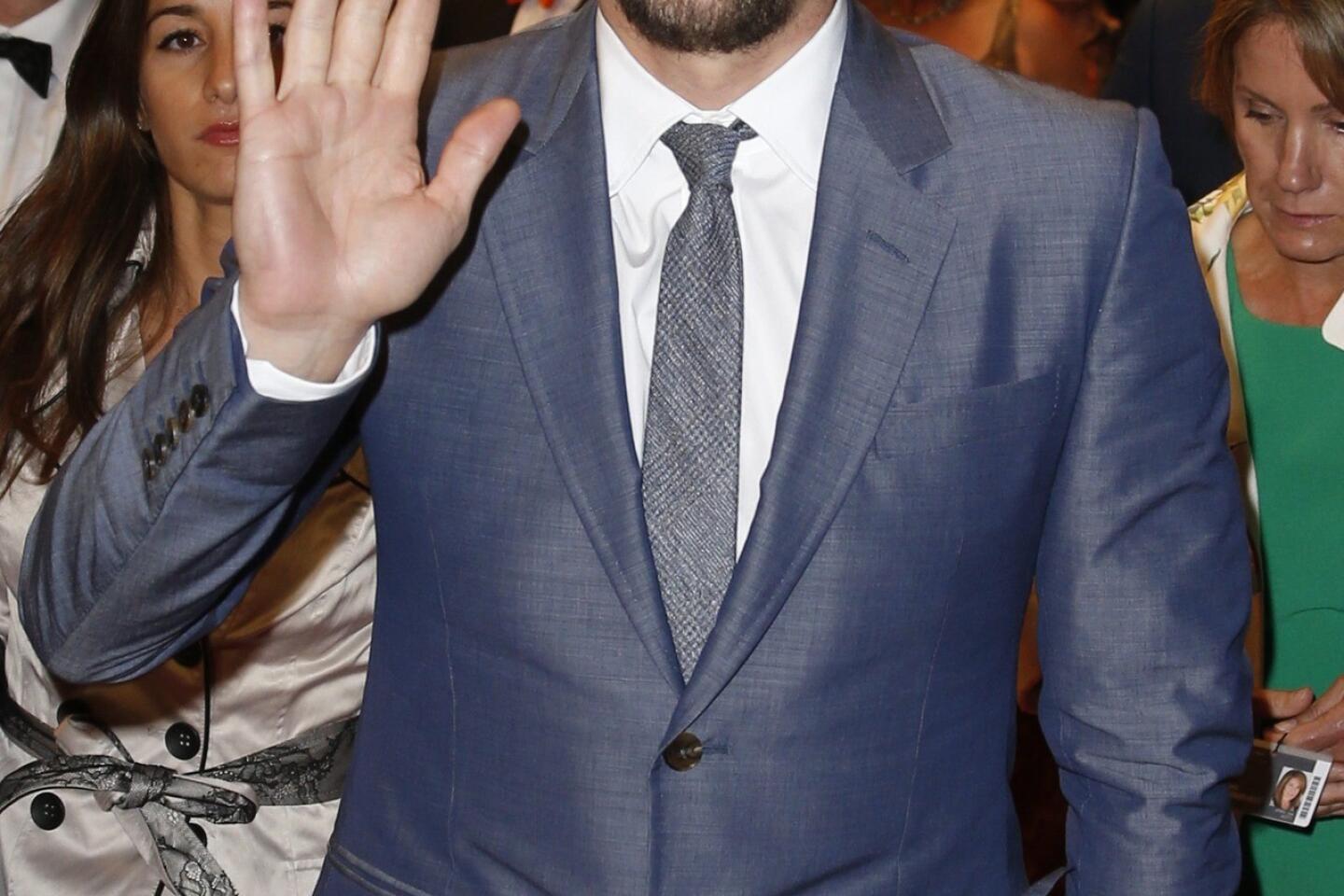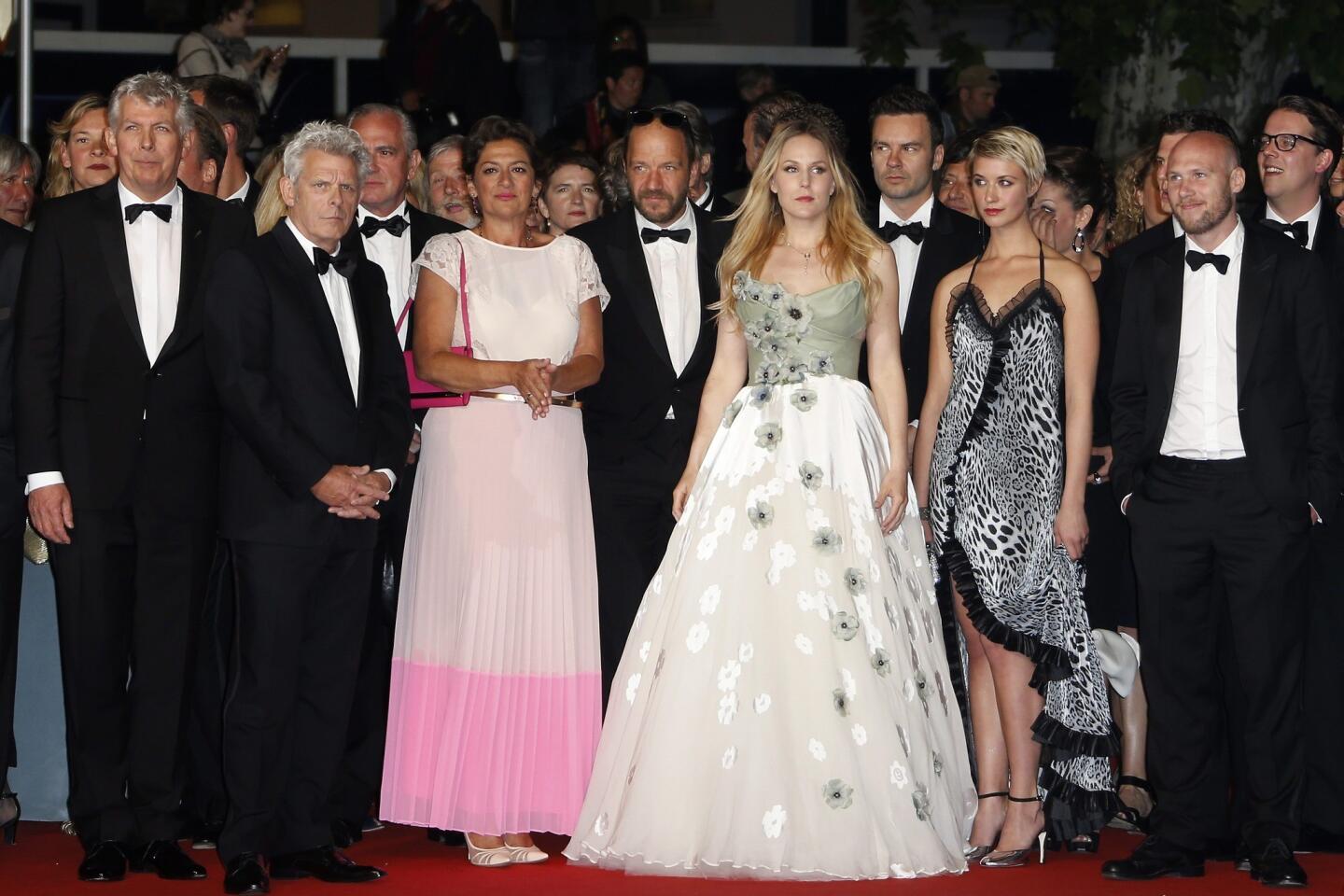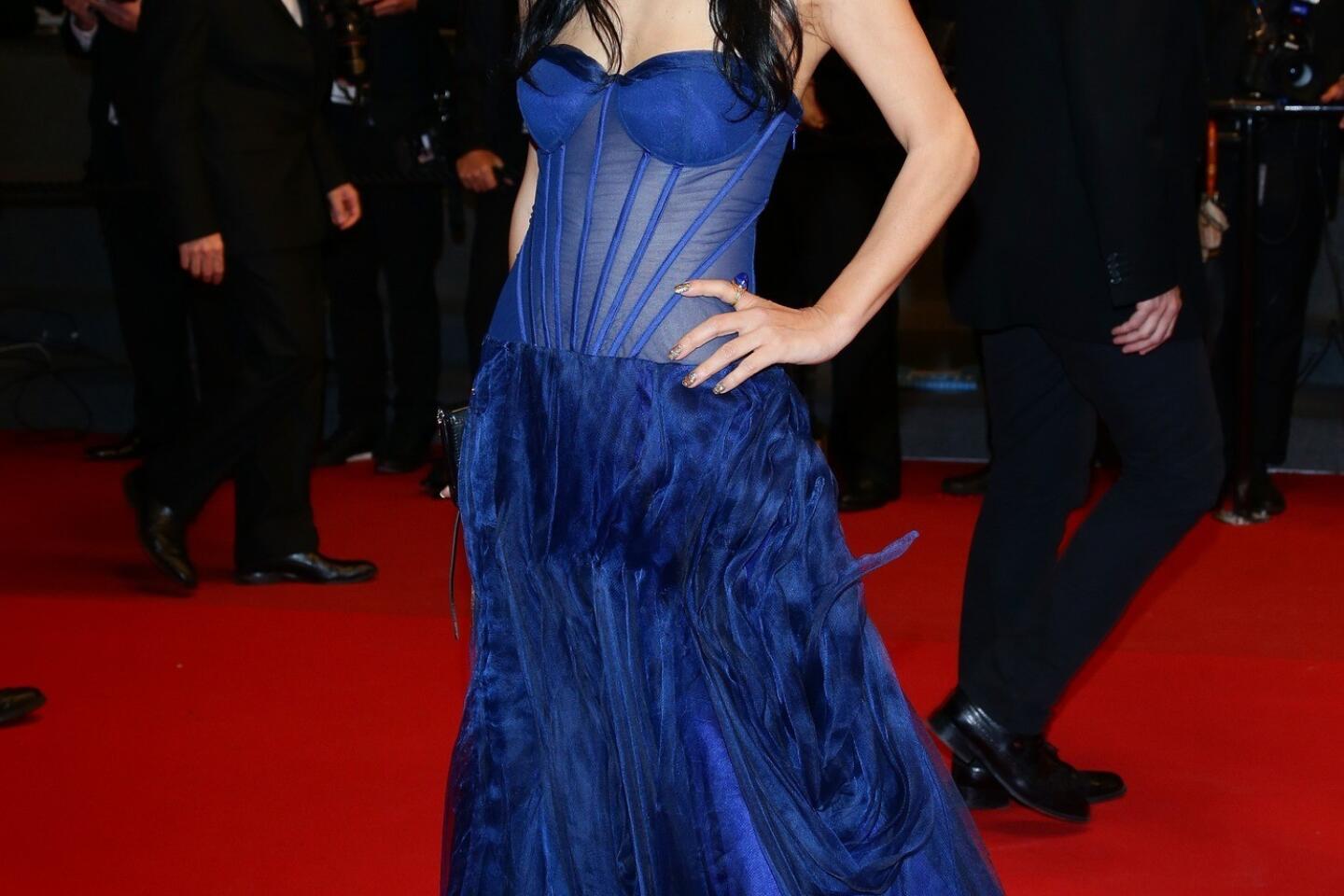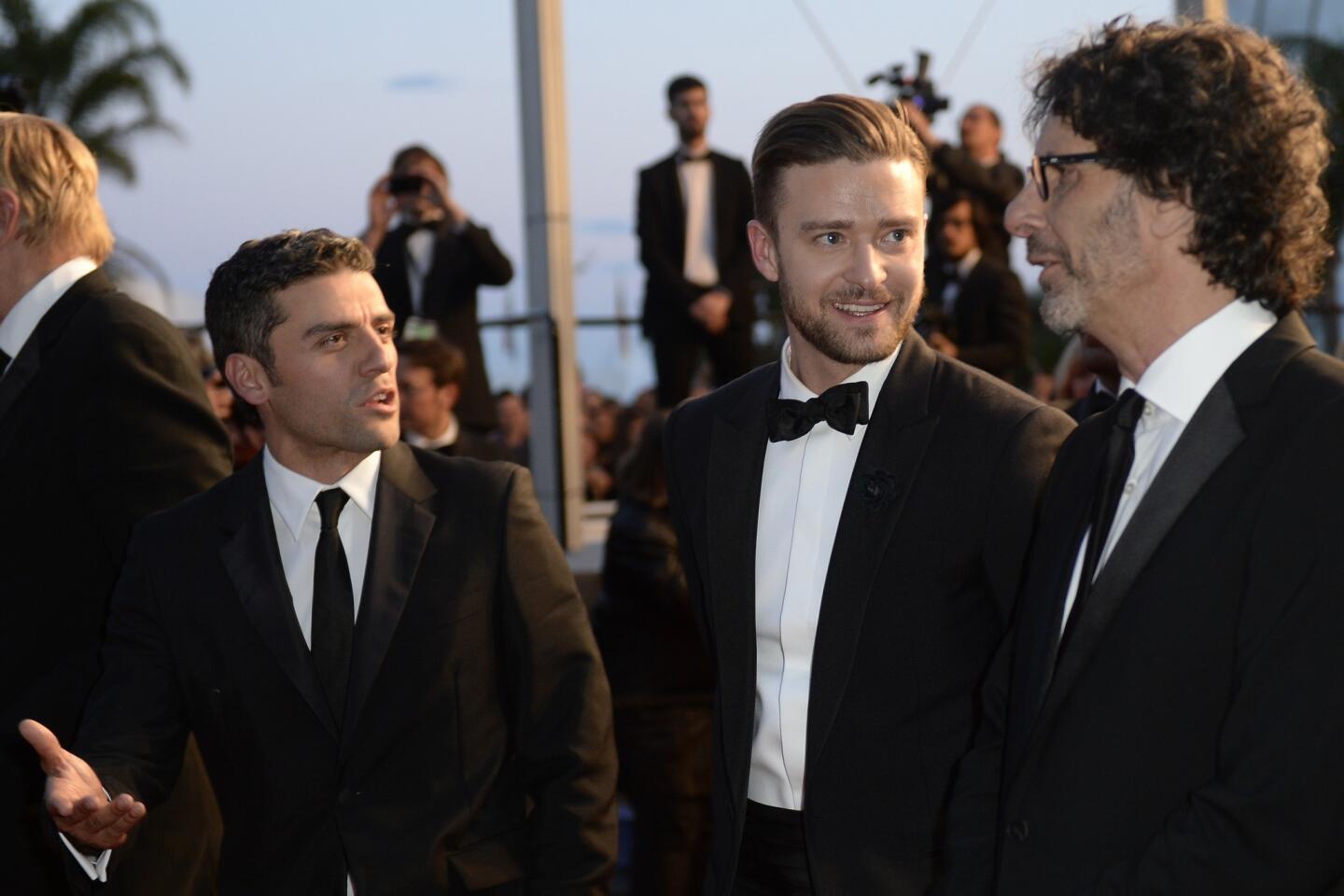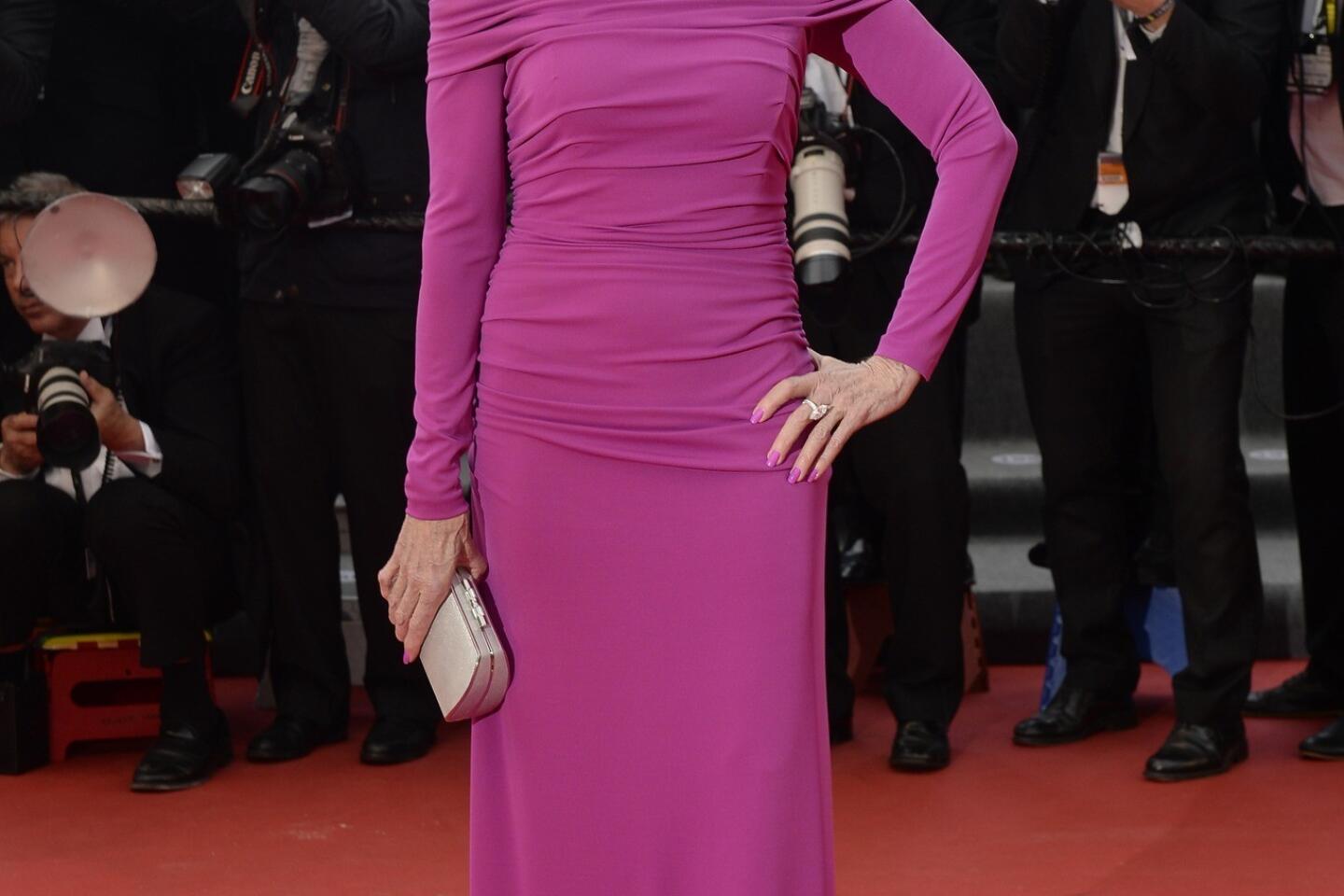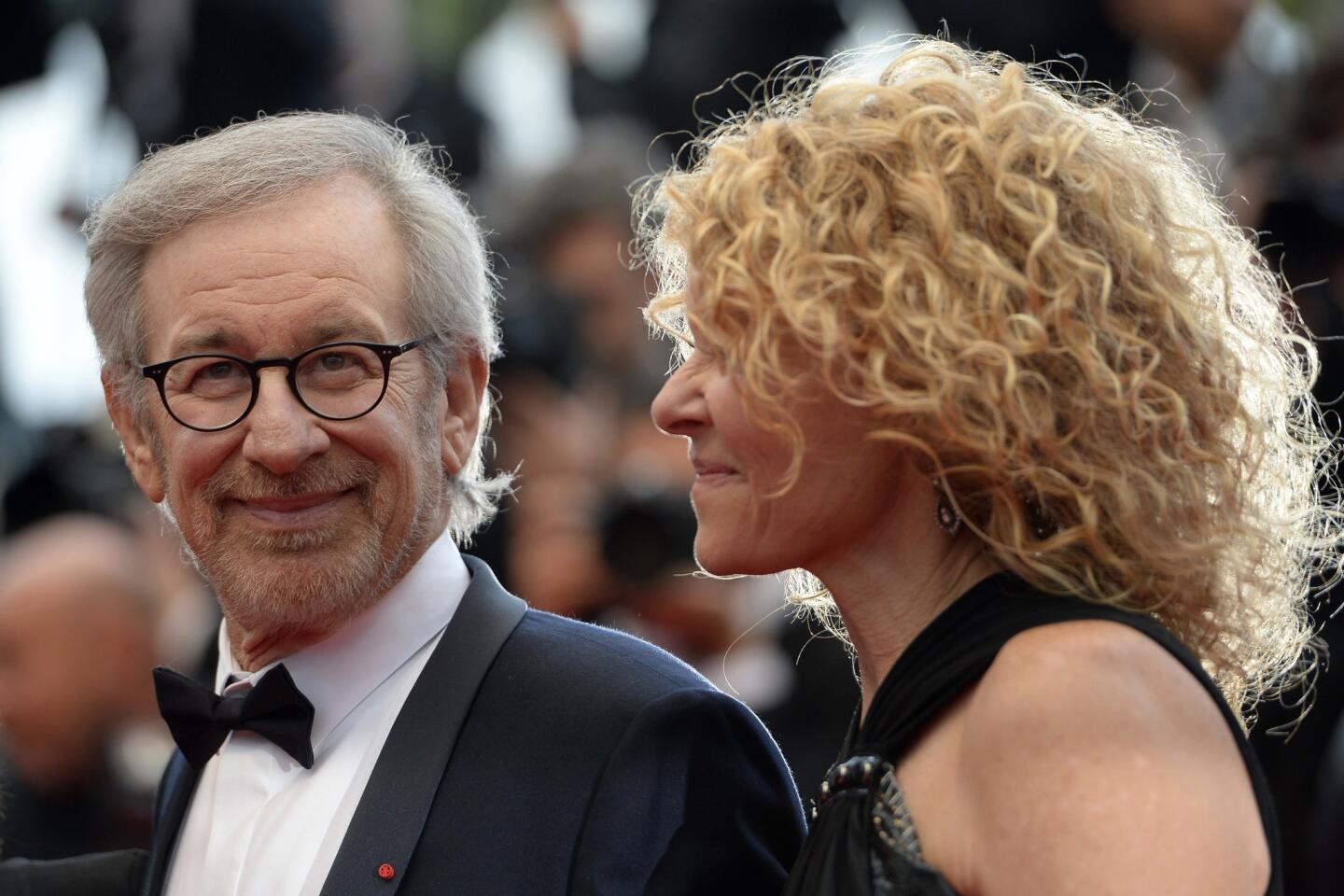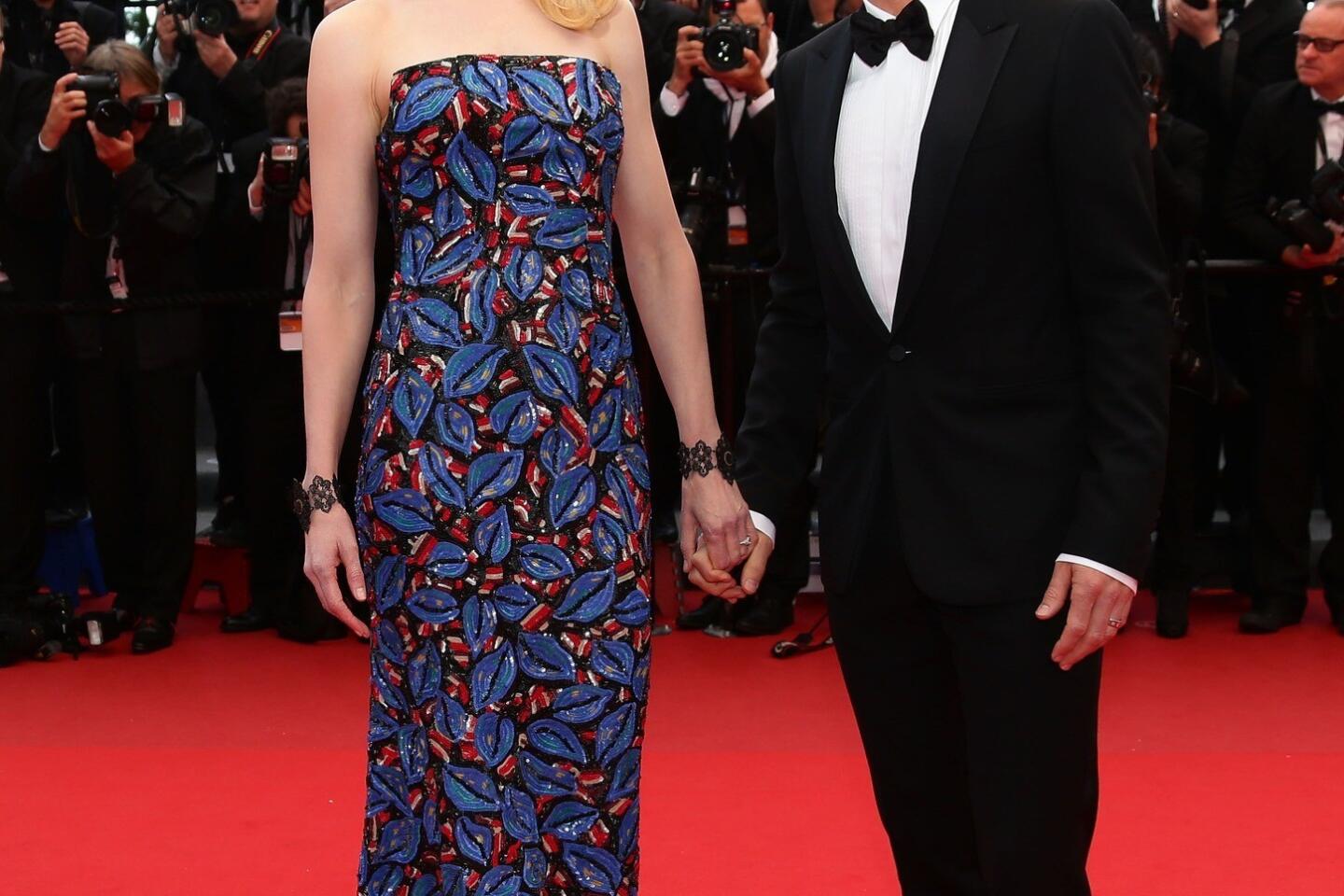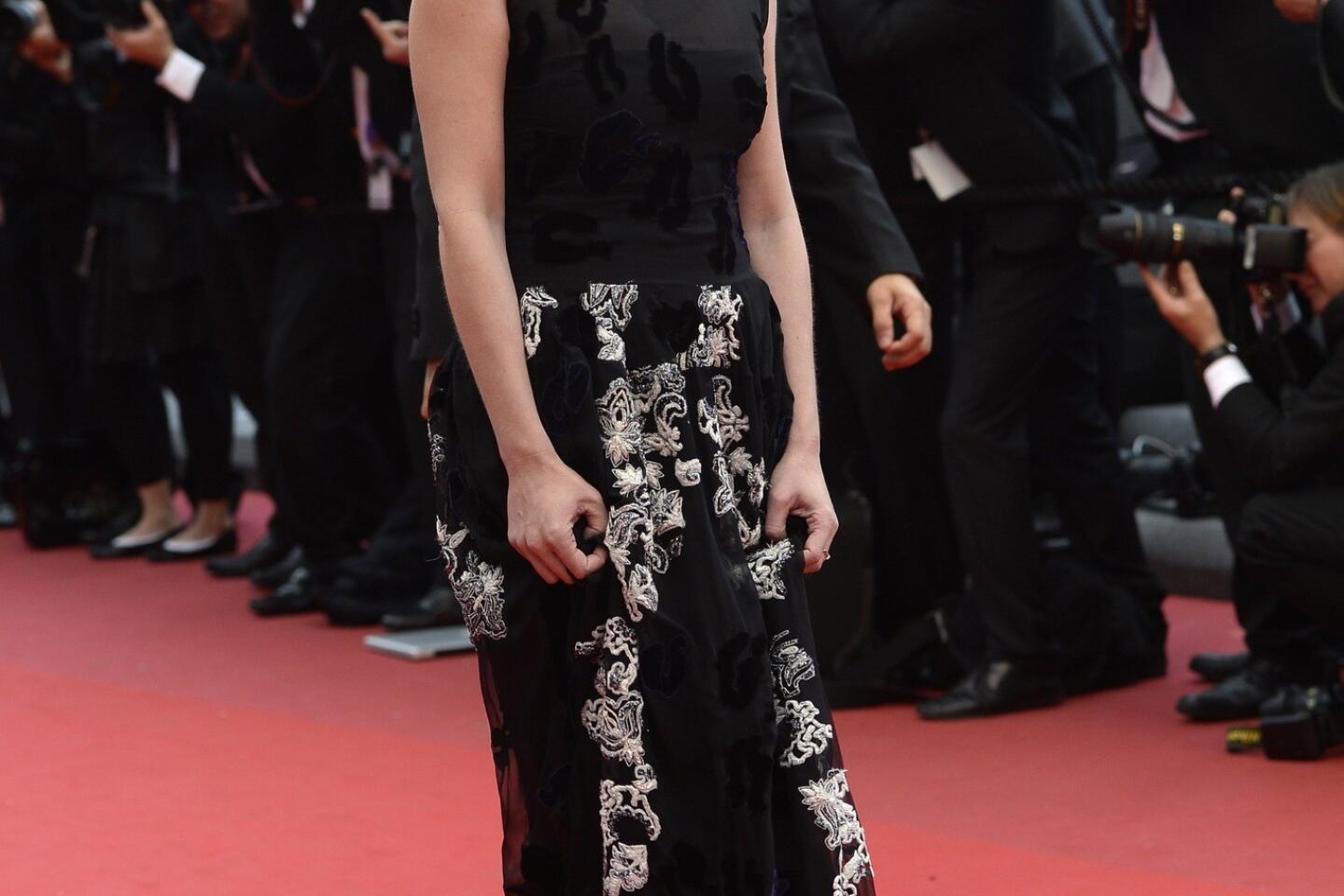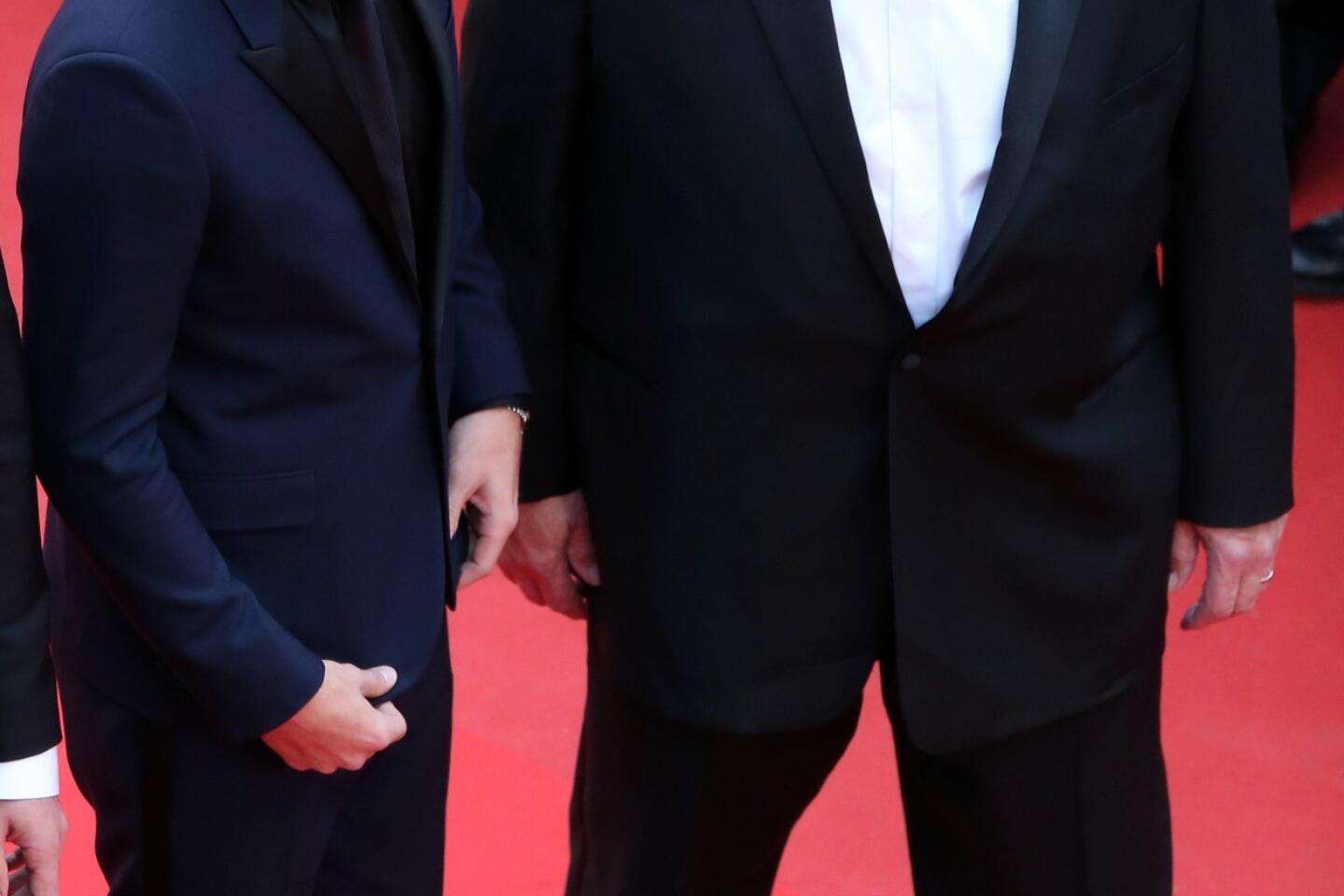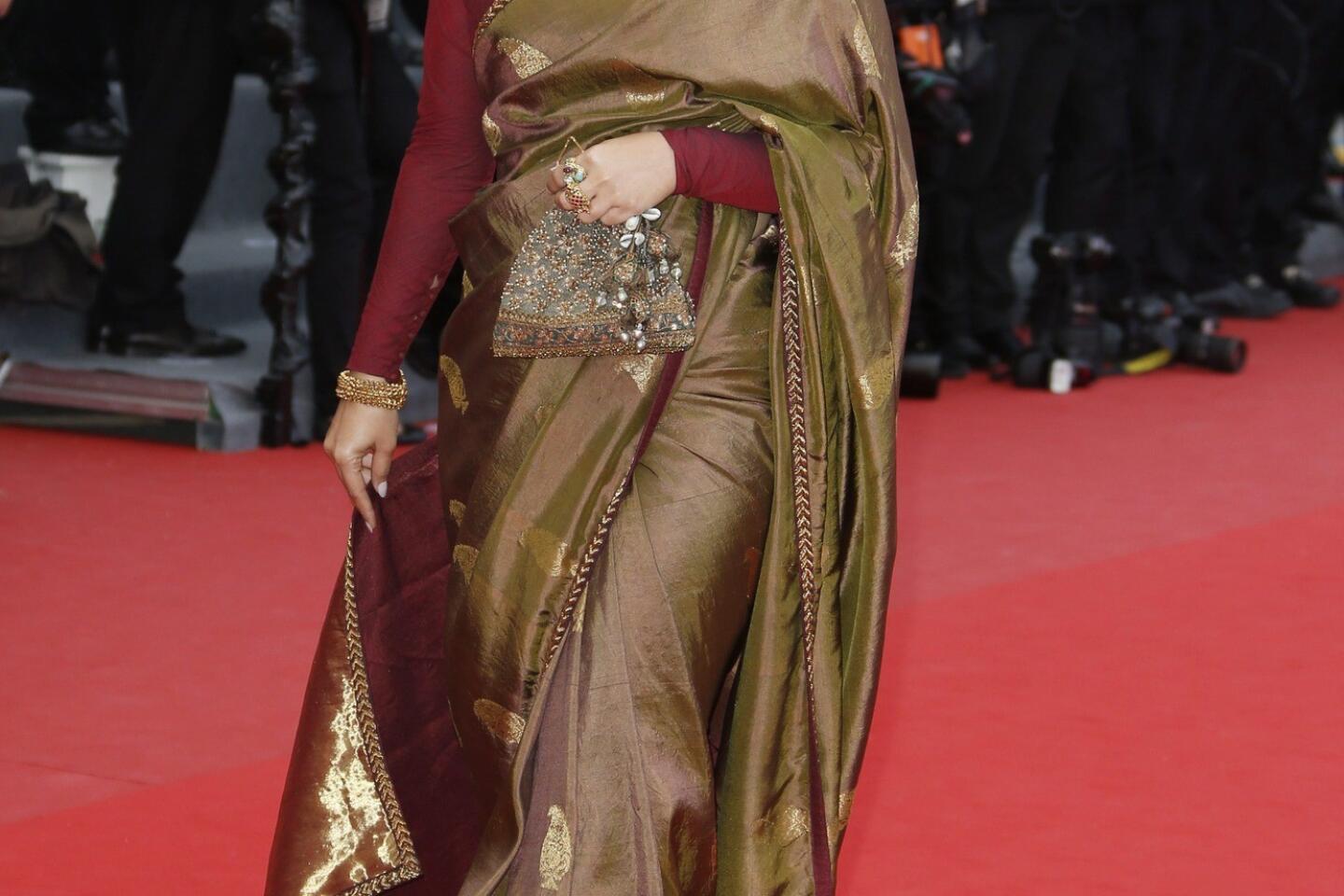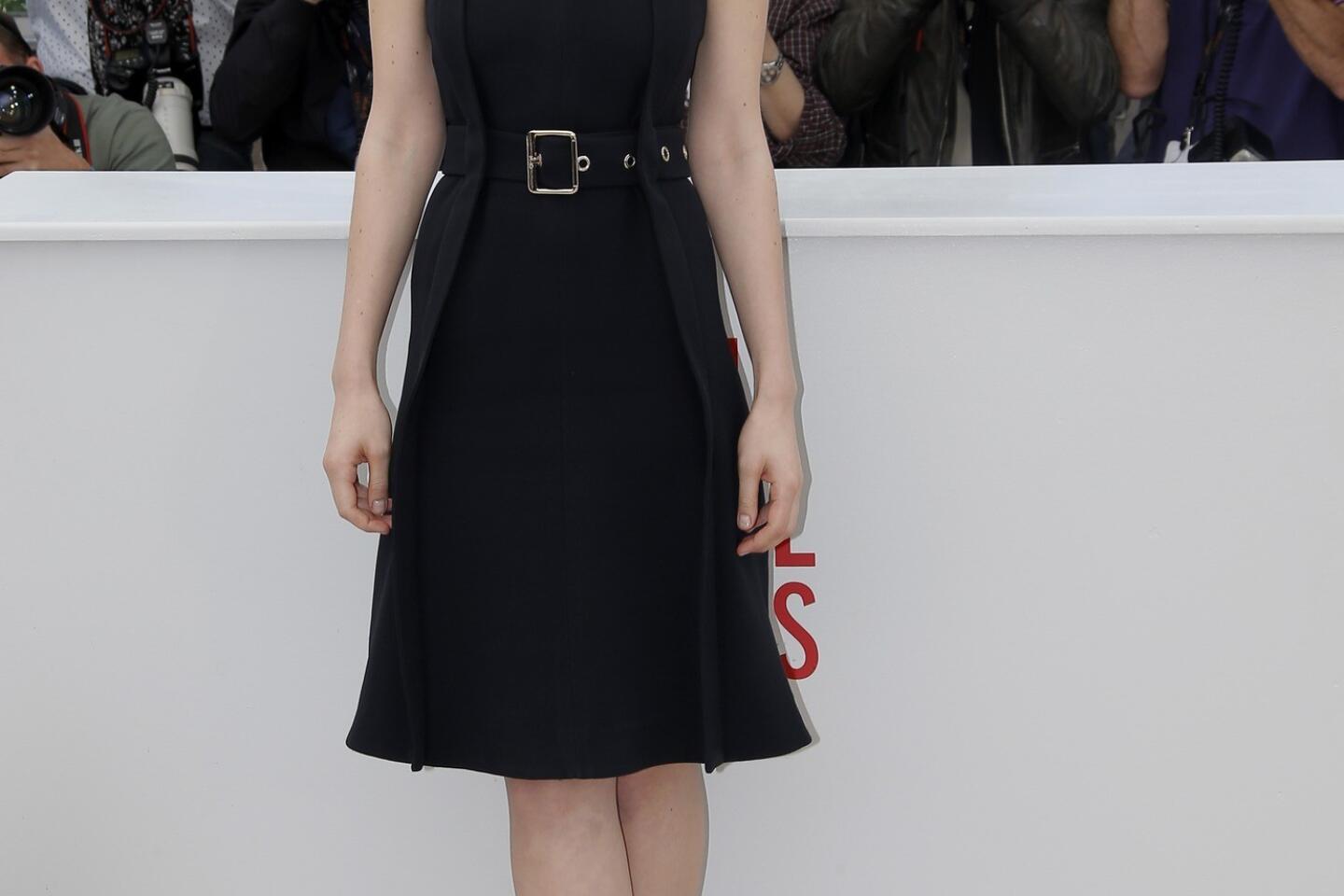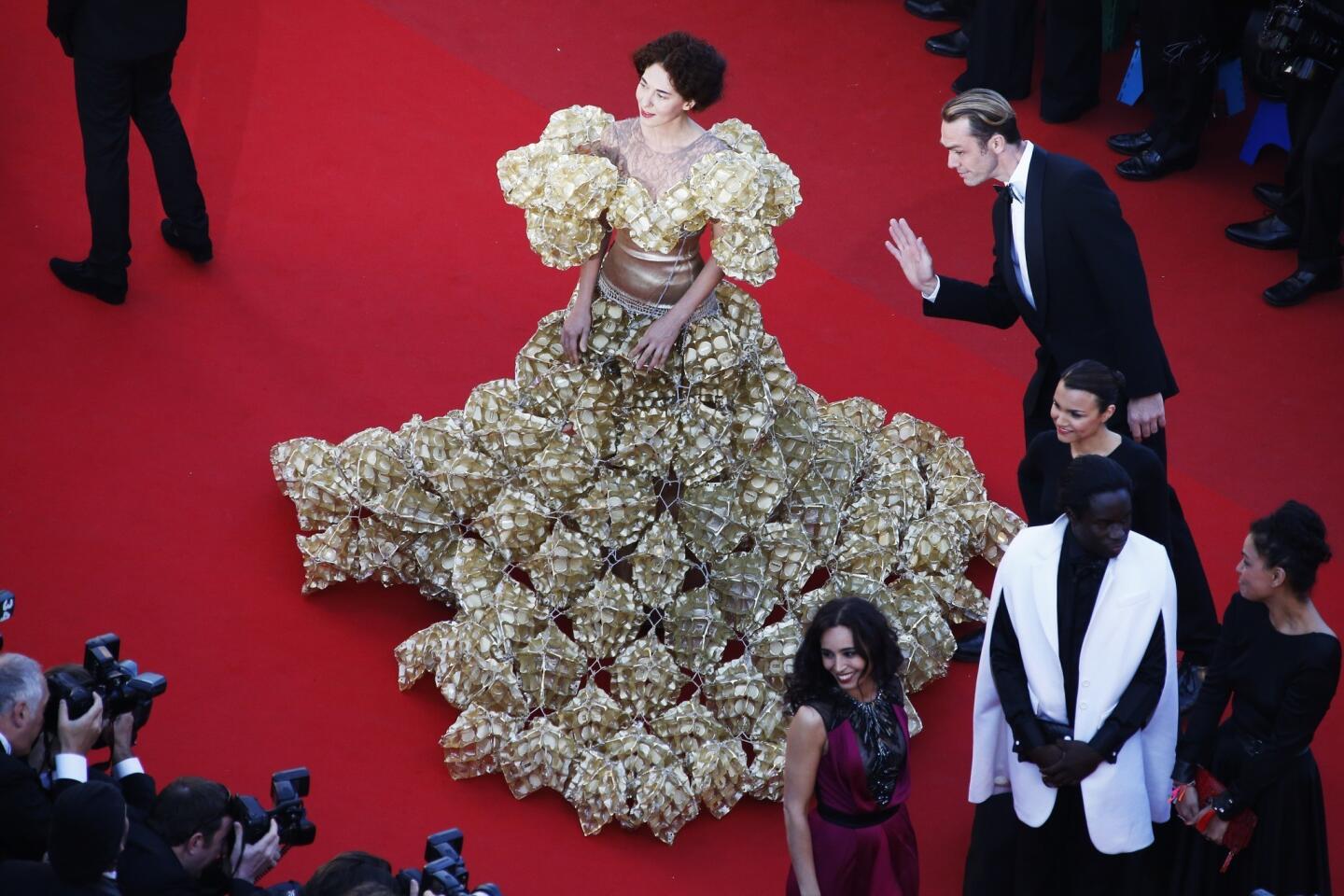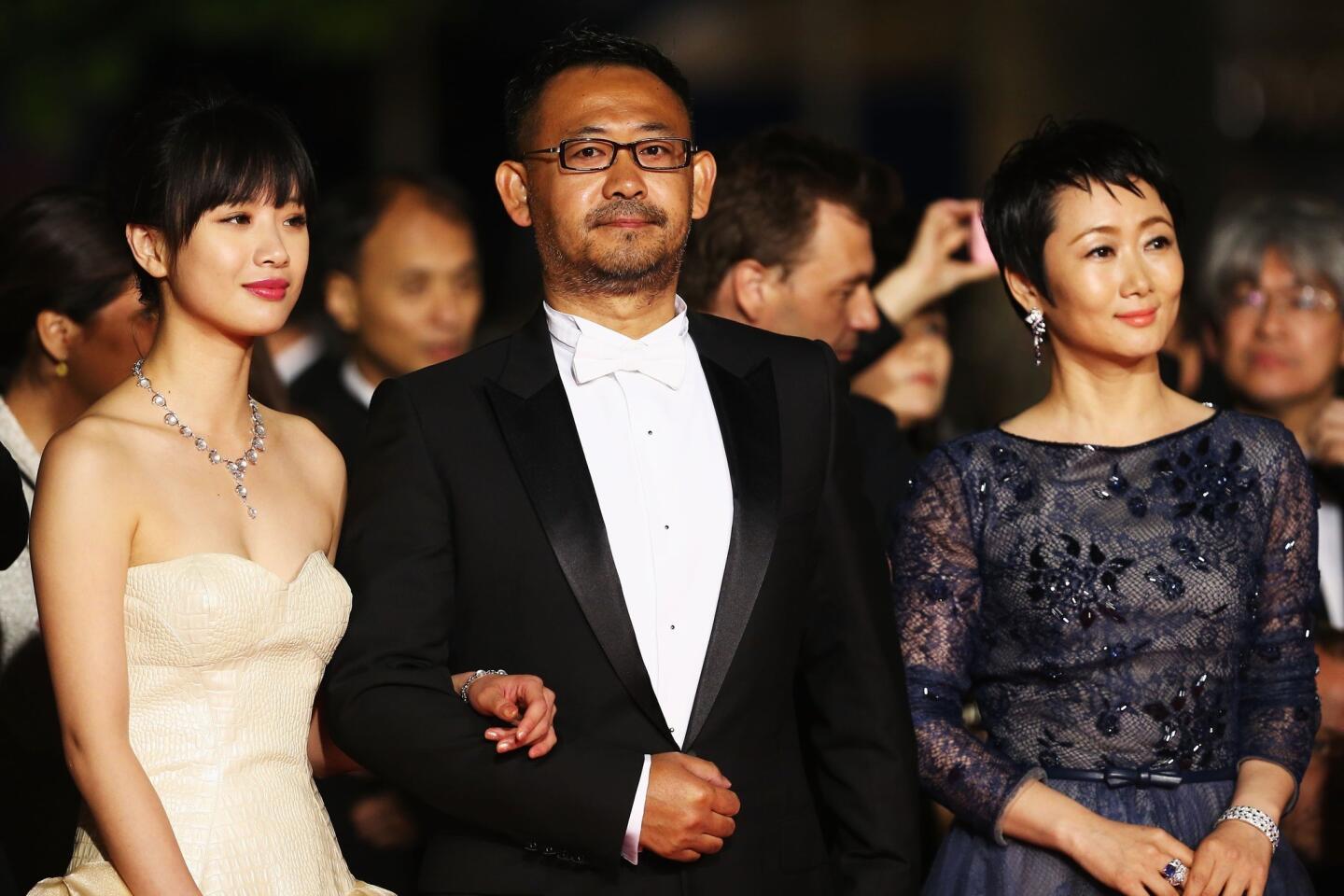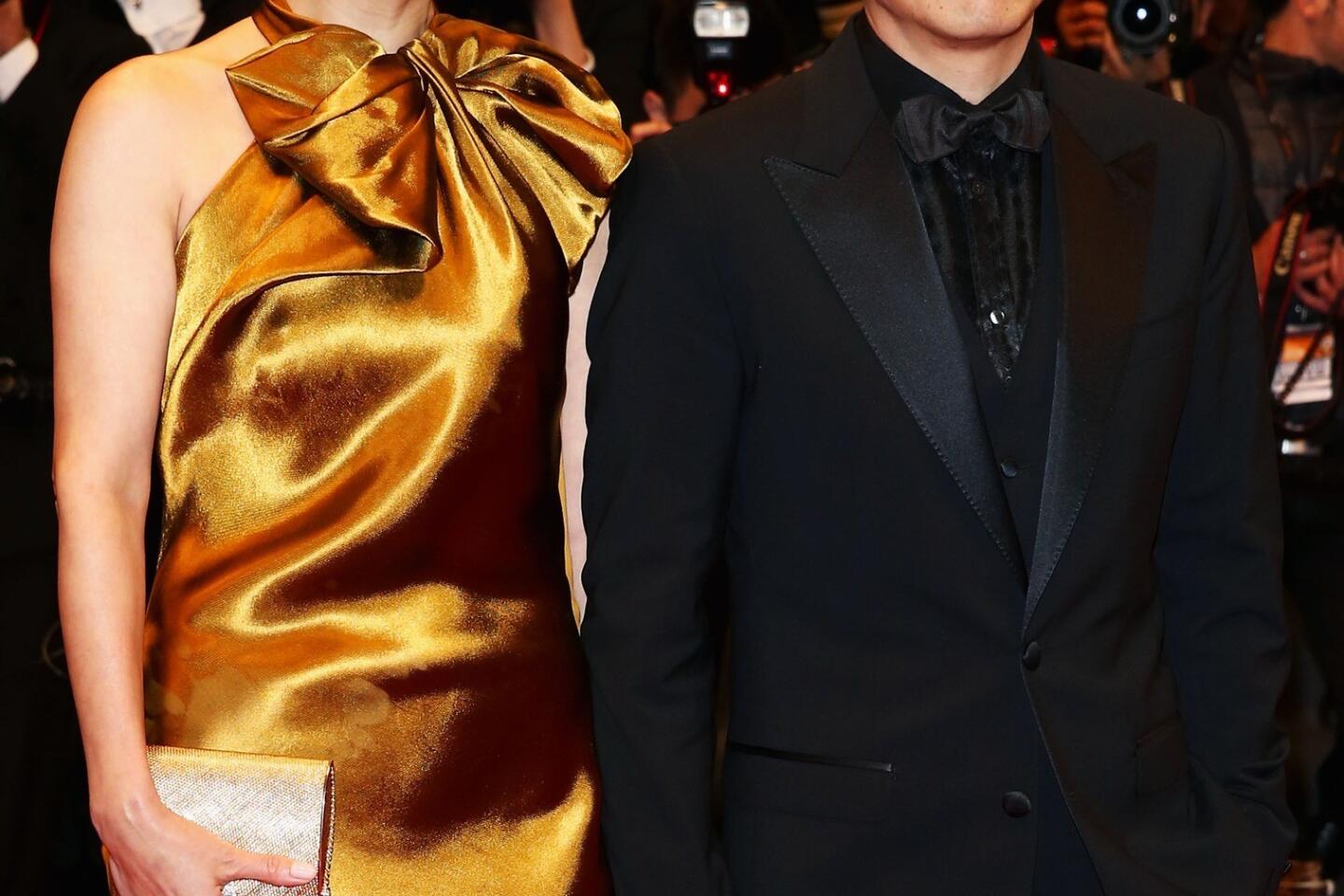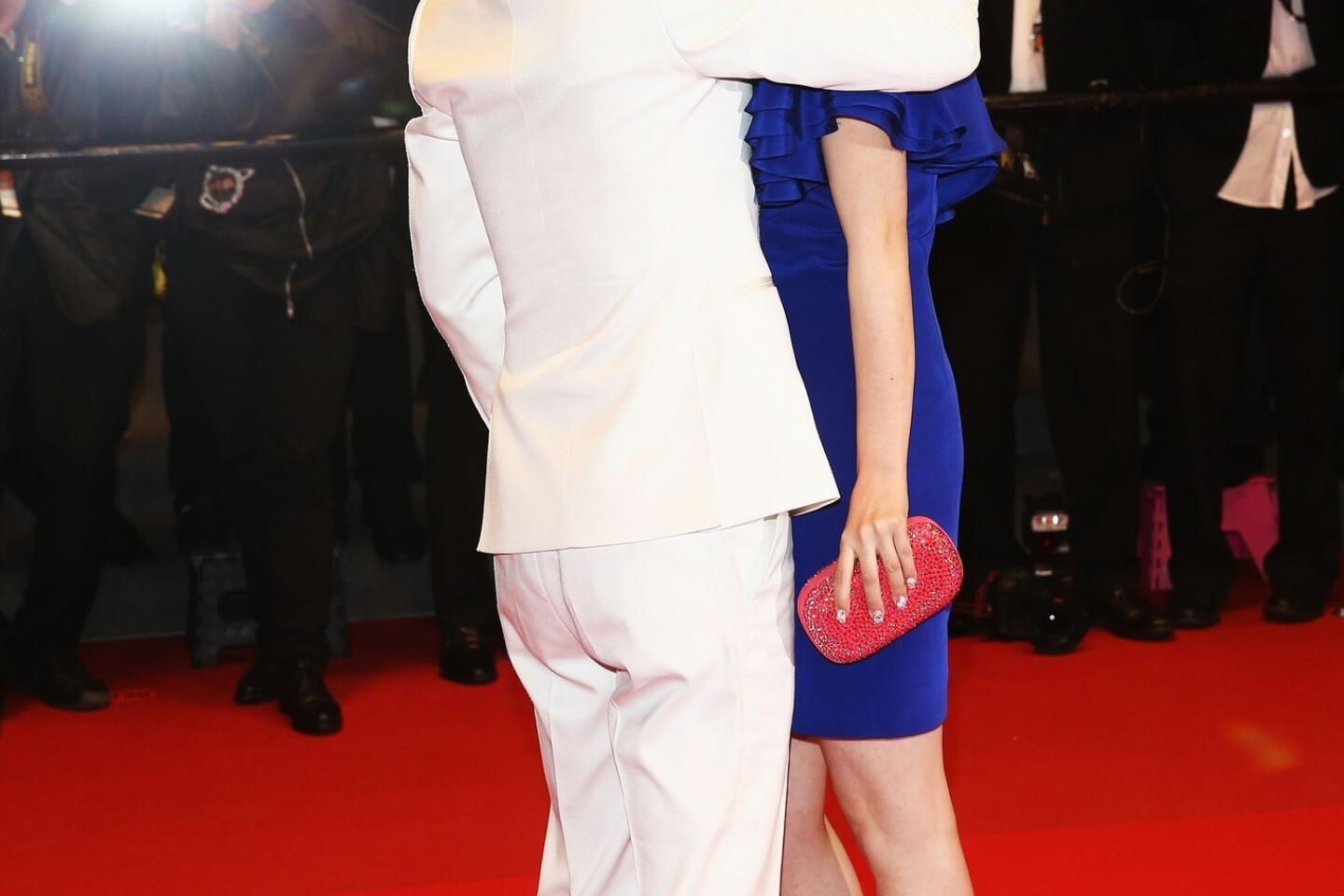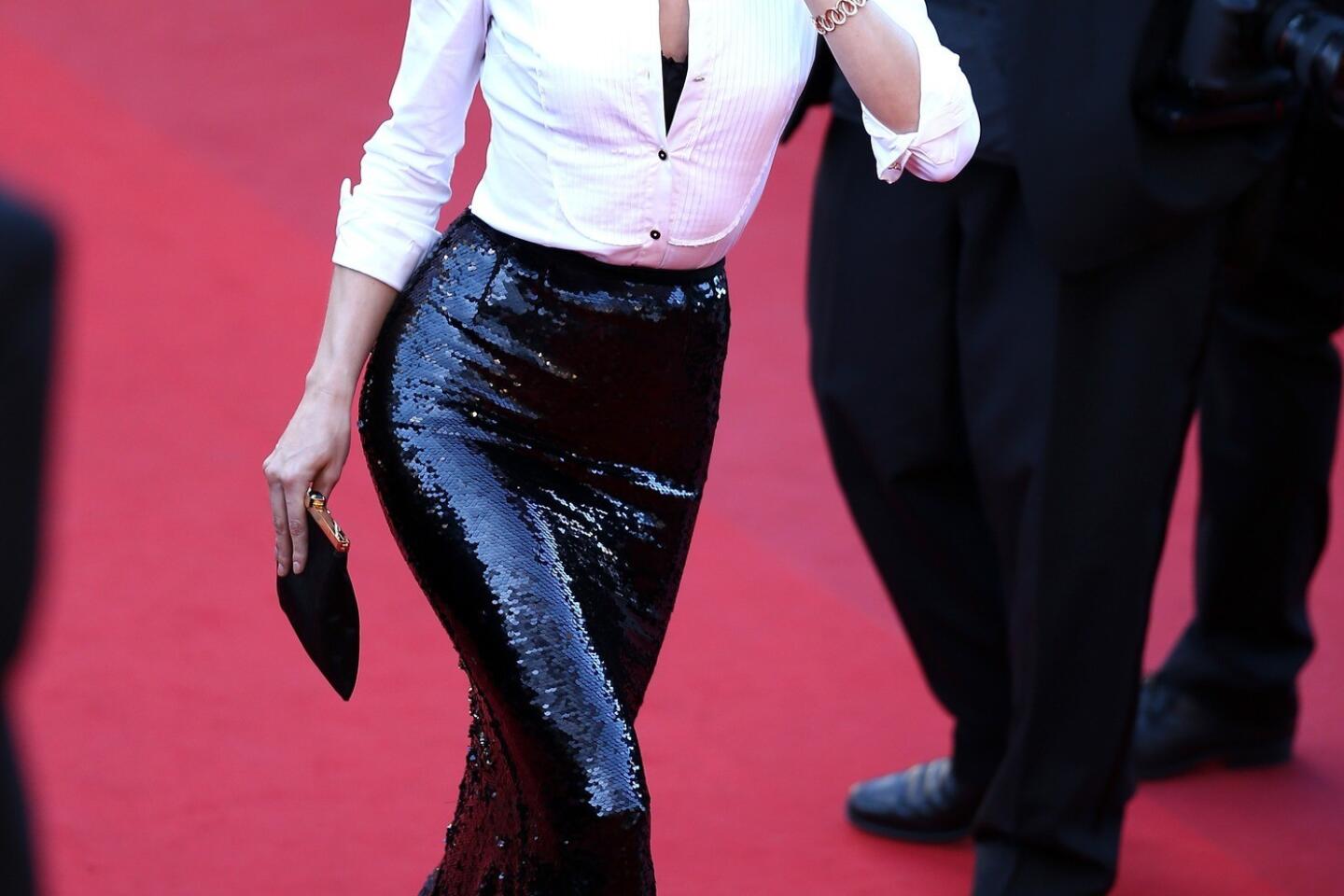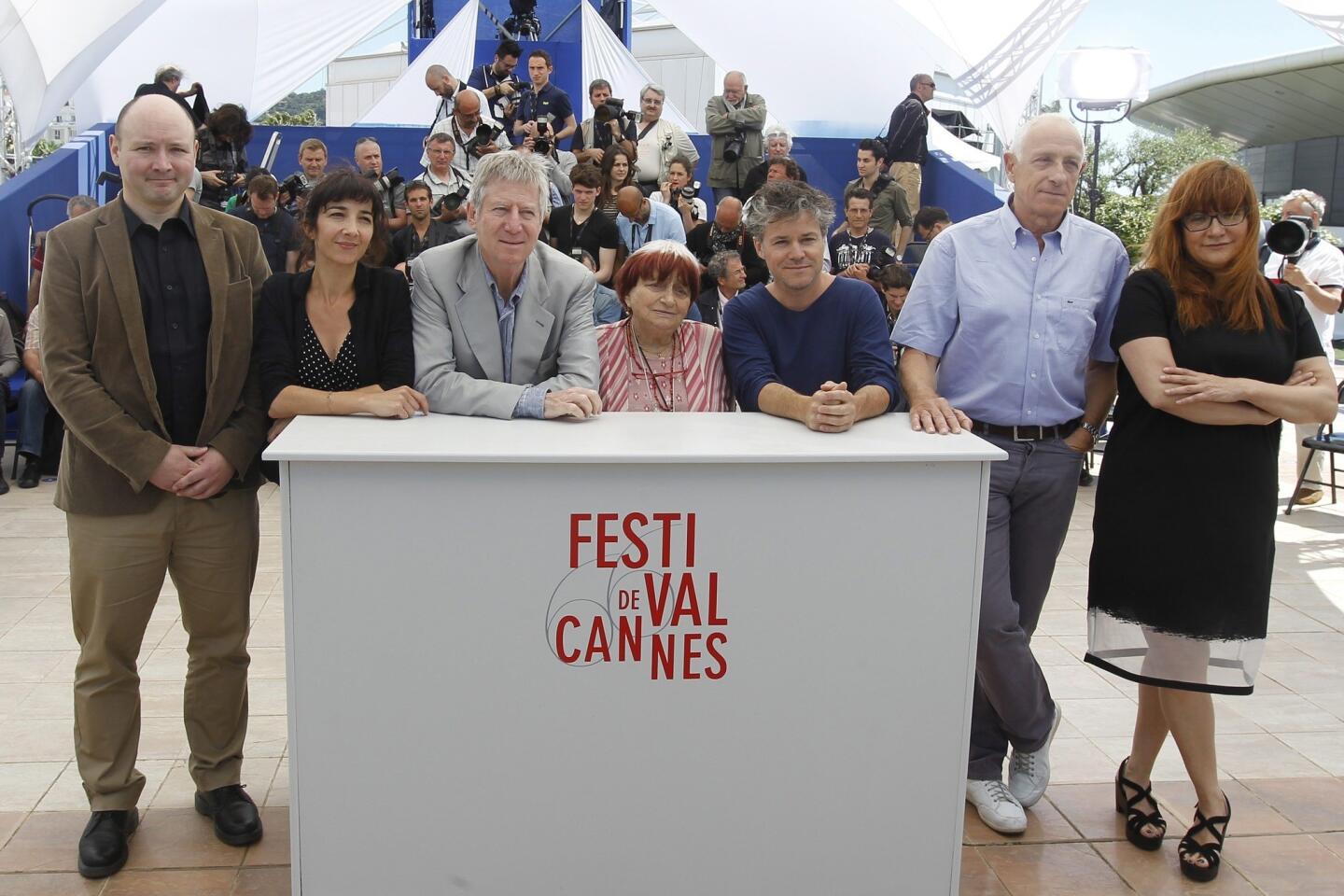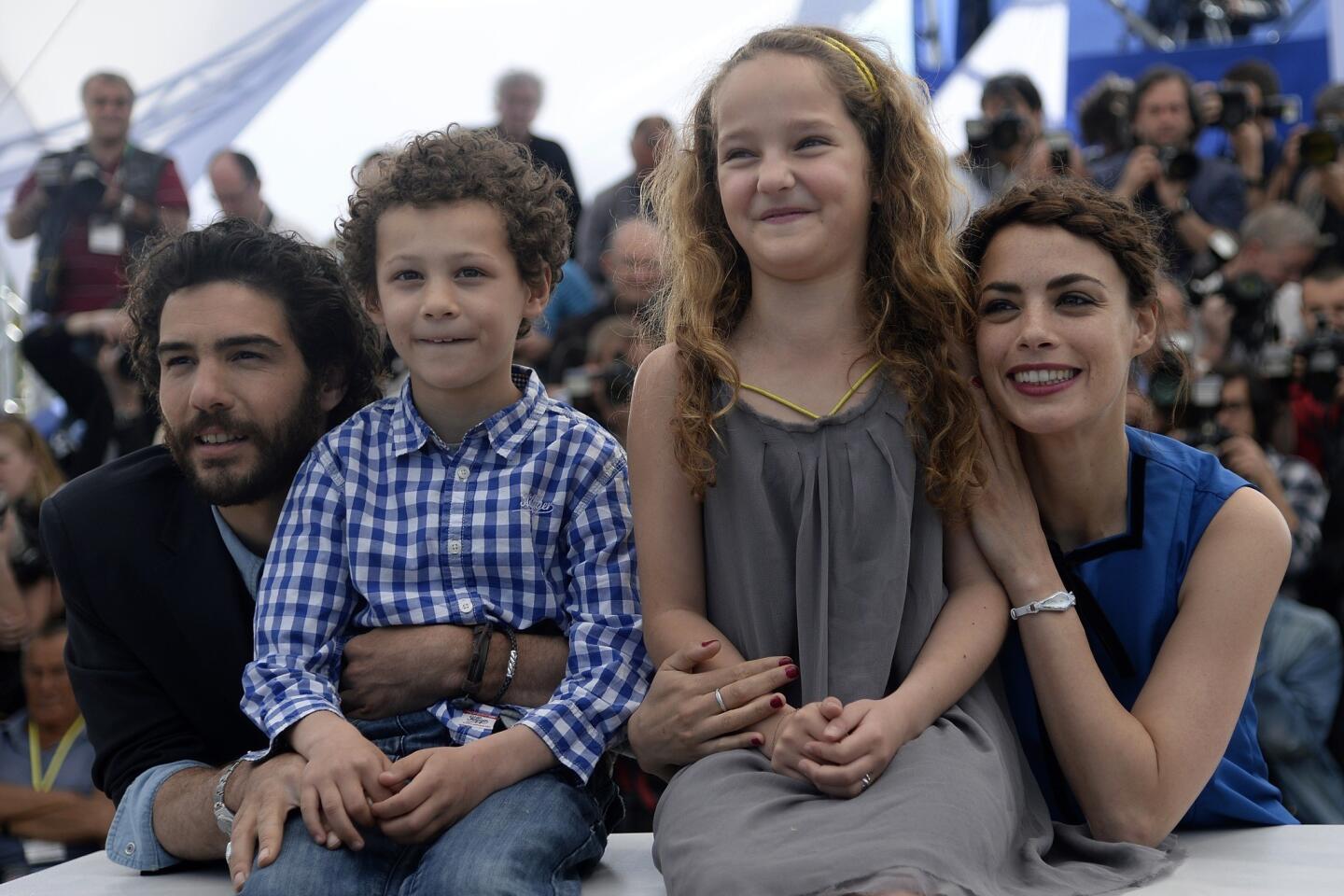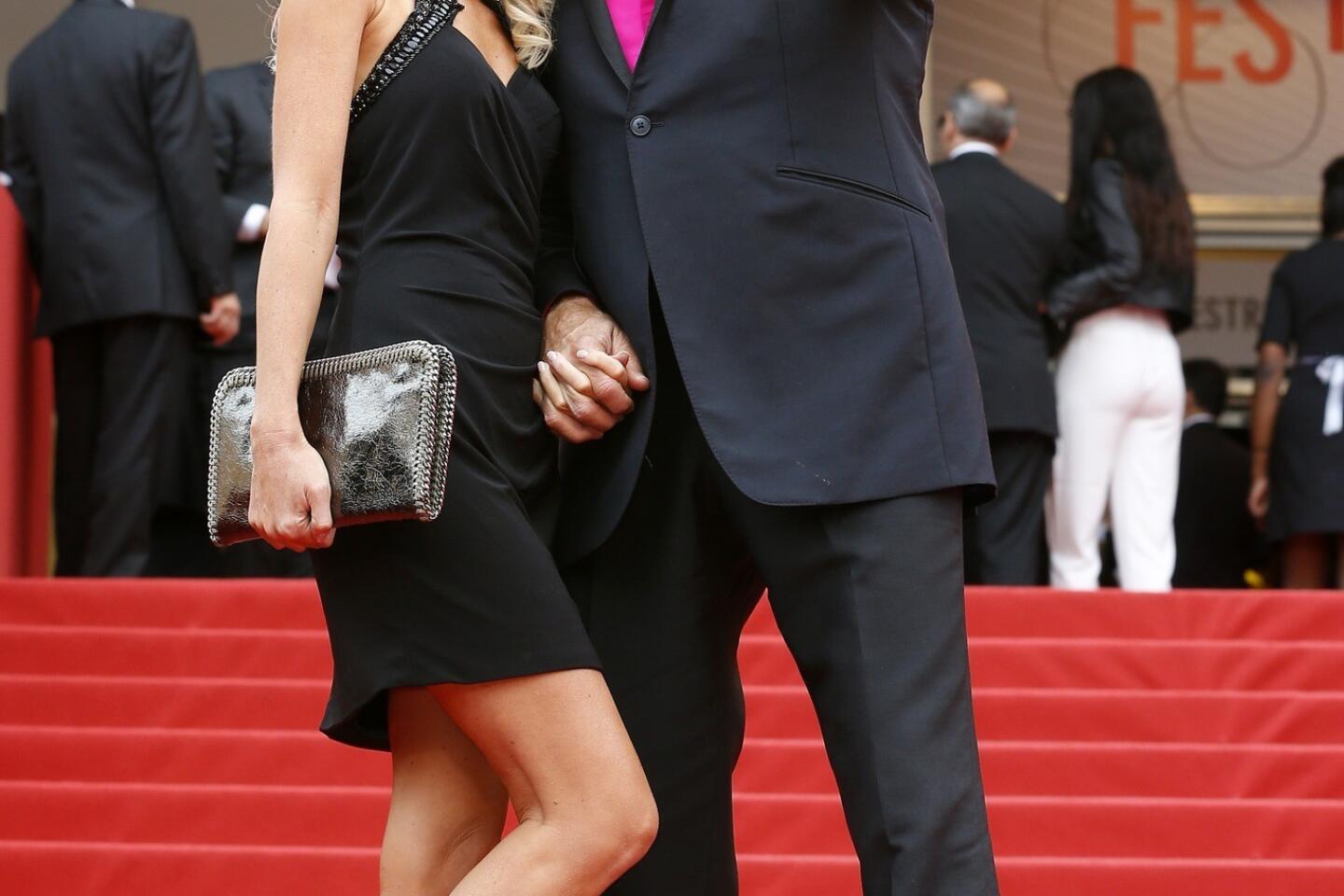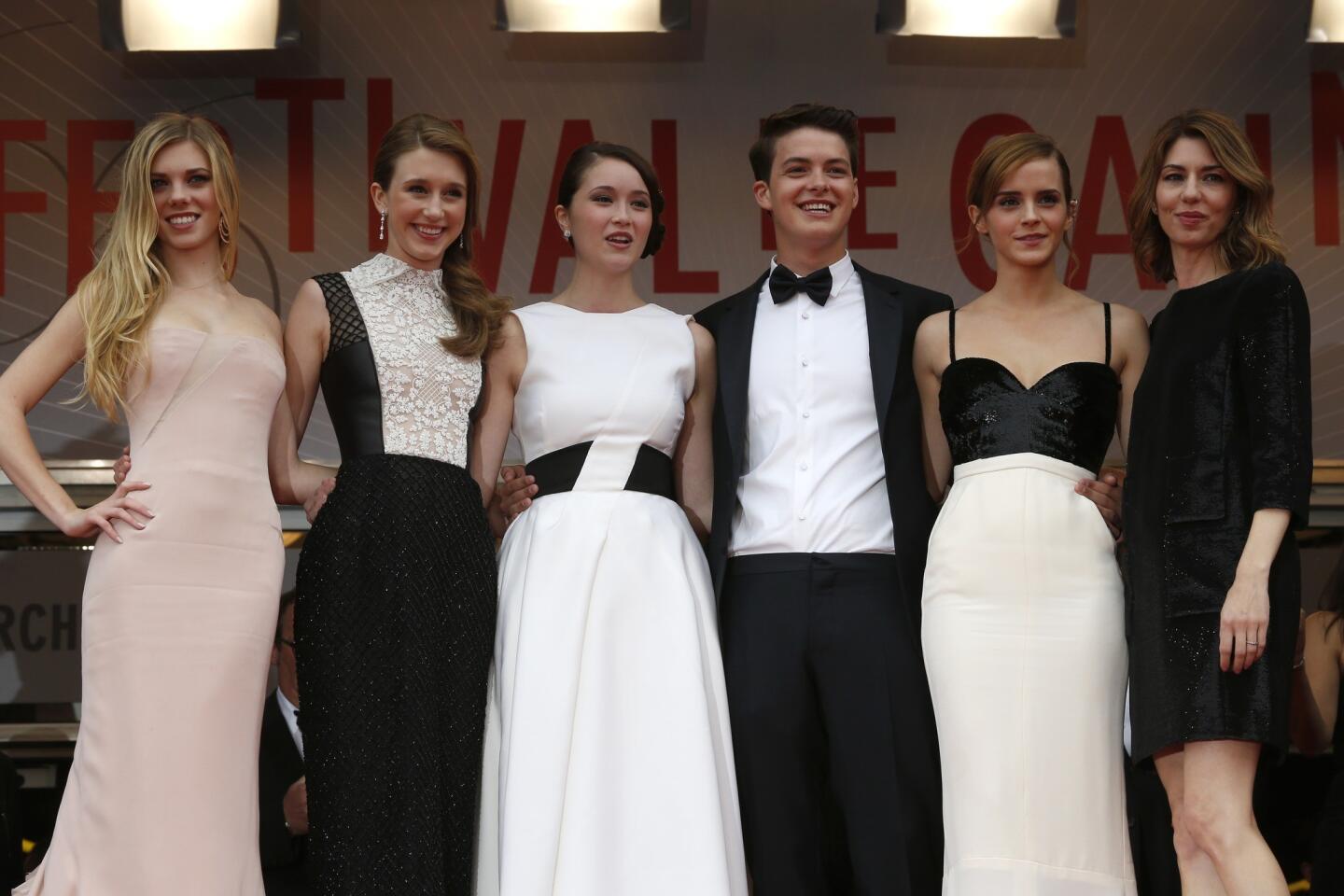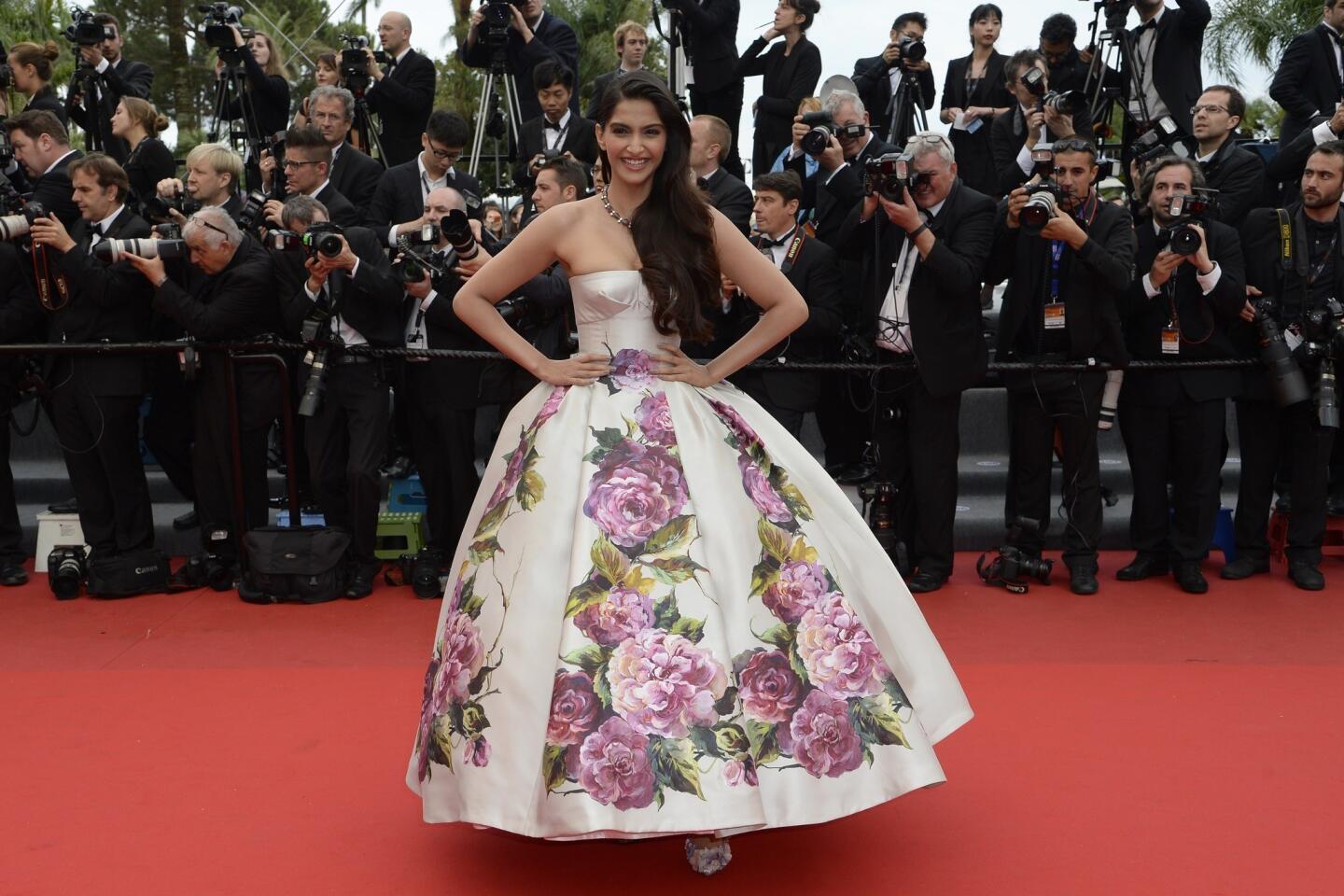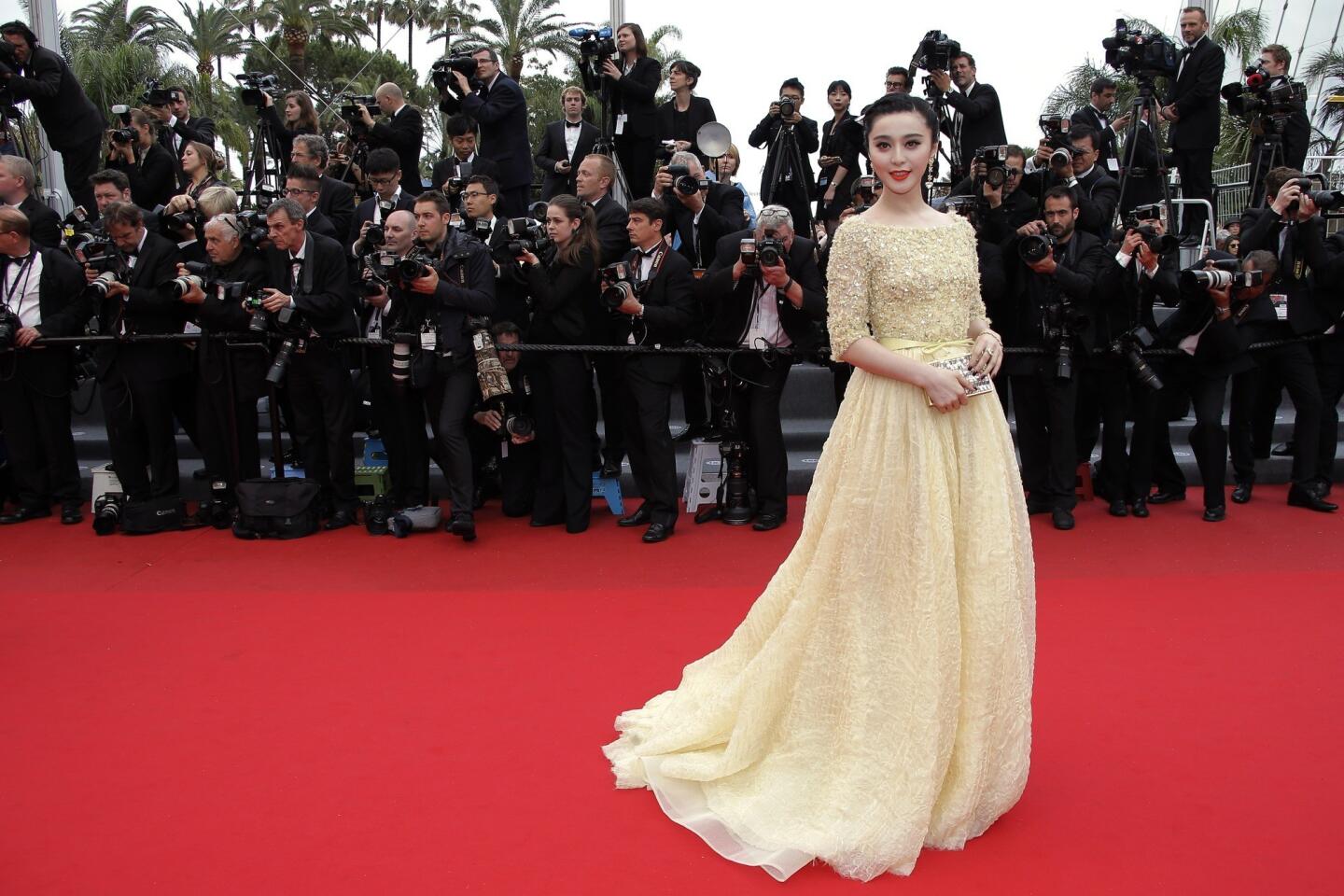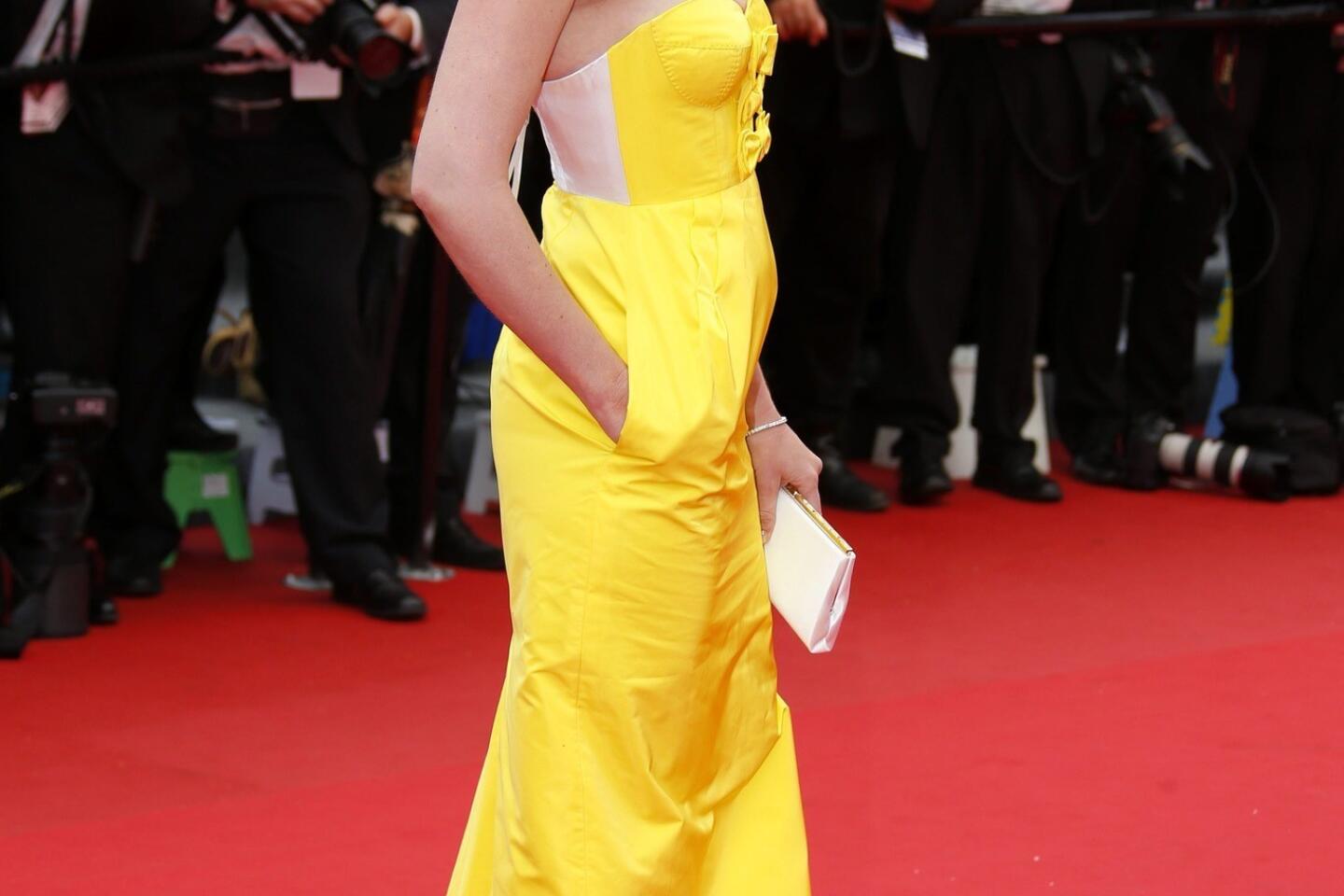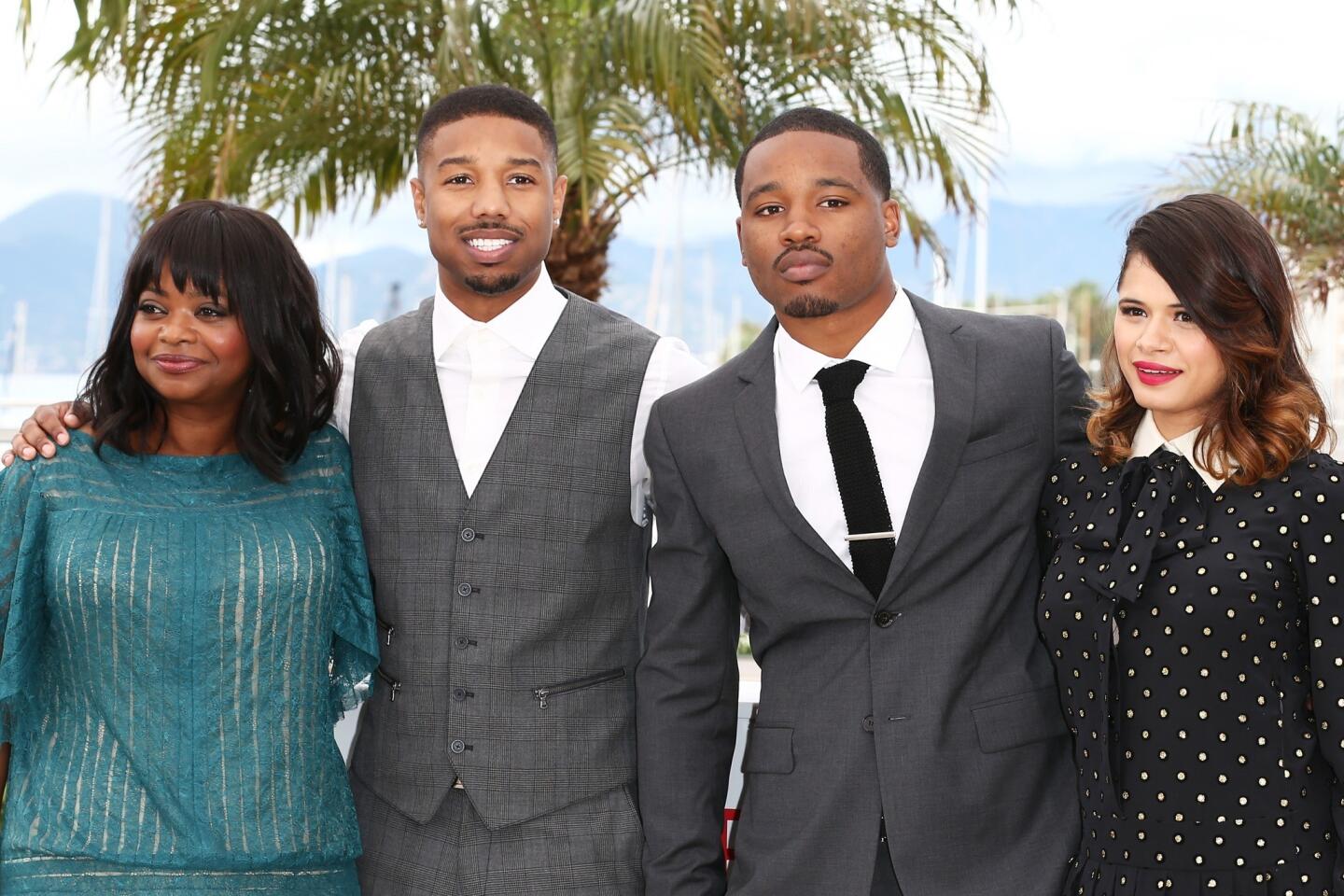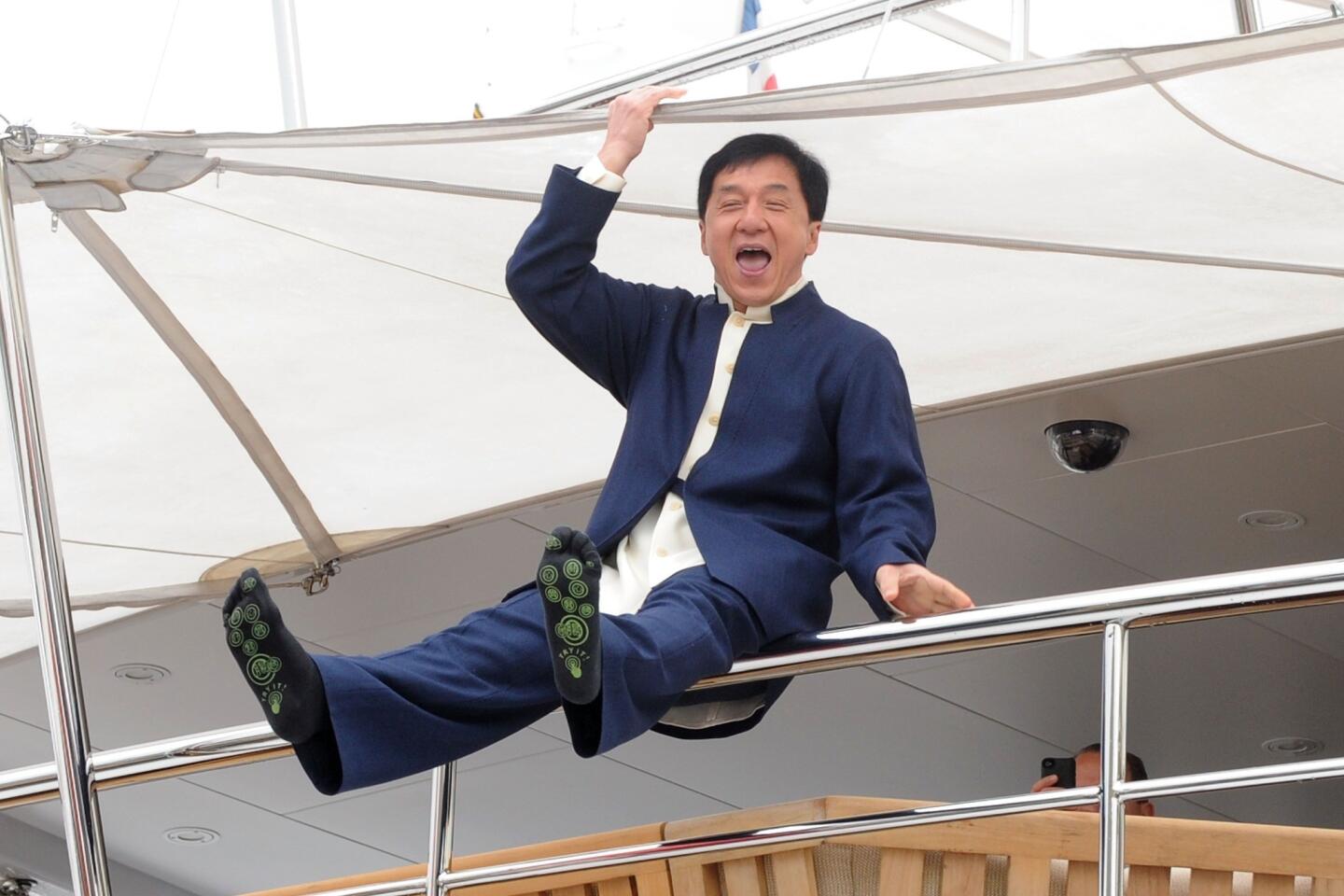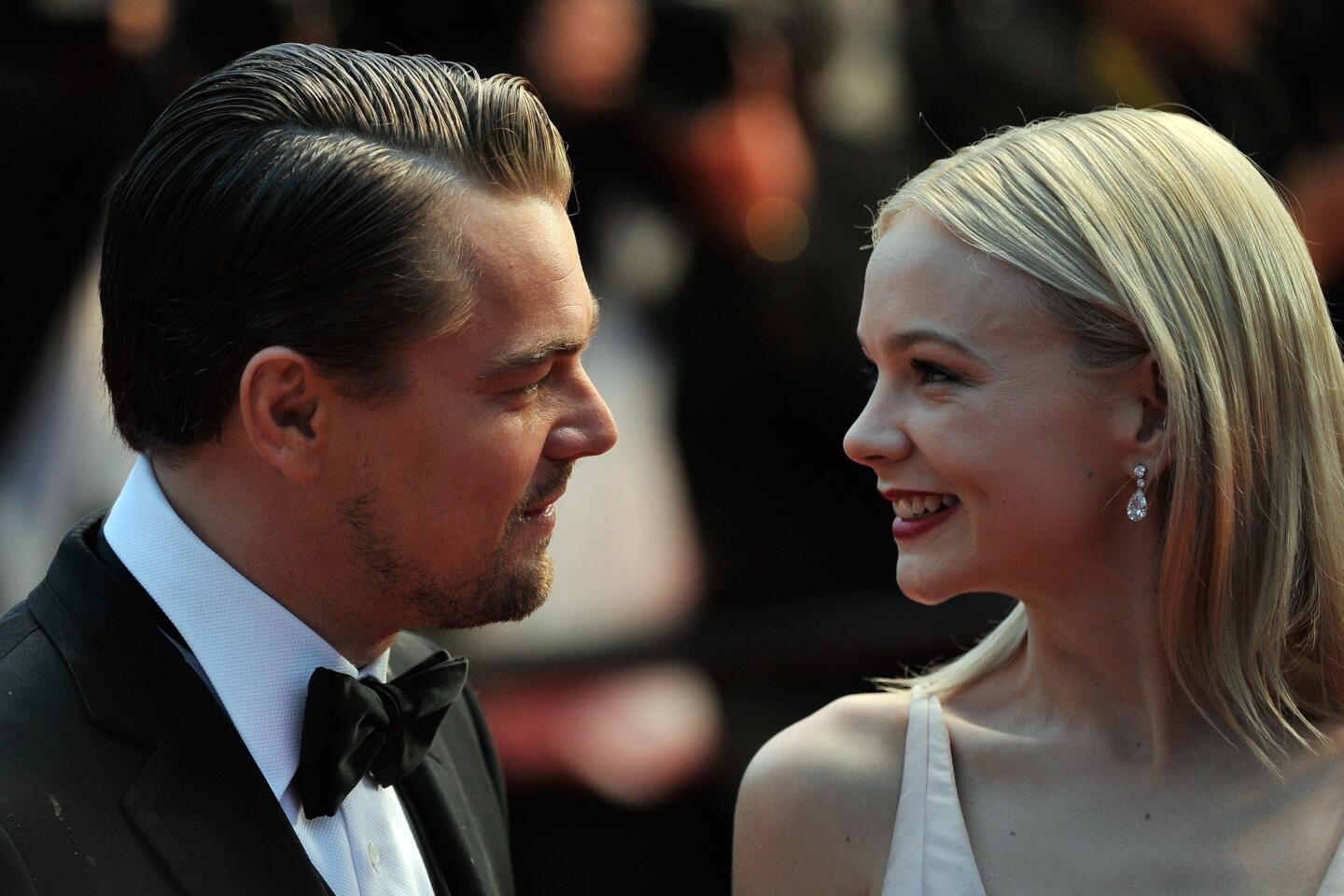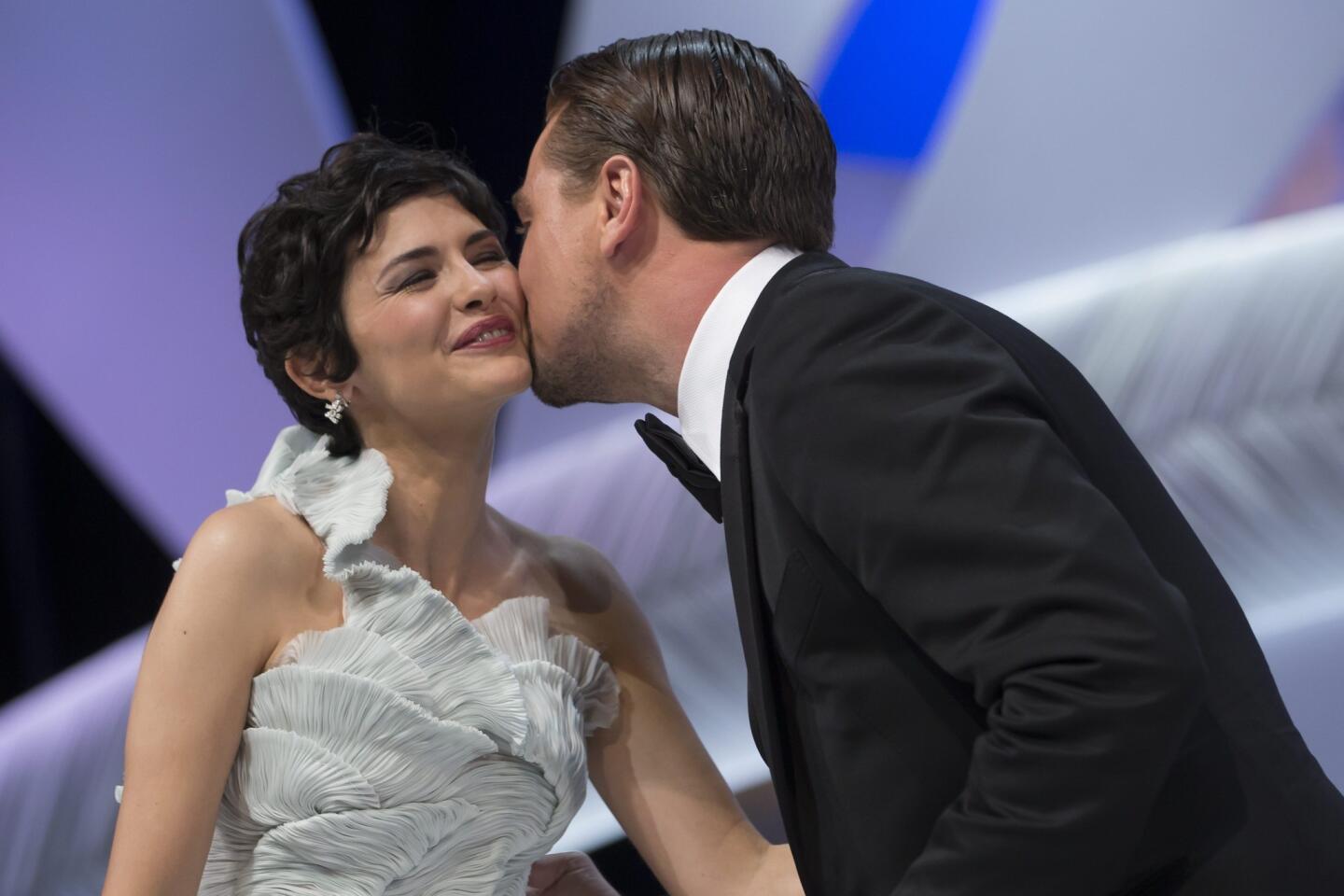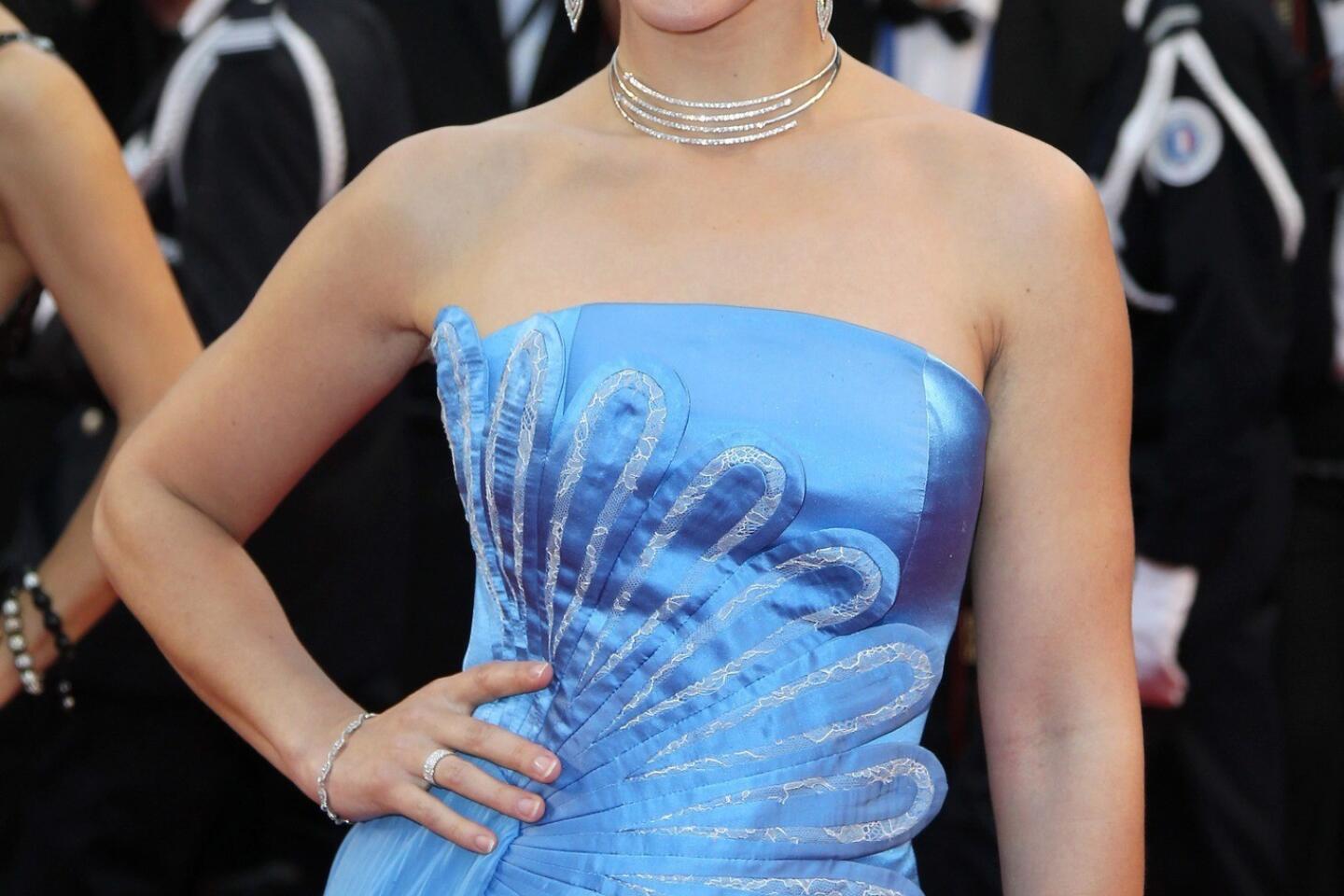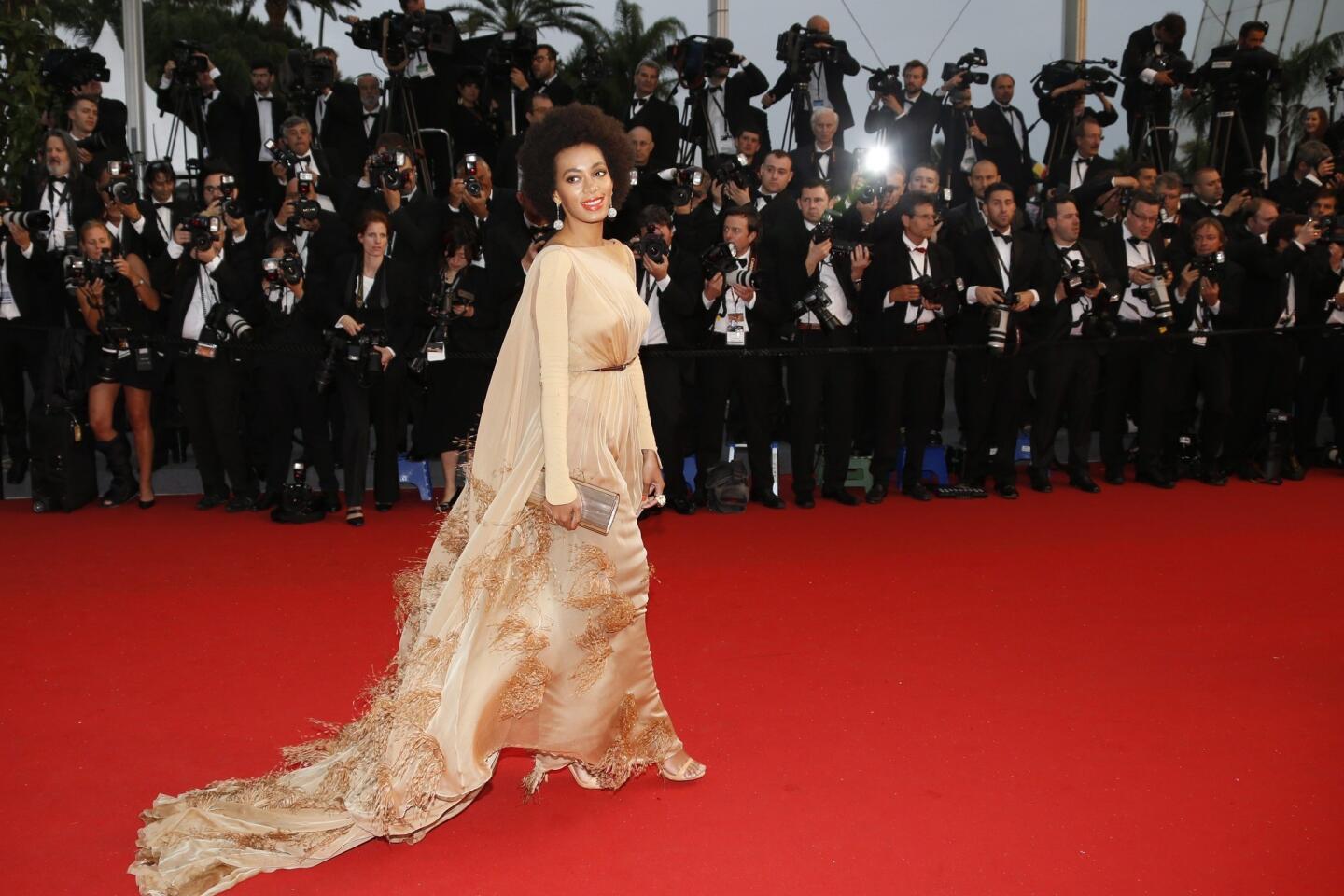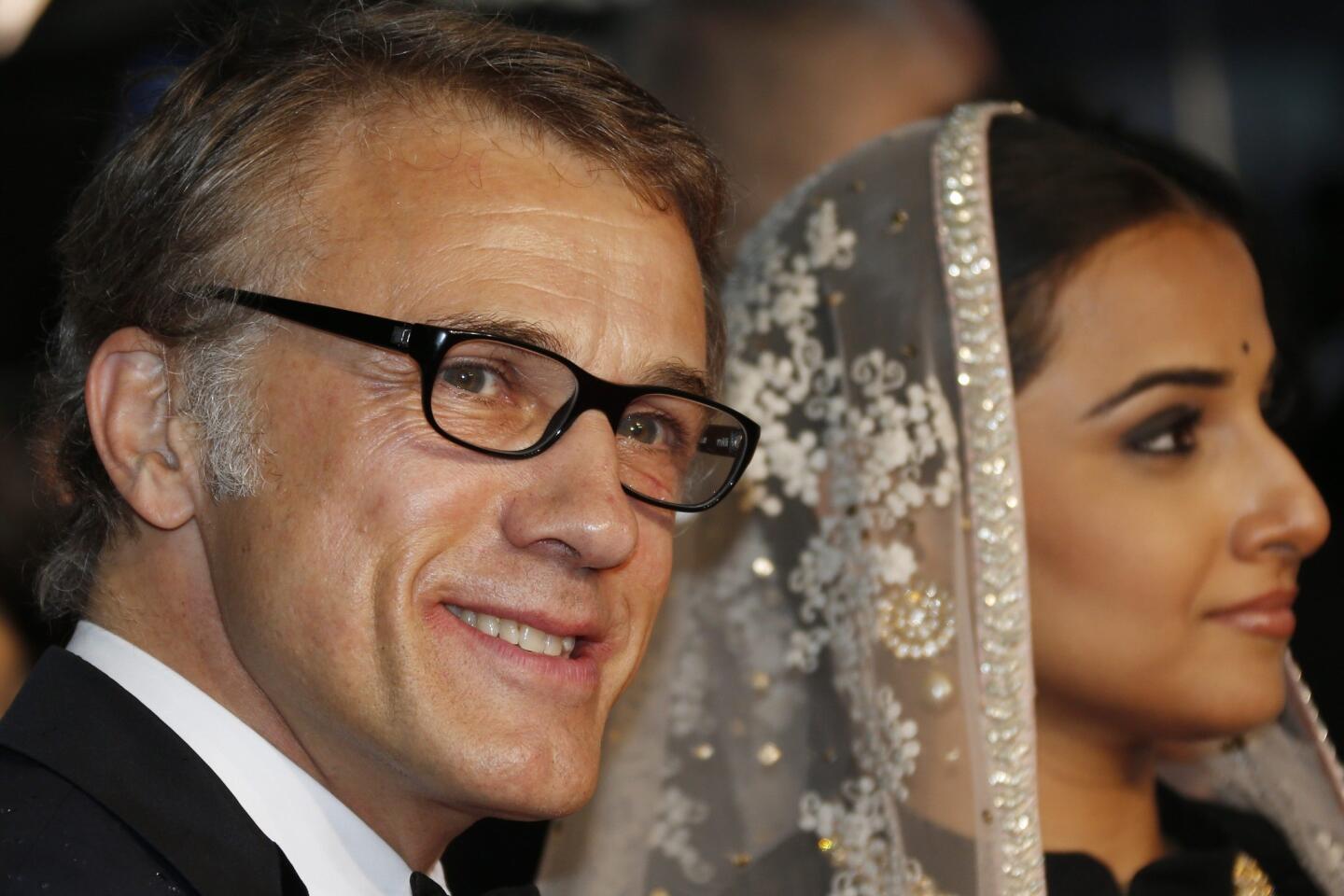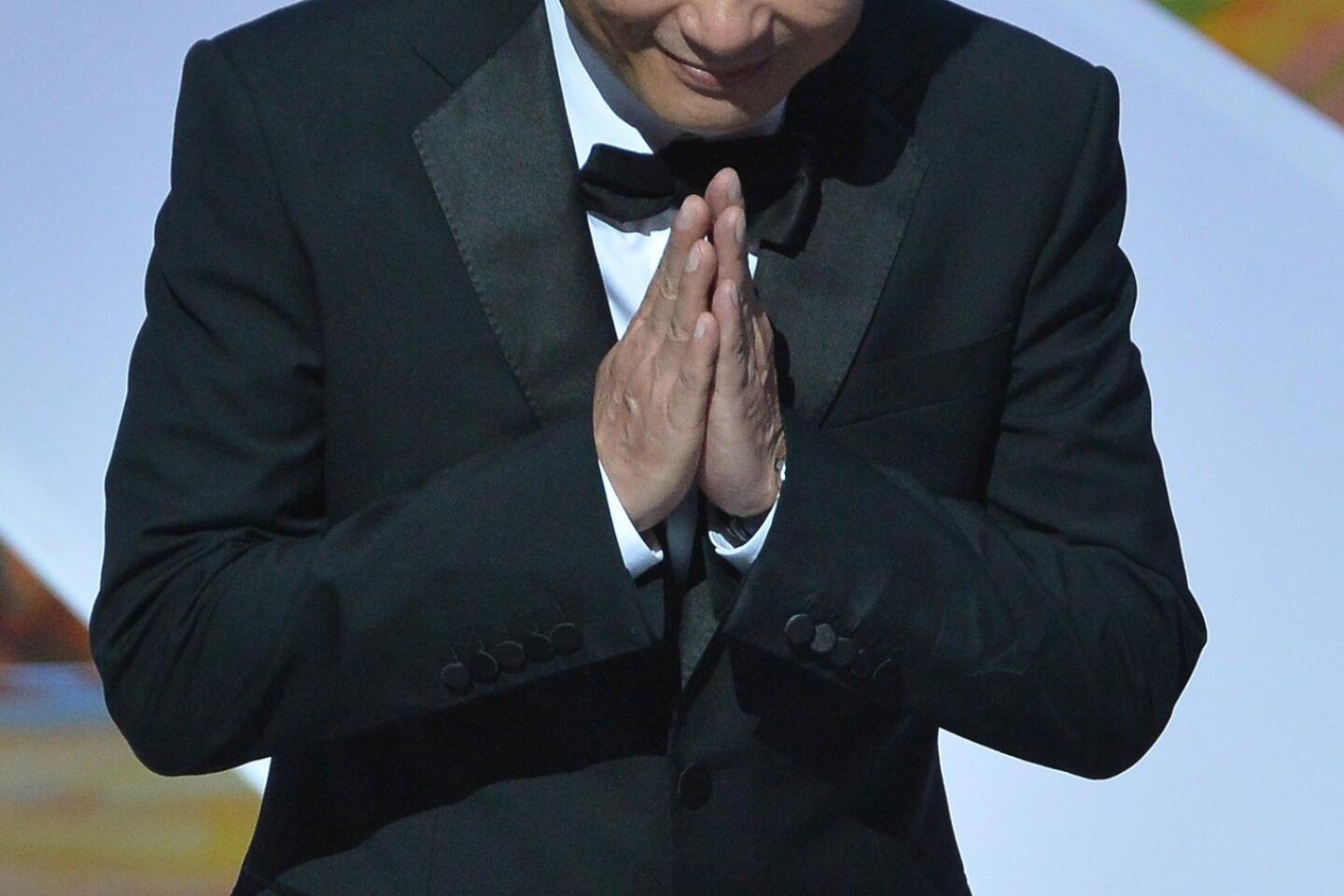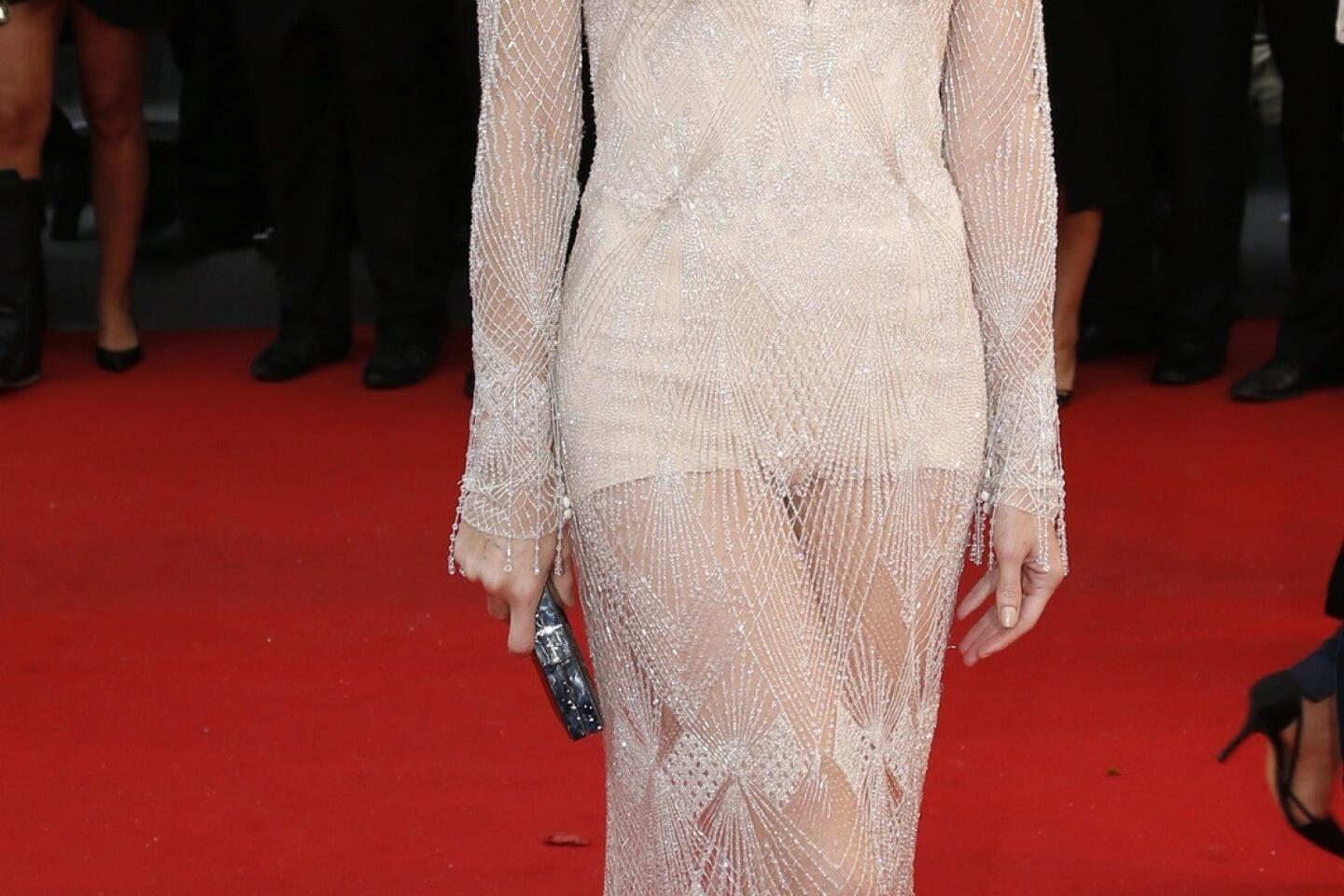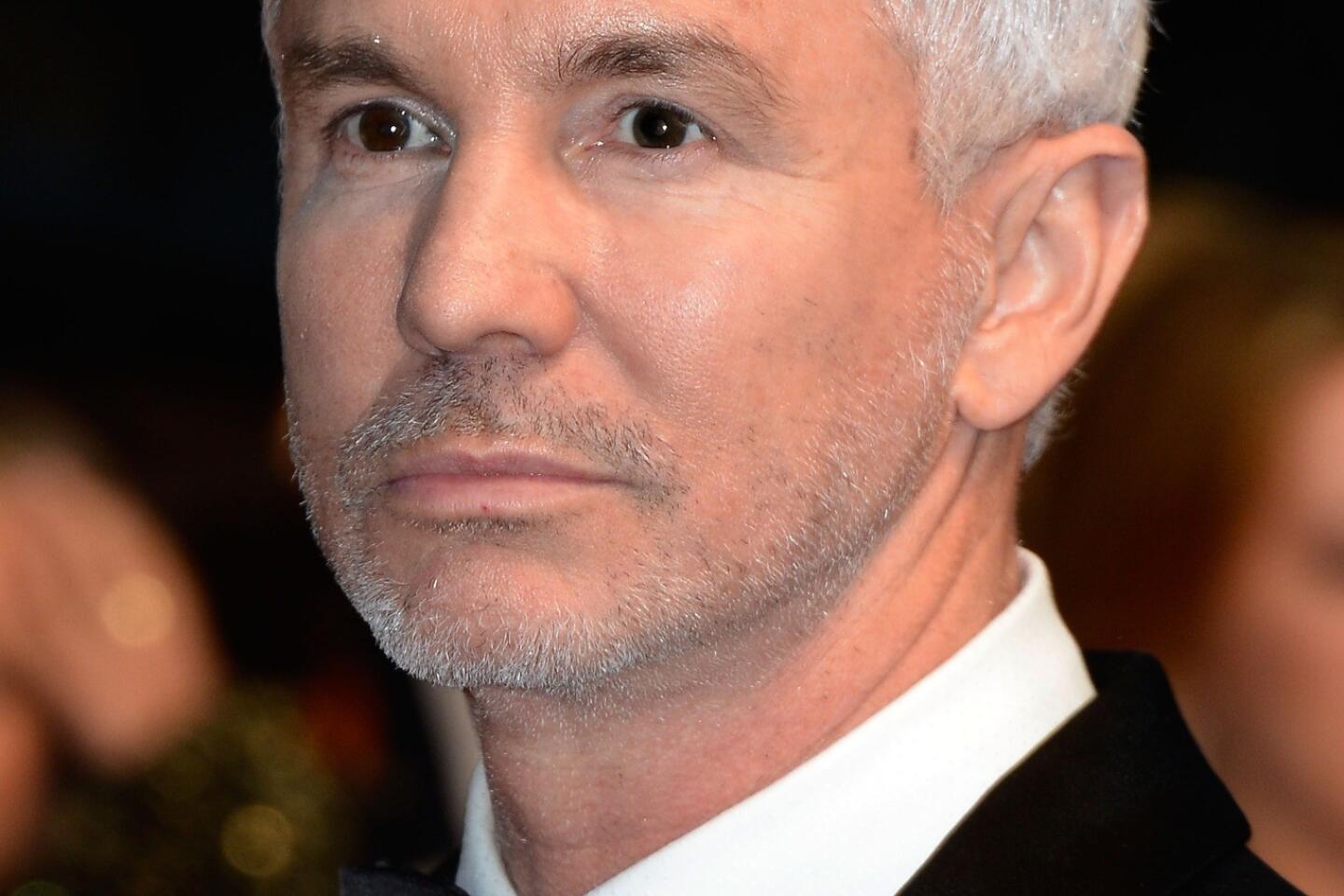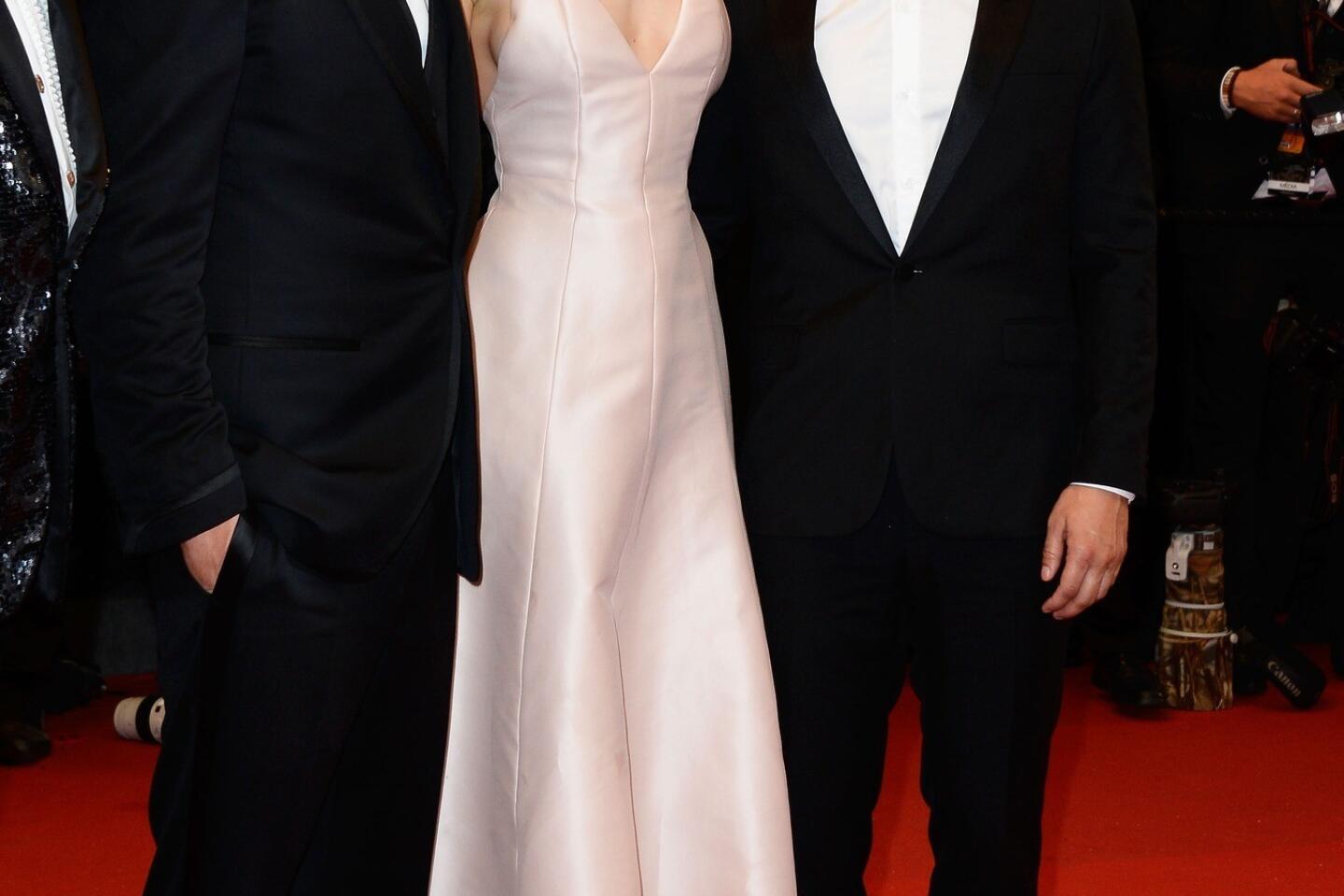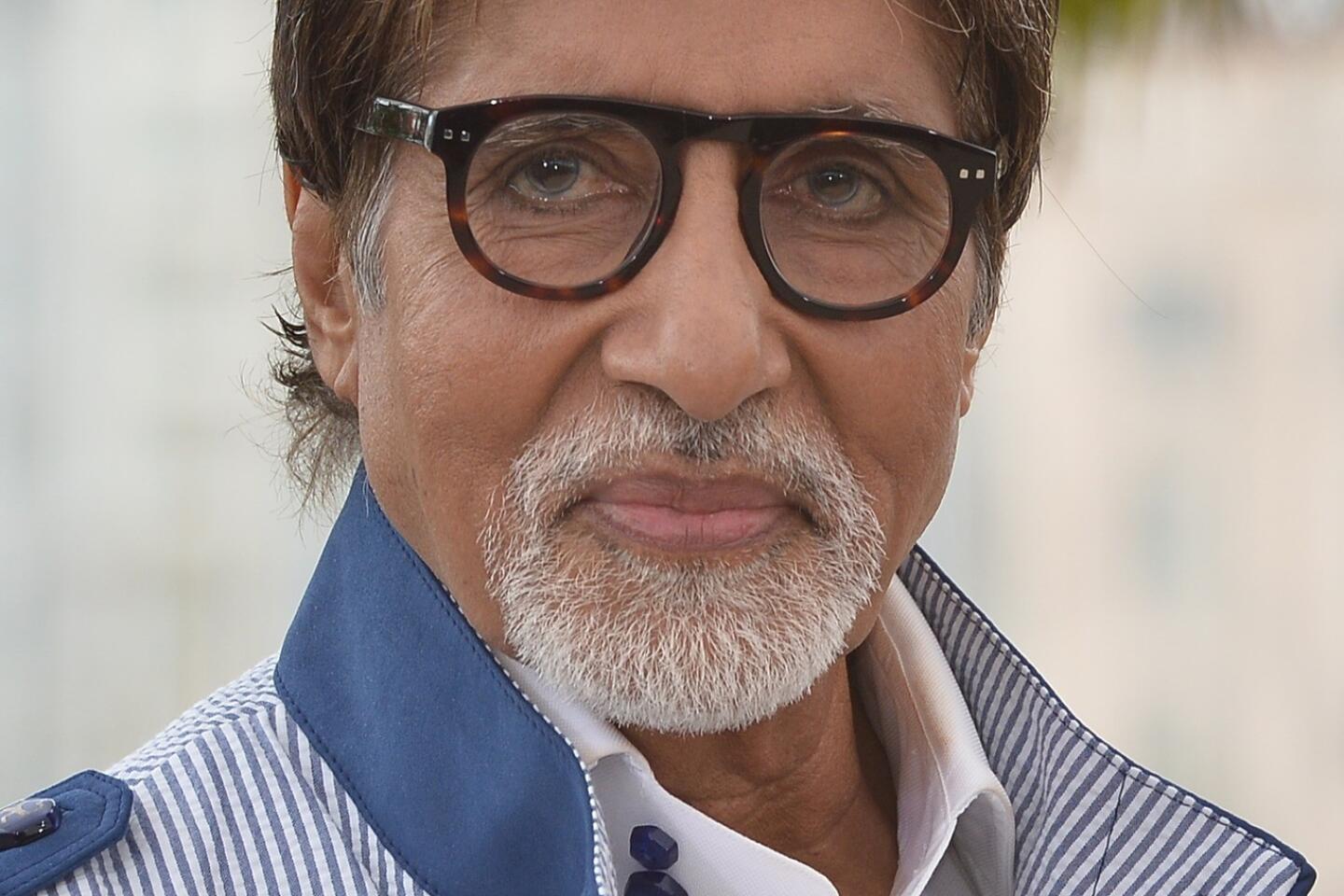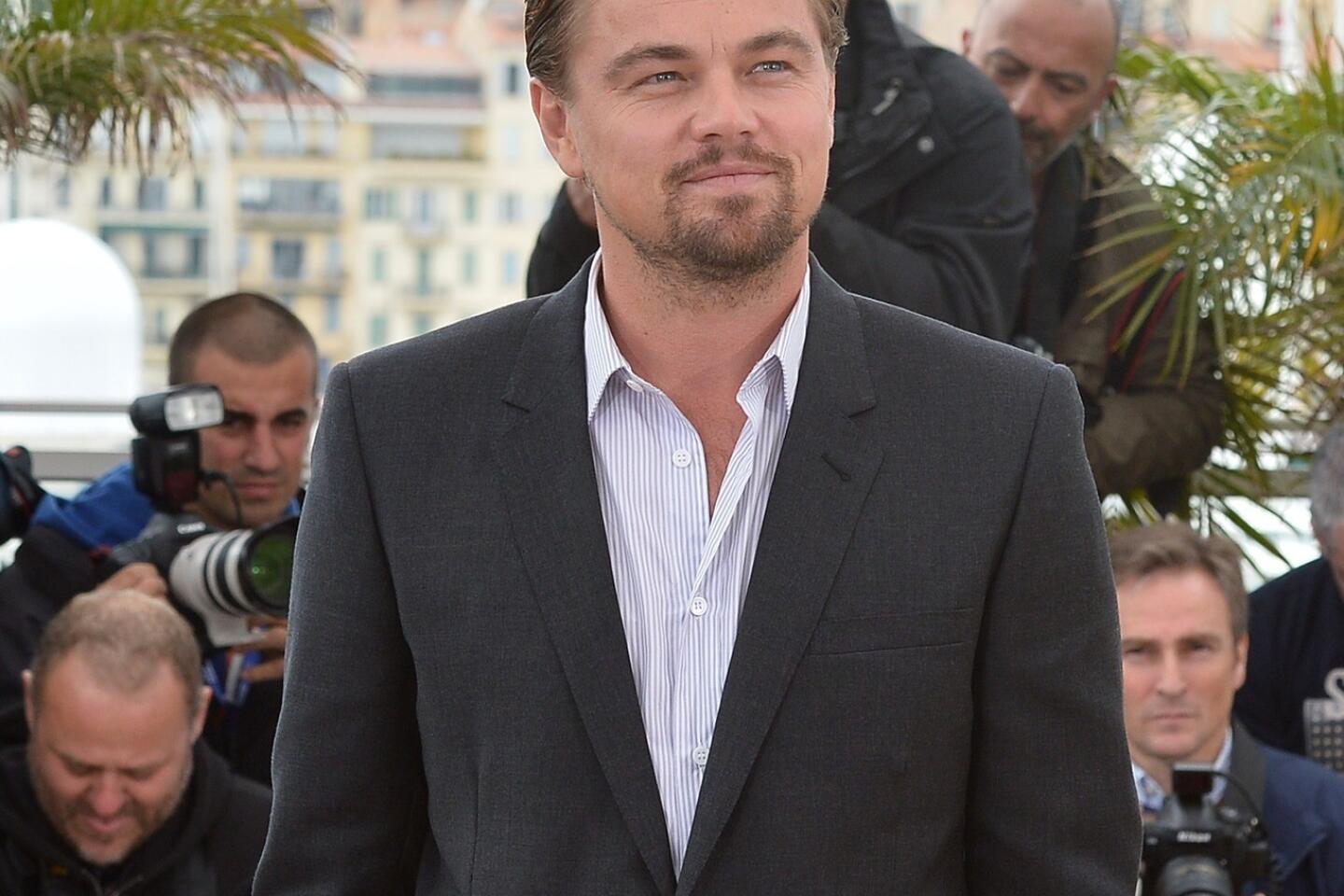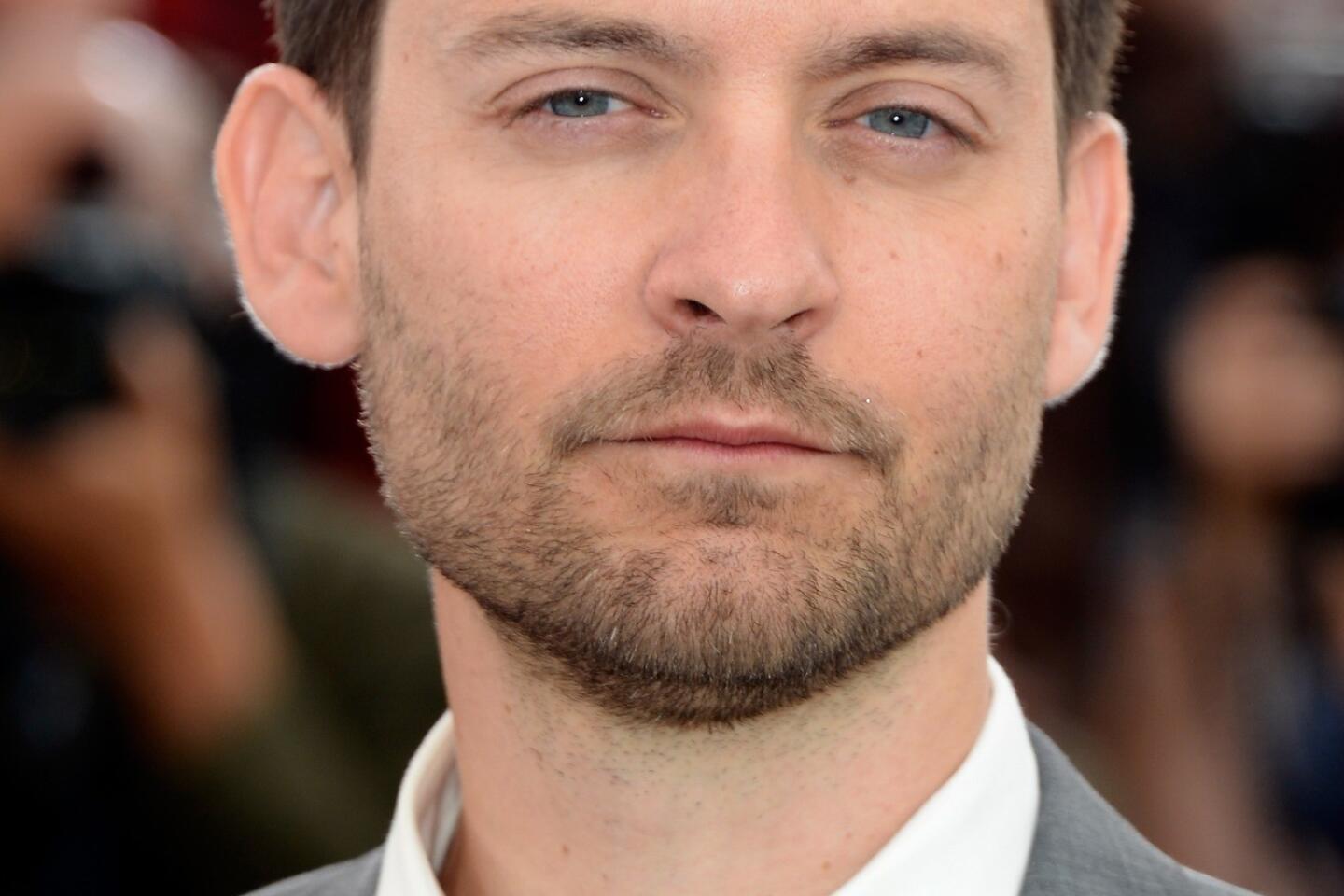Cannes: ‘Drive’s’ Nicolas Refn keeps steering toward the bizarre
CANNES — The movie with the Nazi martial-arts fight and drag queens dressed as clowns had just ended when Nicolas Winding Refn, giddy with excitement, or as giddy as droll Danes get, leaned forward in his seat and initiated a rousing round of applause.
The director he was cheering, the auteur-of-the-absurd Alejandro Jodorowsky, was sitting in front of Refn at the Cannes premiere of Jodorowsky’s new film, titled “La Danza de la Realidad.” Refn soon bounded to his feet, hugged the octogenarian and kept the clapping going for nearly 10 minutes.
“Nobody else makes movies that is the closest thing to going to a museum,” Refn explained later. “Who’d have the [guts] to shoot someone and have canaries come out of their body? When Jodorowsky’s gone, that it. End of an era.”
PHOTOS: The scene at Cannes Film Festival 2013
That may only be partly true. With his recent work, Refn is trying to keep Jodorowsky’s legacy alive. The Dane’s new movie, a Thai revenge Western titled “Only God Forgives,” world-premieres in competition at Cannes on Wednesday. Famously independent-minded, Refn nonetheless sought notes from the Chilean and dedicates the film to him. This after what the “Drive” director says, in what may or may not be a classic bit of Refn deadpan exaggeration, he “christened me his spiritual son, where he rubbed my head and did all these magical things.”
If Refn’s new work offers a more subdued palette and brooding tone than your typical Jodorowsky movie, it also has a similar sense of stylistic purposefulness.
“I wanted every scene to have its own DNA,” Refn, 42, said of his new movie, which the boutique label Radius brings out day-and-date on July 19 after a groundswell of Internet interest. “I wanted it to be like a Jodorowsky film.”
For those who discovered Refn with his 2011 Ryan Gosling sensation “Drive,” his new effort may be a surprise. But before he was staging backward car chases, reviving the career of Albert Brooks and scoring automobile excursions up the L.A. River with electropop tunes, Refn was making foreign-set blood operas like “Bronson” and the “Pusher” trilogy.
Though the new film, which ladles on nearly as much Freudian psychology as it does violence, stars Gosling, it swings back in the direction of that earlier work. With its fetishistic tone, “Only God Forgives” puts atmosphere and theme ahead of story, though there’s some of the latter too.
CHEAT SHEET: Cannes Film Festival 2013 trailers
Julian (Gosling) is a garden-variety drug dealer running a Muay Thai gym in Bangkok. When his brother is killed by a crime boss (Vithaya Pansringarm), he opts not to exact revenge, prompting Julian’s domineering mother (Kristin Scott Thomas) to fly in to town and harangue her son for, at which point the story goes from not only being bloody but Oedipal.
As with other trademark Refn works--indeed, film fans and industry players have taken to using his name as a shorthand, as in, ‘so-and-so is like a Canadian Refn’”--there is a stillness on the surface that is interrupted by, and masks, a violent unease underneath. It’s like Monet if Monet observed bloody bodies instead of water-lilies. (It should also be noted that Gosling says so little here it makes the taciturn toothpick-ness of “Drive” look like Cicero.)
Through its highly stylized shots — red lanterns are a big theme — there’s a sense that what’s happening in “Forgives” could have happened anywhere, or may not have happened at all.
“I wanted to make a film that walked between mysticism and reality, but it could never be an equation,” Refn said. “The film must never be conscious of its own language.”
Refn is sipping a lemon-flavored beverage at the well-known terrace restaurant of this city’s Carlton Hotel. Many directors have dined here chatting with reporters — Tarantino, Scorsese, Polanski. Yet it’s hard to imagine too many of them taking the kind of approach to interviews as Refn, who can go from arch to thoughtful and back again in the, well, pull of a trigger.
“I really don’t have an interest in reality because it’s not pornographic to me; it doesn’t excite me. Heightened reality excites me,” said the director, who has a tendency to describe much of his movies, and the world, in erotic terms.
That heightened reality is in evidence with a gun battle, which is in slo-motion and cinematic, and even with ordinary body parts like thighs—not usually a filmic biggie. In one scene they’re rubbed erotically, in another chopsticks are driven into them violently.
The movie has many signature bits of brutal weirdness. The crime boss does a tinny karaoke number in front of a mural of the Great Wall of China every time a ghastly act of violence has been committed on his behalf. Refn sees this as an ode to Jodrowsky too, who fused gore and flamboyance like few others.
(Incidentally, Refn’s Jodorowsky influences extend to other realms. He received a tarot-card reading from Jodorowsky before filming began on “Drive.” Refn was on the fence about moving his family to Los Angeles to make the movie, but said he changed his tune after the reading, which encouraged him to go. Refn’s professorial irony makes him the last man you’d imagine would believe in tarot card readings, which is maybe exactly why he does.)
Refn says he started with the idea that this new movie would be about “the clash between a man who thinks he’s God and a man who’s losing his belief in God.” He said a few years ago he was experiencing his own crisis of faith, when his wife was pregnant with their second daughter and there were questions about the health of the baby (all turned out fine).
“I was going through an existential period and was very angry and I want to destroy the Creator. I wanted to kill God.” This film, he says, is the result of that spiritual bout.
PHOTOS: The scene at Cannes Film Festival 2013
To many, the idea of Refn going darker and less commercial after a wider success is a surprise. In fact, he was locked into doing it that way: a deal was in place to make “Forgives” before “Drive”-mania broke out on the Croisette two years ago, though Gosling (with whom he has a wiseacre simpatico) didn’t come aboard until later.
Still, Refn says that he was of two minds about working in Hollywood.
While he said he’d consider a studio movie under certain artist-friendly conditions, he pulled out of a reboot of “The Equalizer” with Denzel Washington earlier this year because, he said, he’d rather make a good movie that breaks even than a bad movie that makes money. Asked why he thought “The Equalizer” would turn out badly, he replied, “Let’s put it like this: There’s a reason why I pulled out.”
Even after its success, “Drive” remains an anomaly, an artsploitation movie that played multiplexes and had a surprisingly large impact on popular culture. (Those who’ve seen a new Kia commercial that features one of the movie’s signature songs, “Nightcall,” have felt this acutely.)
Some FilmDistrict executives wanted Refn to make “Drive” more accessible, and some audience members made their displeasure known. Asked to reflect on this from a two-year distance, Refn gave a cat-who-swallowed-the-mouse look, as if there’s a certain achievement in baiting people into seeing something edgy. Of the Michigan woman who sued the film’s distributor because she felt duped, he gives a small smile and says, “That was the best part.”
A moment later he turns philosophical about his career and his work.
“With art, we always try to define it, to categorize it, to answer it, to tell us what it is. But like sex, it’s the one mystery that’s more pleasurable not knowing the answer to. It frustrated us, it drives us crazy, but it’s the only way for it to penetrate us. And when it penetrates us it becomes part of us. We discuss it, we dissect it, we analyze it [voice getting more excited], we hate it, we love it, we cherish it, we … we crush it.”
Next for him is a TV take on the ‘60s scifi pic “Barbarella” for the French production company Gaumont. And he has an obligation for a second picture to “Forgives producer Wild Bunch. Refn says for that film he has an idea for a horror movie that would cast only women, because it’s never been done before and because like a lot of Refn thoughts, it just makes sense to him.
Of course, that would eliminate the possibility of once more reuniting with Gosling, wouldn’t it?
“Have you seen ‘Beyond The Valley of the Dolls?’” Refn asked. “There are ways.” He paused. “There are ways.”
ALSO:
Cannes 2013: The musical side of the Coen’s ‘Inside Llewyn Davis’
Cannes 2013: With ‘Congress,’ Ari Folman votes for new audacity
Cannes 2013: Emma Watson says ‘Bling Ring’ ‘wasn’t about stealing’
Follow me on Twitter at https://twitter.com/ZeitchikLAT
More to Read
Only good movies
Get the Indie Focus newsletter, Mark Olsen's weekly guide to the world of cinema.
You may occasionally receive promotional content from the Los Angeles Times.
